Best air purifiers for allergies 2026: Breathe easy this winter
Air purifiers can help you reduce your exposure to mold spores, pet dander, and other airborne allergens ― these are the best appliances we recommend this February.
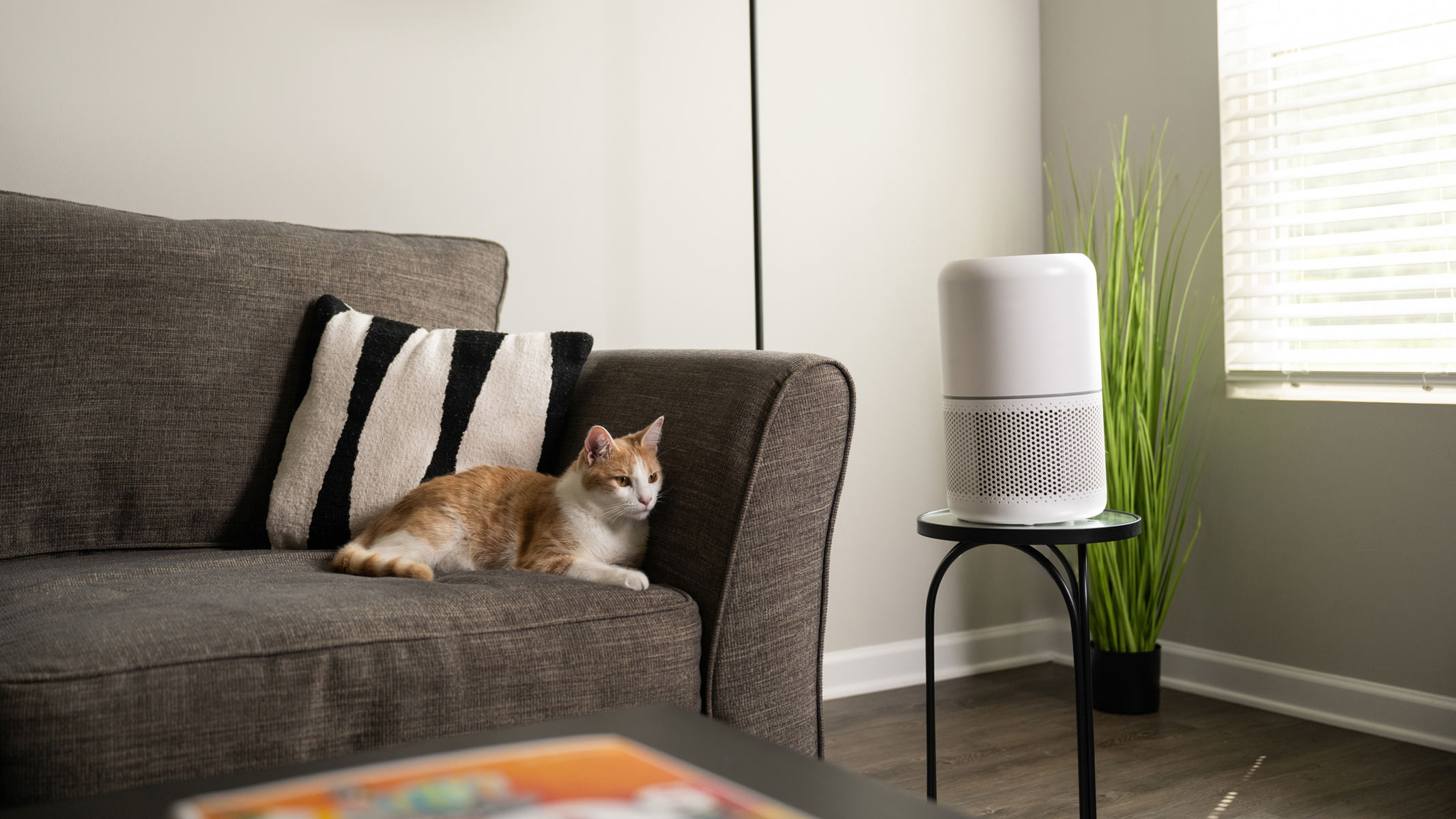
- Best overall
- Best budget option
- Best aesthetics
- Best tower fan
- Best for germs
- Best for large spaces
- Best for monitoring air quality
- Best air purifier with humidifier
- Best for pet owners
- Best for cat owners
- Best for commercial spaces
- Comparison
- Our experts
- Air purifiers for allergies FAQ
- More info
- How to choose
- How we test
- Latest updates
Get the world’s most fascinating discoveries delivered straight to your inbox.
You are now subscribed
Your newsletter sign-up was successful
Want to add more newsletters?

Delivered Daily
Daily Newsletter
Sign up for the latest discoveries, groundbreaking research and fascinating breakthroughs that impact you and the wider world direct to your inbox.

Once a week
Life's Little Mysteries
Feed your curiosity with an exclusive mystery every week, solved with science and delivered direct to your inbox before it's seen anywhere else.

Once a week
How It Works
Sign up to our free science & technology newsletter for your weekly fix of fascinating articles, quick quizzes, amazing images, and more

Delivered daily
Space.com Newsletter
Breaking space news, the latest updates on rocket launches, skywatching events and more!

Once a month
Watch This Space
Sign up to our monthly entertainment newsletter to keep up with all our coverage of the latest sci-fi and space movies, tv shows, games and books.

Once a week
Night Sky This Week
Discover this week's must-see night sky events, moon phases, and stunning astrophotos. Sign up for our skywatching newsletter and explore the universe with us!
Join the club
Get full access to premium articles, exclusive features and a growing list of member rewards.
The best air purifiers for allergies can bring relief to your symptoms if you suffer from adverse reactions to airborne pollutants, such as mold spores, pet dander or dust. February is a particularly good time to invest in one of these clever appliances, as they tend to hit some of their lowest-ever prices during the winter months. But which appliance should you choose? Not every best air purifier can trap tiny airborne allergens.
To combat hay fever or pet allergies, your air purifier should be equipped with a High Efficiency Particulate Absorbing (HEPA) filter. "These filters can remove up to 99.97% of small airborne particles, including dust, pollen, and mold spores," Dr. John McKeon, the CEO of Allergy Standards and a principal at the Indoor Air Innovation & Research Institute, told Live Science. Unsure what to look for? Scroll down to our Air purifiers for allergies FAQs and How to choose sections for more buying advice.
Below you can find our hand-picked selection of air purifiers that we think do the best job shielding you from airborne allergens. Our expert reviewers tested each appliance in this guide for at least two weeks and put them through a series of performance tests using an industry-grade Perfect Prime air particle monitor. You can read more about our testing protocol in the How we test section.
Best air purifiers for allergies we recommend in 2026: Rigorously tried and tested appliances for people with respiratory conditions
Why you can trust Live Science
The best air purifier for allergies, overall
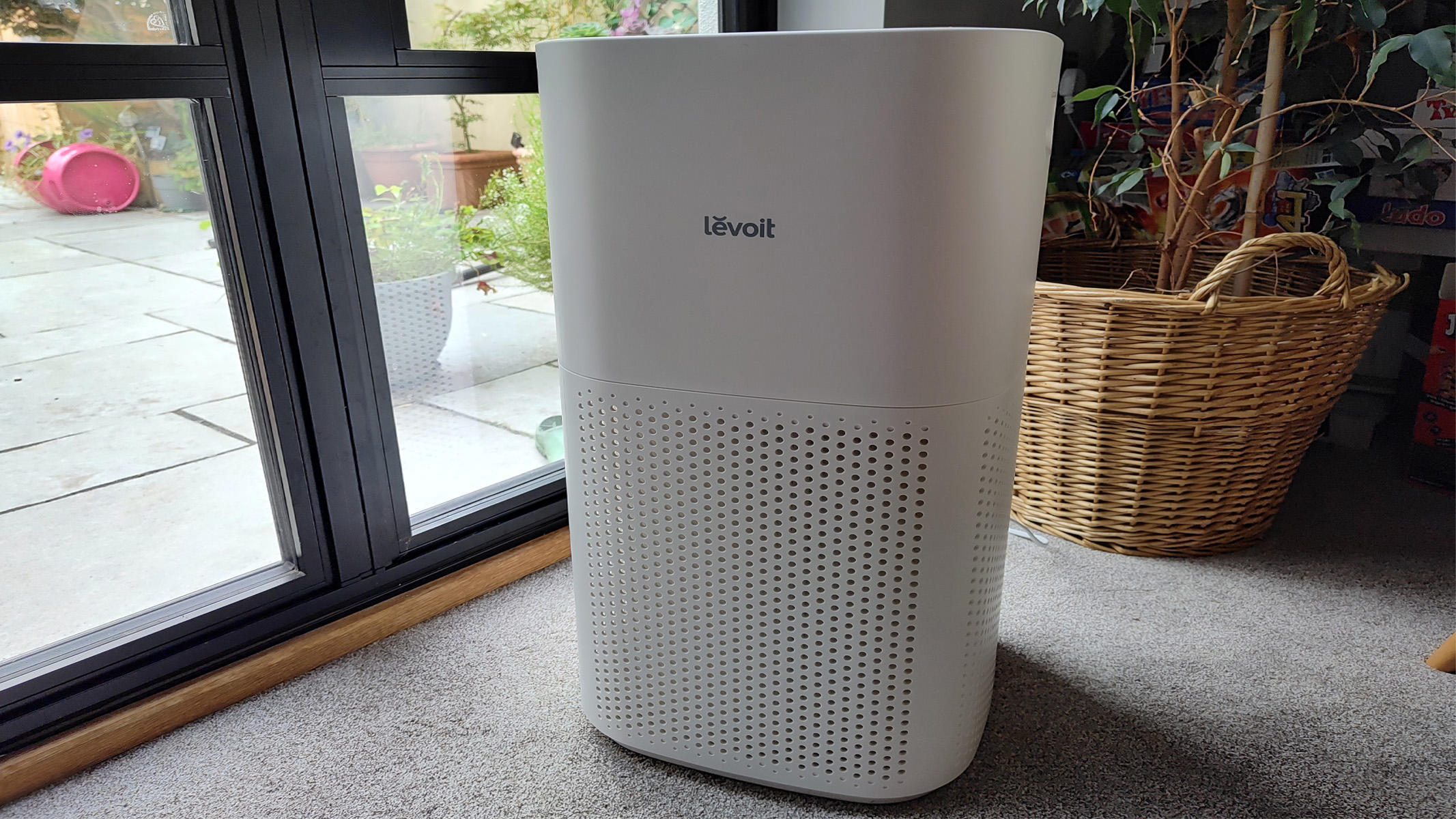
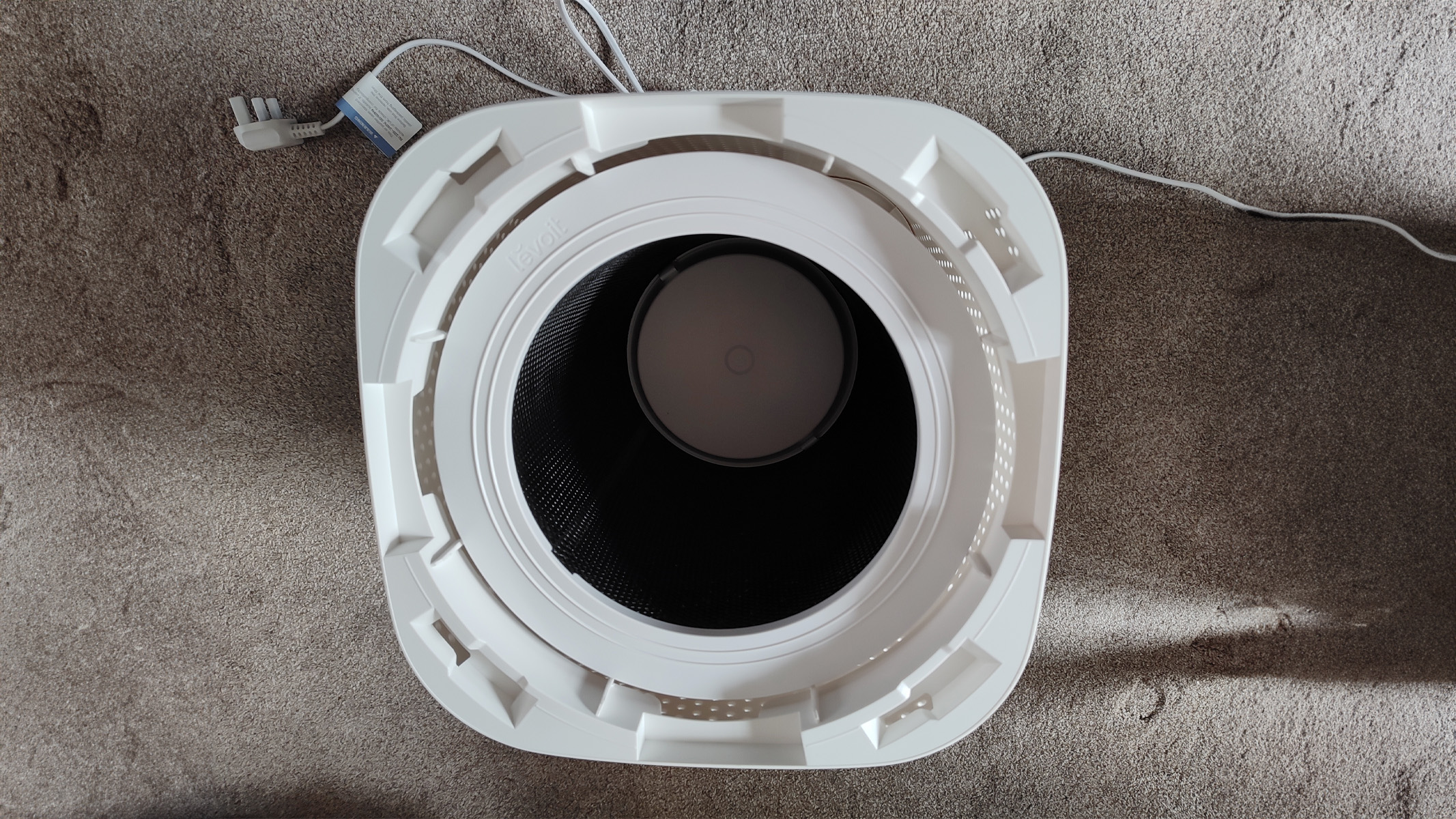
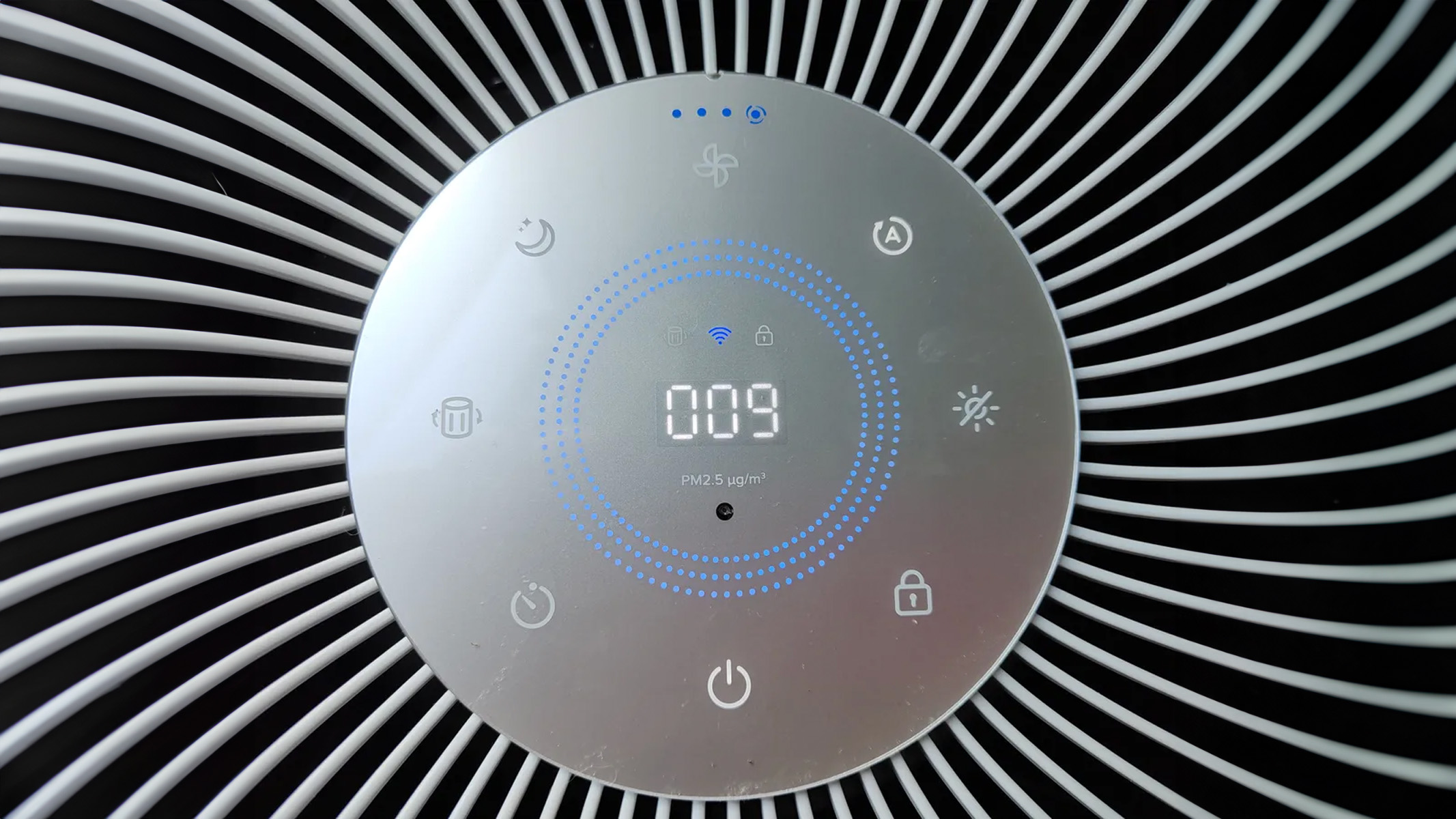
Specifications
Reasons to buy
Reasons to avoid
✅ Excellent air-cleaning performance is your priority: It passed our tests with flying colors.
✅ You want smart features: This air purifier features an app that allows you to control it from your phone.
✅ You are looking for a bedroom air purifier: While it's not silent, it is quieter than most models this size.
❌ You are short on space: It is a relatively big and bulky unit.
❌ You are on a budget: While reasonably priced given its performance, there are certainly more affordable models in this guide.
🔎 Levoit Core 600S: It may not be the most compact or good-looking air purifier on the market, but it offers exceptional air-cleaning performance, plenty of smart features and user-friendly design — and it does not cost the earth. ★★★★½
The Levoit 600S is our top choice for an air purifier that effectively captures allergens in your home, and with good reason. Not only did it perform well in all of our tests during our full Levoit Core 600S review, but it is also easy to use and packed with handy smart features.
Thanks to its True HEPA H13 and advanced activated carbon filters, this air purifier aced our tests under a number of conditions, removing as much as 99.9% of particles smaller than 0.3 microns at certain times. It is quiet, too. When we measured its noise levels with a decibel-counting app, we did not note more than 55dB, which is quieter than an average refrigerator.
Not only is the Levoit 600S a powerful air purifier, but it also gains points for its discreet design — the toned-up colors and traditional rectangular shape make it easily blend with most home decors. However, some people may find it too bland.
We found that setting up the air purifier is easy thanks to the intuitive controls, and there is plenty of information accessible on the app connected to your purifier, which gives you statistics on historical and current air quality within your home, which we thought was a great feature.
On the other hand, the Levoit 600S is quite a bulky machine, so it may not be suitable for tight spaces. It is also relatively expensive so might not be ideal if you are on a budget — but that said, it's still more affordable than some of the Dyson and RabbitAir models, for example.
- Read our full Levoit Core 600S review
Attributes | Notes |
|---|---|
Design | Sleek and discreet, but not necessarily small. |
Performance | Quiet even without sleep mode. |
Functionality | Controlled from a handy app. |
The best budget air purifier for allergies
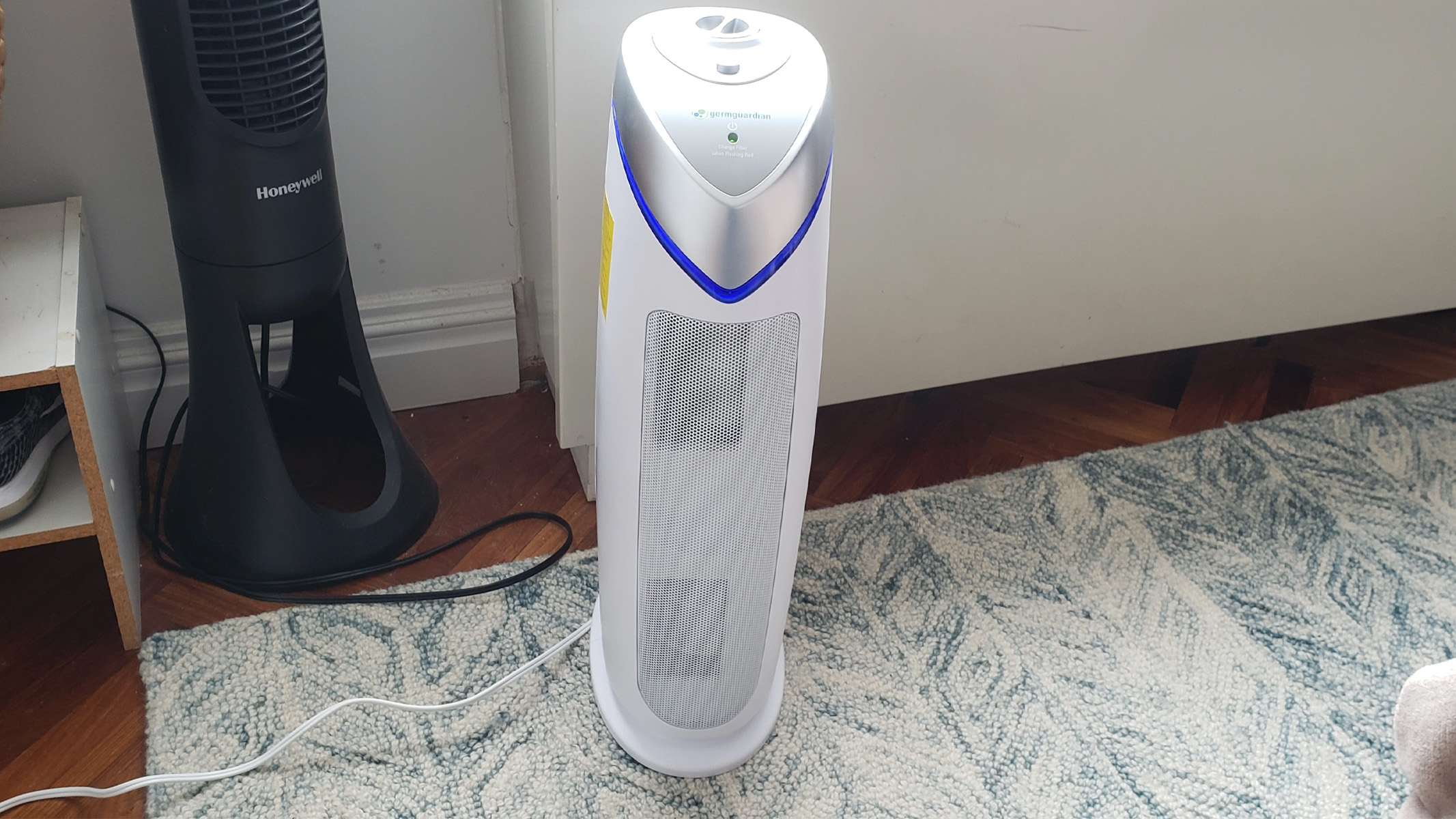
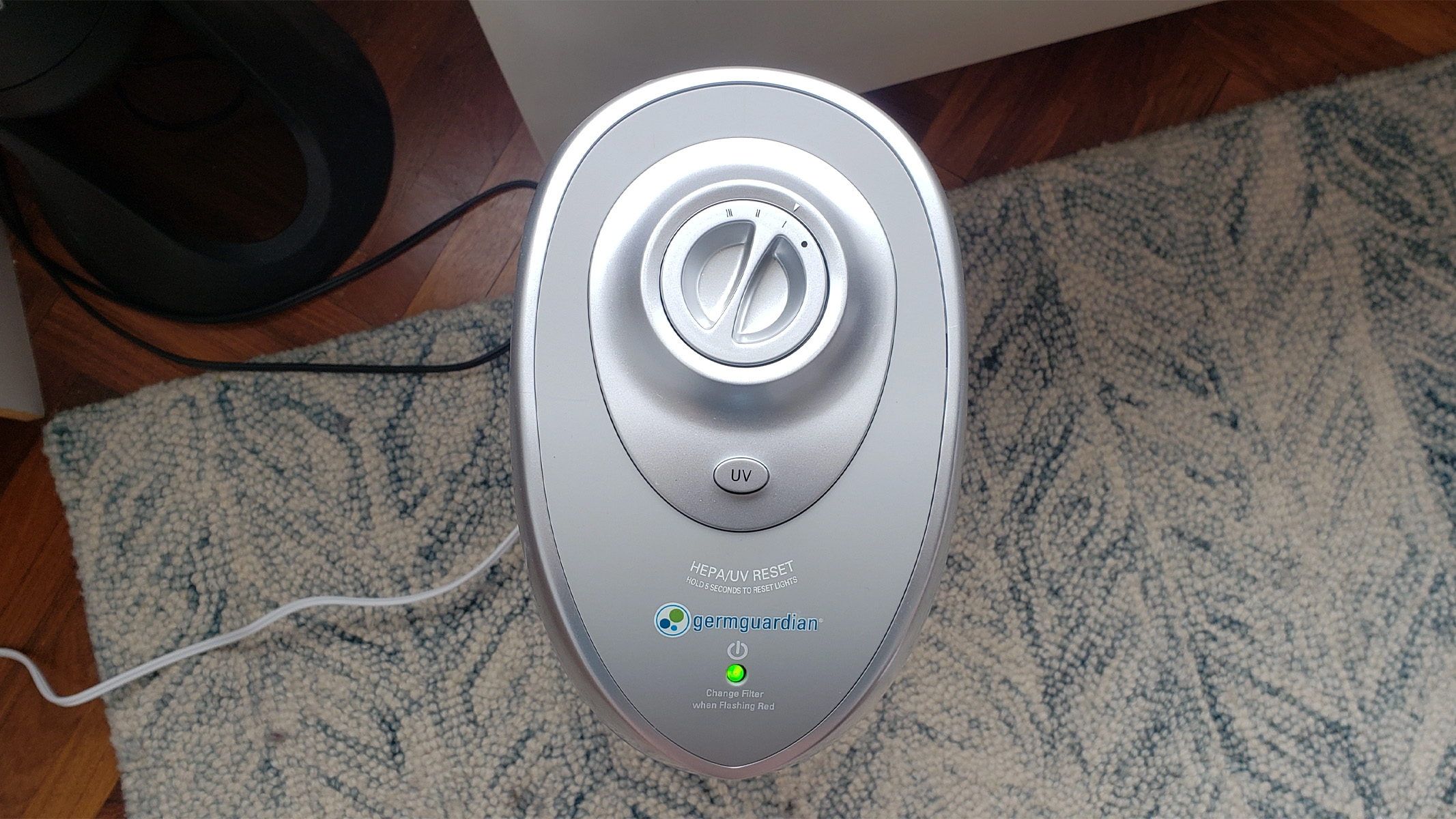
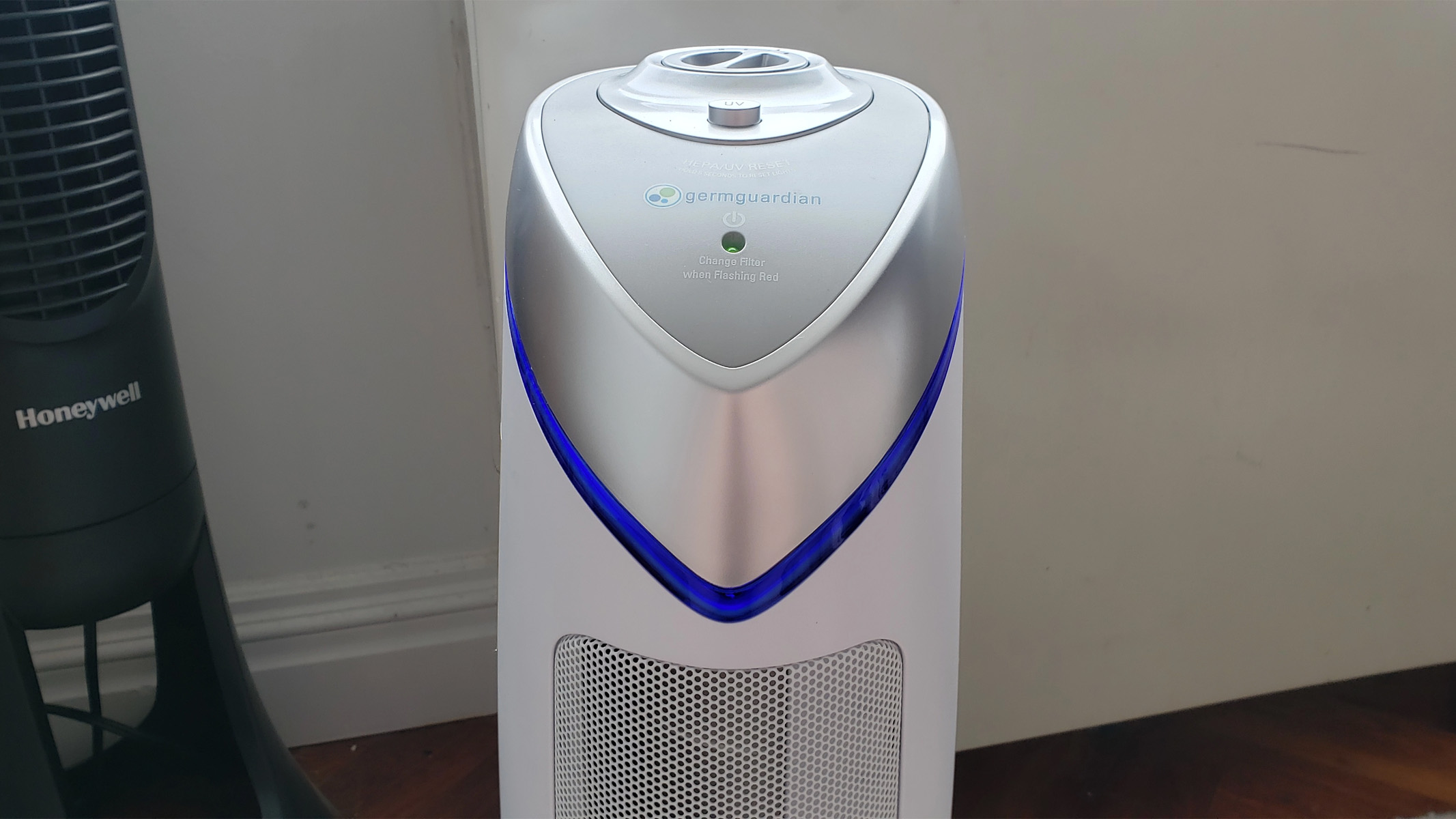
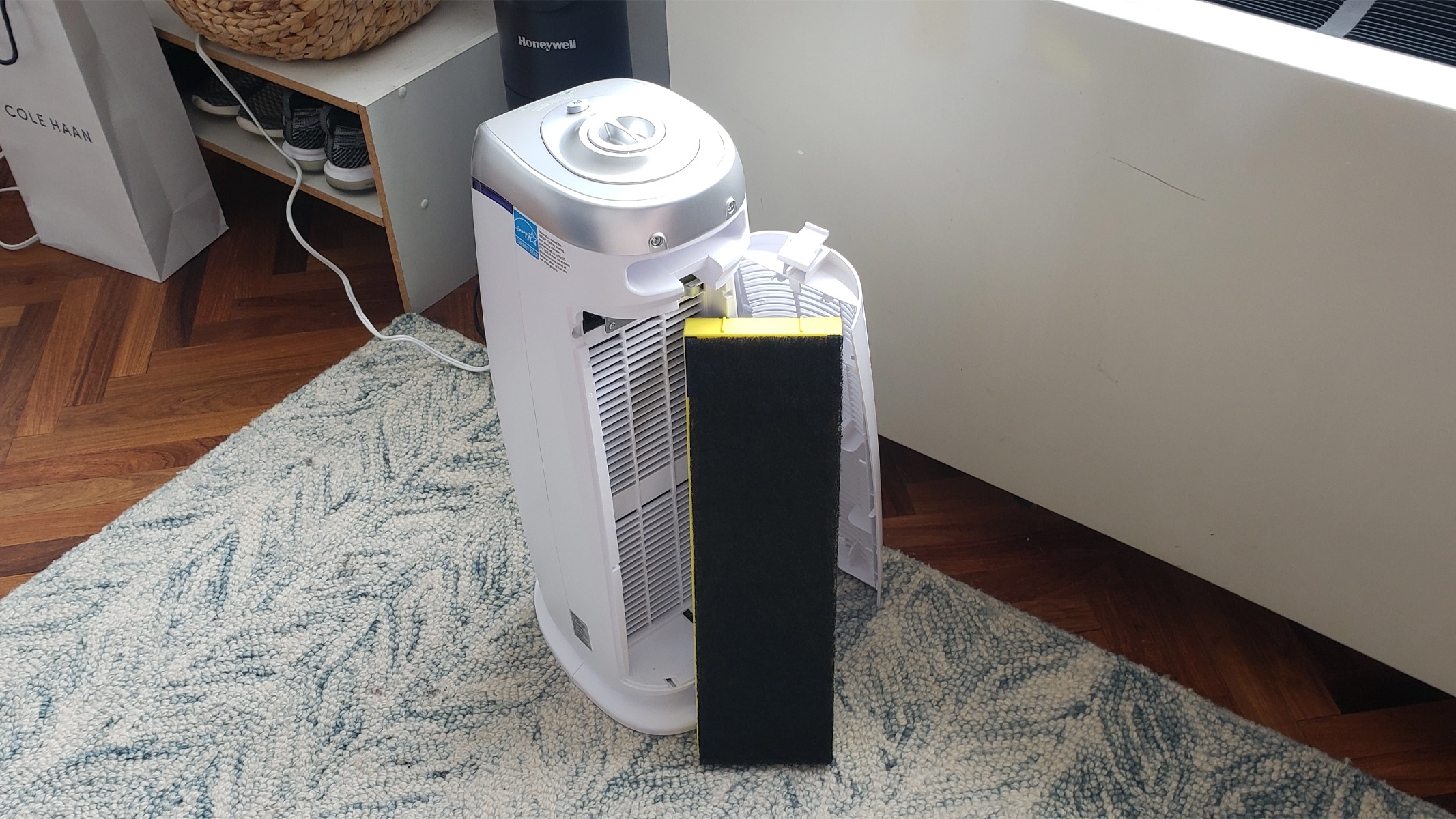
Specifications
Reasons to buy
Reasons to avoid
✅ You do not want anything complicated: It's easy to use and ready to go right out of the box.
✅ You do not have a lot of room: It stands 22 inches tall and around 10 inches wide, so it's good for slotting into a narrow space.
✅ You want good value for money: This air purifier costs less than $100.
❌ You want something that blends in: While we would not consider it to be ugly, it may not blend in with your interiors.
❌ You want smart features: For that, you may need to invest in a more premium air purifier.
🔎 GermGuardian AC4825E: It is compact, easy to use and sleek-looking, but more importantly, this budget-friendly air purifier does a great job of trapping airborne allergens. It does not have any smart features, though. ★★★★
If you are on a budget and need an air purifier to tackle your allergy symptoms, then the GermGuardian AC4825E will be an inexpensive purchase that can go a long way to help you breathe more easily. Put simply, it is a whole package for less than $100, making it the cheapest option in this guide.
Complete with a HEPA filter and a charcoal filter to filter odors, this appliance can make your living space a nicer place to be. It is also ultra-quiet, meaning it can work away in the background without distracting you from whatever you are doing. The GermGuardian AC4825E also features a UV-C sanitizer to help remove harmful germs (and that is something we do not see often in affordable air purifiers).
As you might expect with a smaller unit, the coverage of this air purifier is not quite as extensive as bulkier models. It would be suitable for single rooms, rather than expansive spaces, and stands at just 22 inches tall, meaning it will not be too disruptive to your room’s decor, although it is not quite sleek enough to blend in.
There are some other handy features too, including a light to indicate a filter change is due and three speeds including an ultra-quiet sleep mode so that you can keep your machine running into the night.
Most importantly, we were satisfied by its ability to remove harmful particles in our match and incense tests during our full GermGuardian AC4825E review. When put on the highest setting for 15 minutes, it trapped 41% of 0.3 micron particles in the ambient air, 63% after releasing match smoke, and 75% after the insenses were burned. For this price point, it does a good job.
If you want a no-frills, but a very effective air purifier, we would recommend the GermGuardian. However, if you want something more stylish and powerful, you may need to spend more on models like Molekule Air Pro.
Looking for something more pet-friendly? Scroll down to read about the Oneisall Pet Air Purifier.
- Read our full GermGuardian AC4825E review
Attributes | Notes |
|---|---|
Design | Small and compact. |
Performance | Impressive performance for its price. |
Functionality | Simple controls, no smart features. |
Runner-up
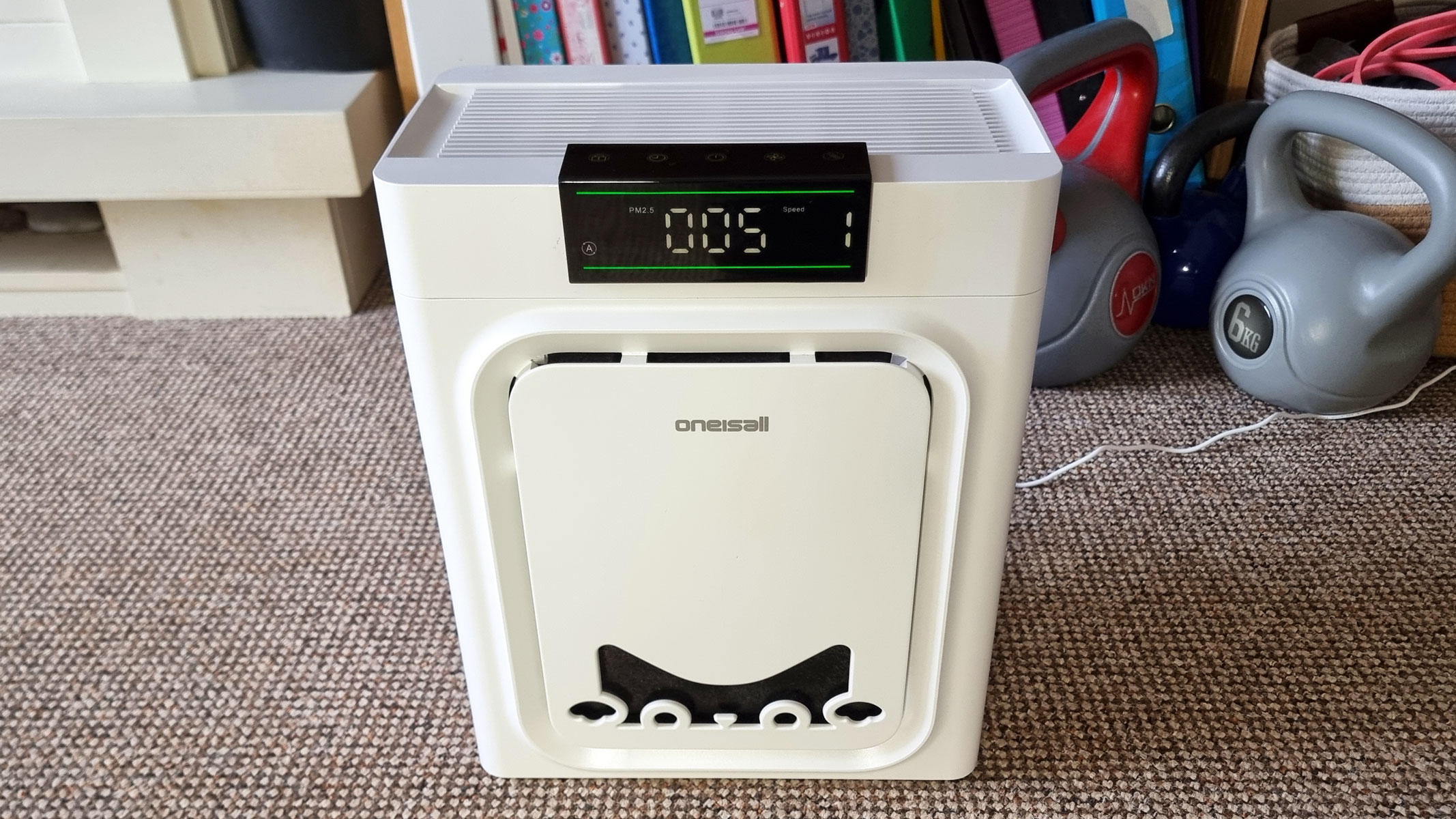
Best budget air purifier for allergies: Runner-up
If you want something more pet-friendly than the GermGuardian AC4825E, consider the Oneisall Pet Air Purifier instead. Both of these appliances cost roughly the same, but the latter is designed specifically with dog and cat owners in mind. It is quiet, easy to clean and unobtrusive, but more importantly, it does a great job of removing dust, hair, pet dander and unpleasant odors. The main downside? No smart features.
Pros
- Quiet and easy to use
- Effective against odors, hair and pet dander
- Affordable and cheap to run
Cons
- Uninspiring design
- Unreliable air quality monitoring
- No smart features
Best looking air purifier for allergies
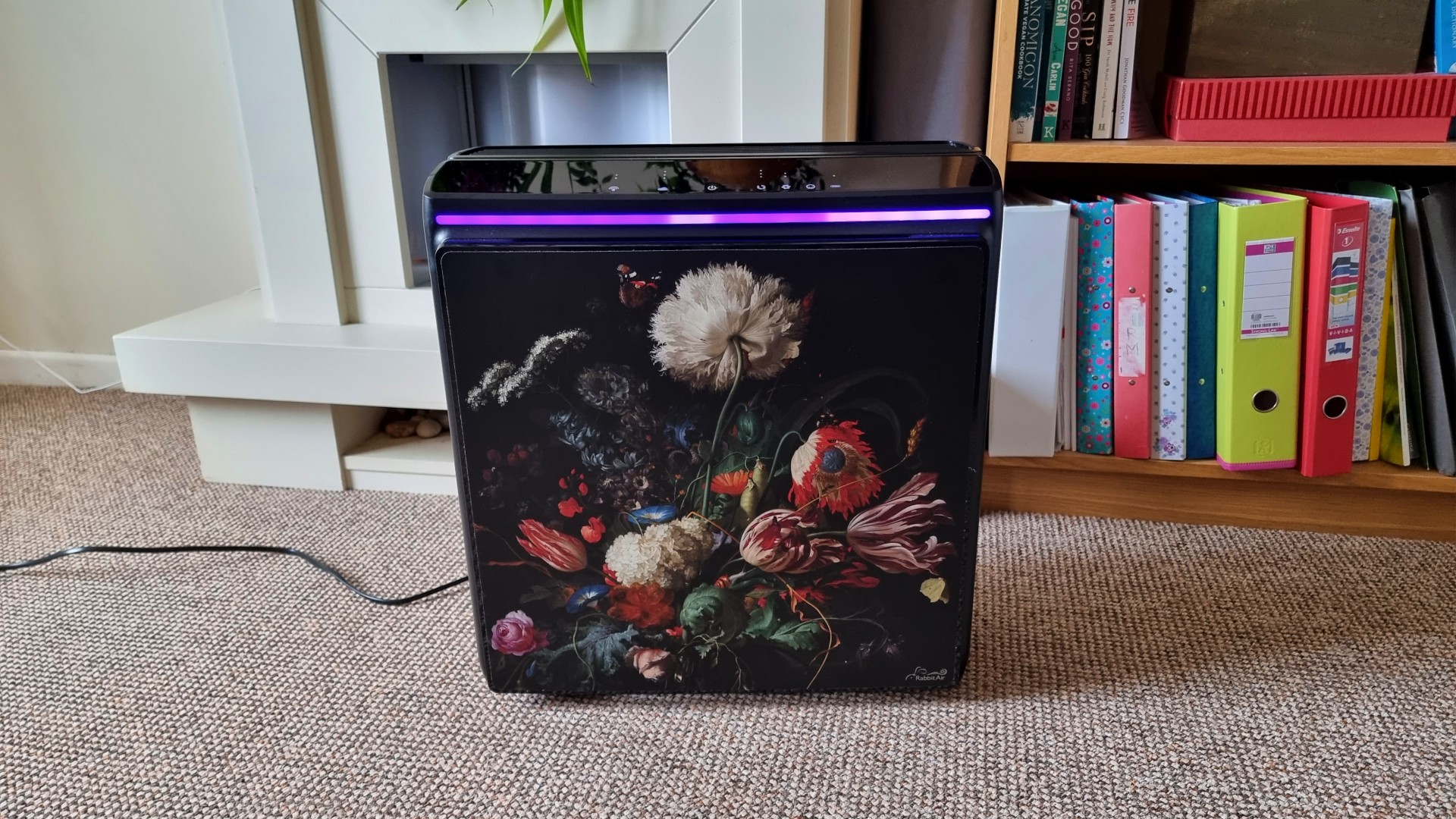
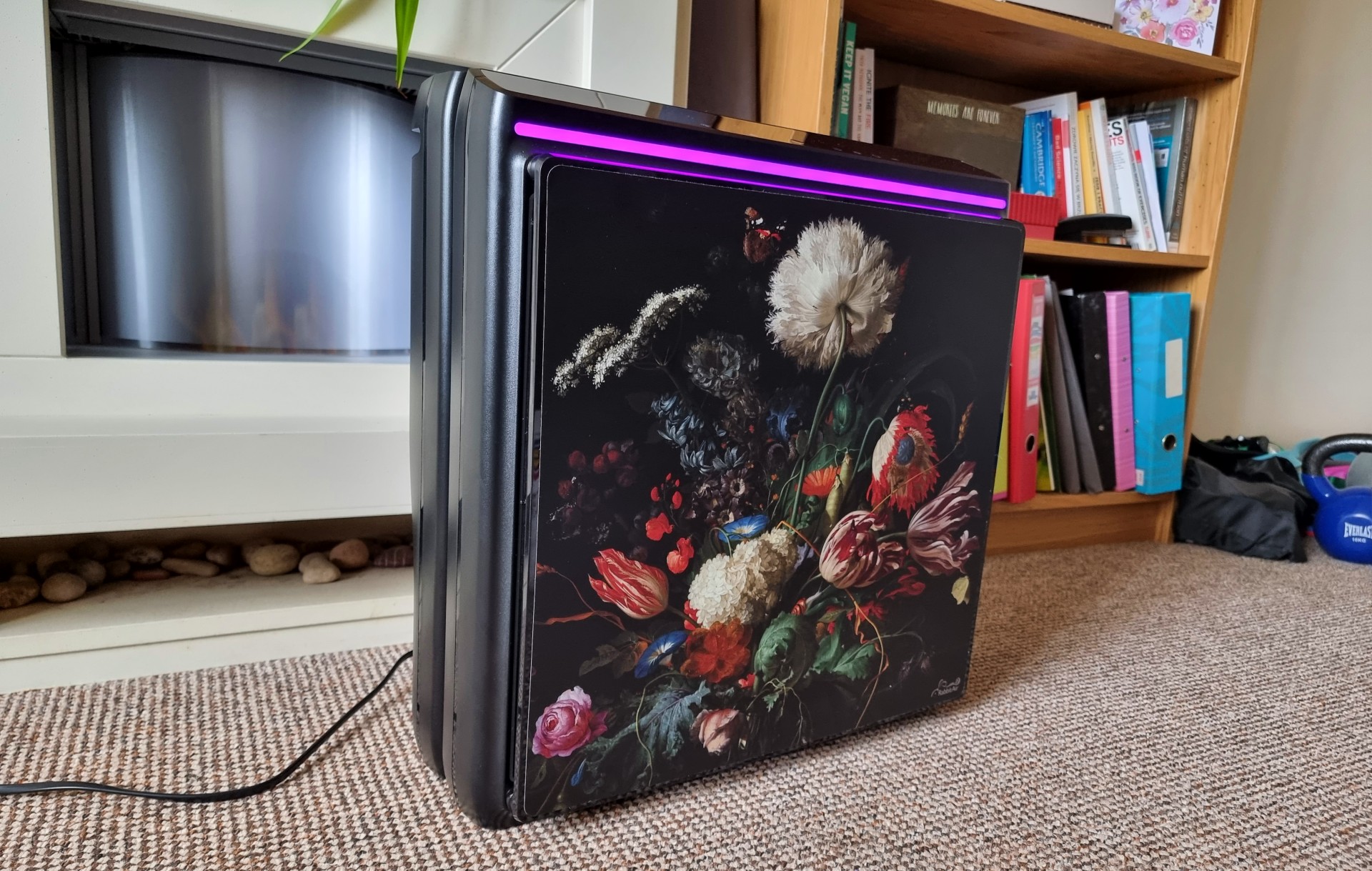
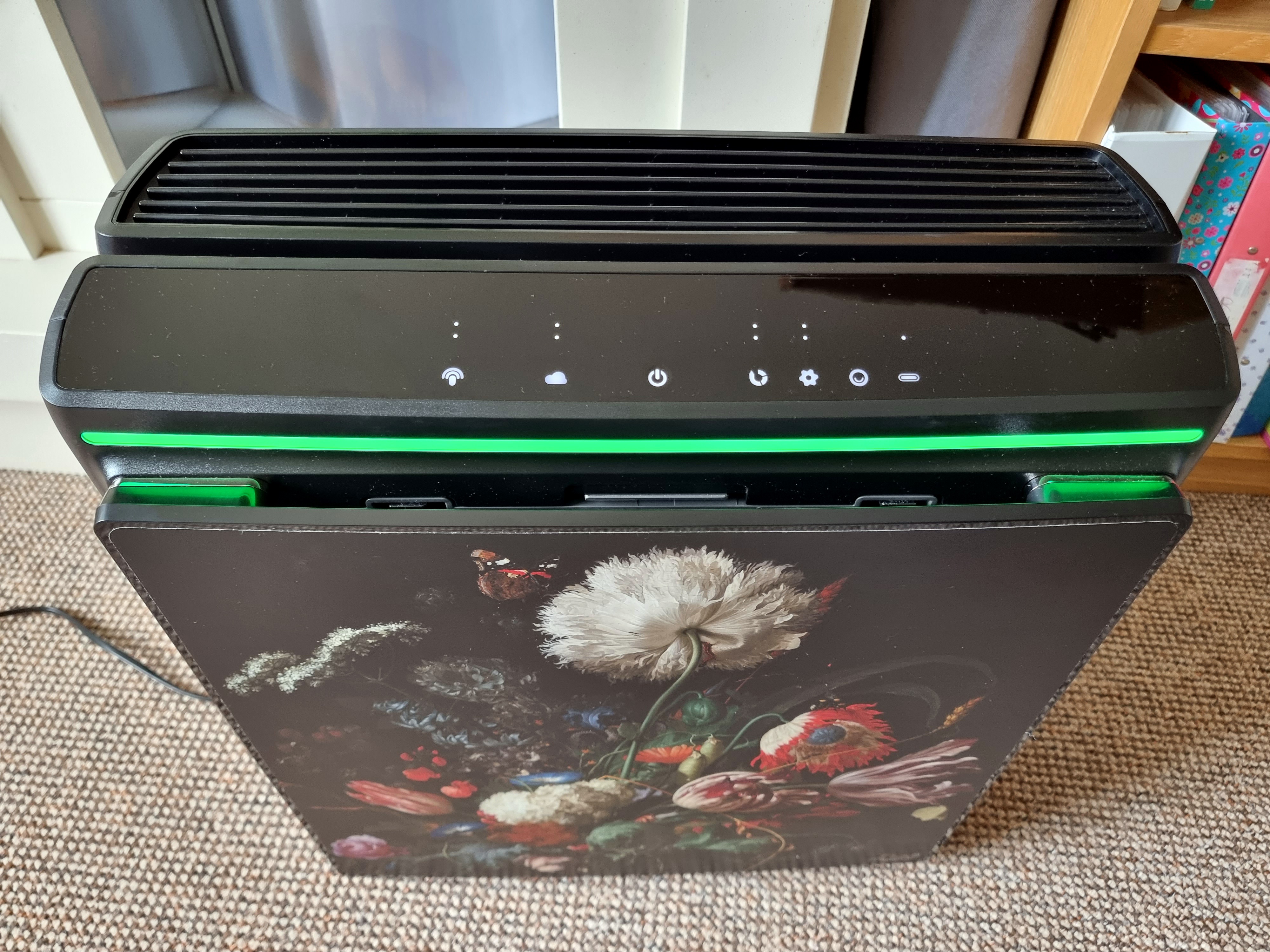
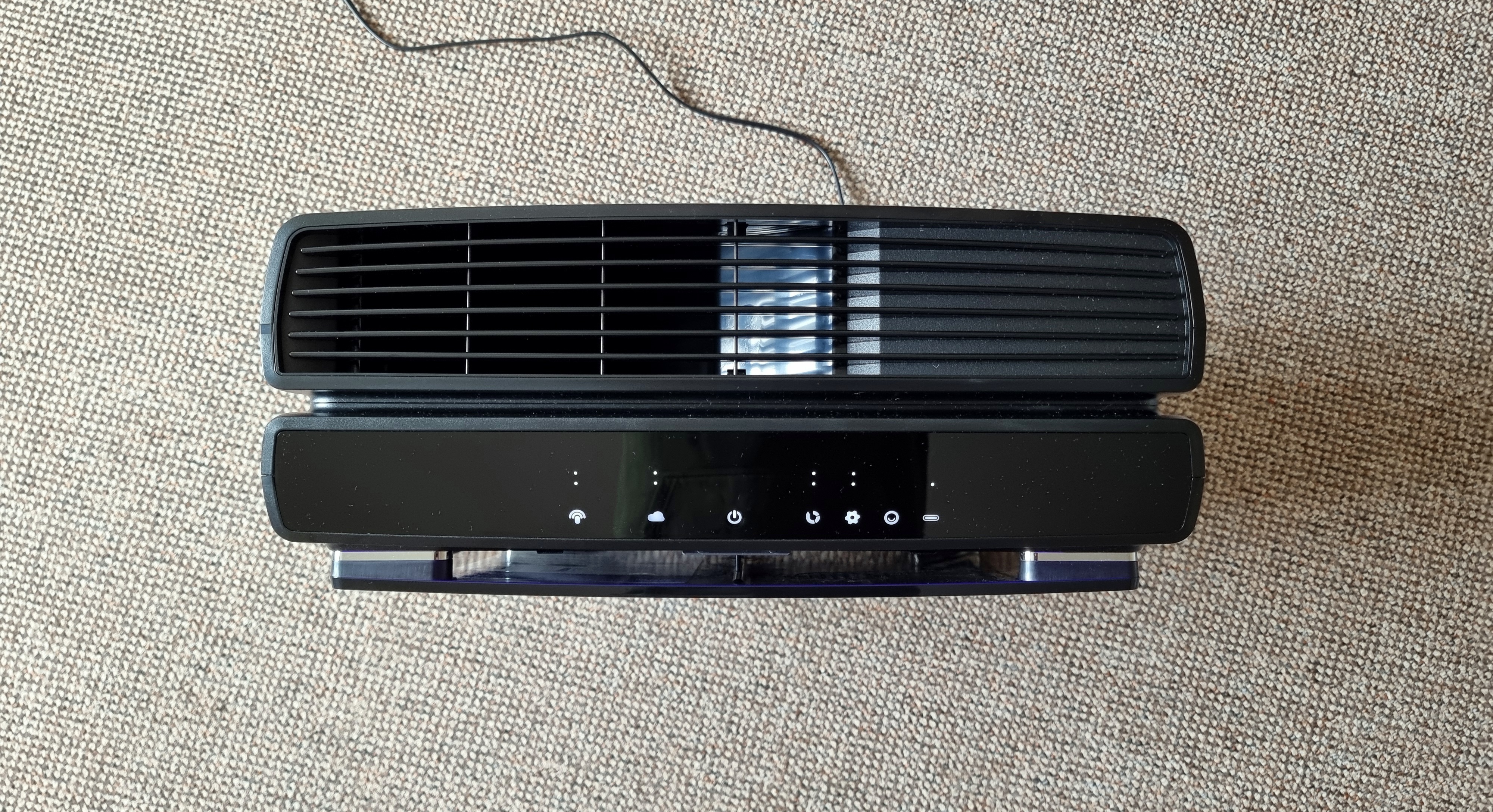
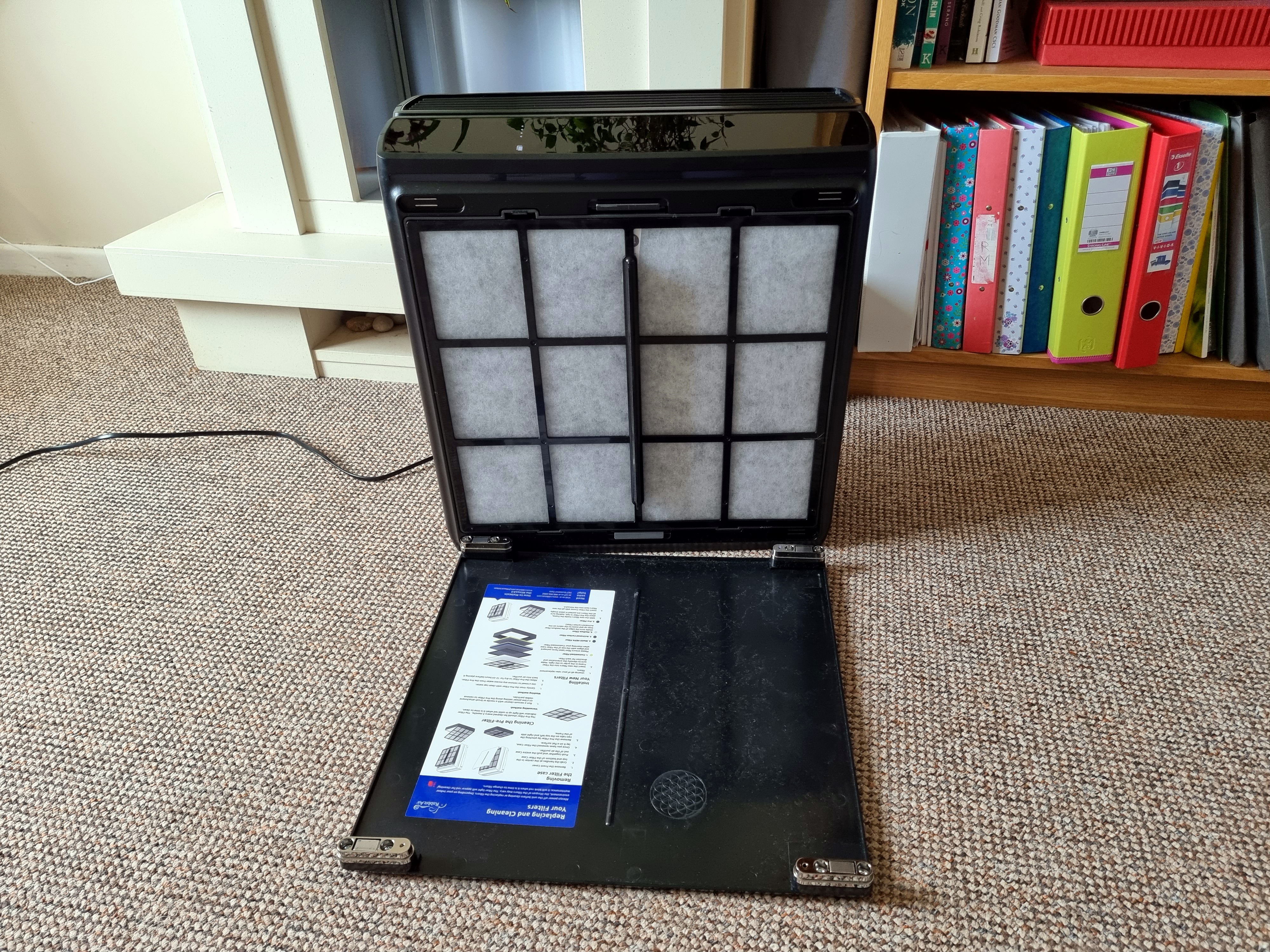
Specifications
Reasons to buy
Reasons to avoid
✅ You want a real looker: This air purifier comes in multiple eye-pleasing designs.
✅ You need an air purifier for a large bedroom: It boasts powerful performance and it is whisper-quiet.
❌ You are on a budget: It costs between $749.95 and $769.95, and its filter replacements are expensive, too.
❌ You need to move it around a lot: It does not feature any handles or ridges.
🔎 RabbitAir A3: This air purifier will be a talking point in your home. It is beautifully designed, whisper-quiet and exceptionally effective at removing airborne allergens. The caveat? The A3 is relatively expensive. It could be more portable, too. ★★★★
If you are looking for a powerful air purifier with a truly unique design, and you need it to cover larger rooms in your home, then the RabbitAir A3 is the ideal choice for you.
This thoughtfully designed air purifier comes in over 10 colorful designs, and it features a neat mood light that can be automatically switched off at night. More importantly, it boasts excellent air-cleaning performance. Certified Asthma & Allergy Friendly by the Asthma and Allergy Foundation of America, the RabbitAir A3 will easily get rid of pollen, pet dander and many other airborne allergens. And because it is Energy Star Certified, it will not put a strain on your energy bill while doing so.
During our RabbitAir A3 air purifier review, we were thoroughly impressed at its functionality. It is relatively large, but light and compact, and it does not make much noise even when kicked into high gear (maximum 43 dB in our tests). Unlike many other air purifiers on the market, the RabbitAir A3 can also be mounted on the wall, making it a great option for households with pets or small children. We also liked its user-friendly display, and that it was easily controlled via a handy app.
Moreover, the RabbitAir A3 features a whopping five filters, one of which can be customized to suit your specific needs. For example, you can choose a Germ Defense filter to trap harmful microbes, or opt for a Pet Allergy filter to clear your air of pet dander.
There are, however, several downsides to the RabbitAir A3. This air purifier is relatively expensive, and its filter replacements come at a steep price tag. It is also tricky to move around, as it does not feature any handles or ridges.
- Read our full RabbitAir A3 air purifier review
Attributes | Notes |
|---|---|
Design | It comes in over 10 color options, and can be mounted on the wall. |
Performance | Excellent air-cleaning performance, quiet at use. |
Functionality | Easy to use and control remotely. |
Best tower fan for allergies
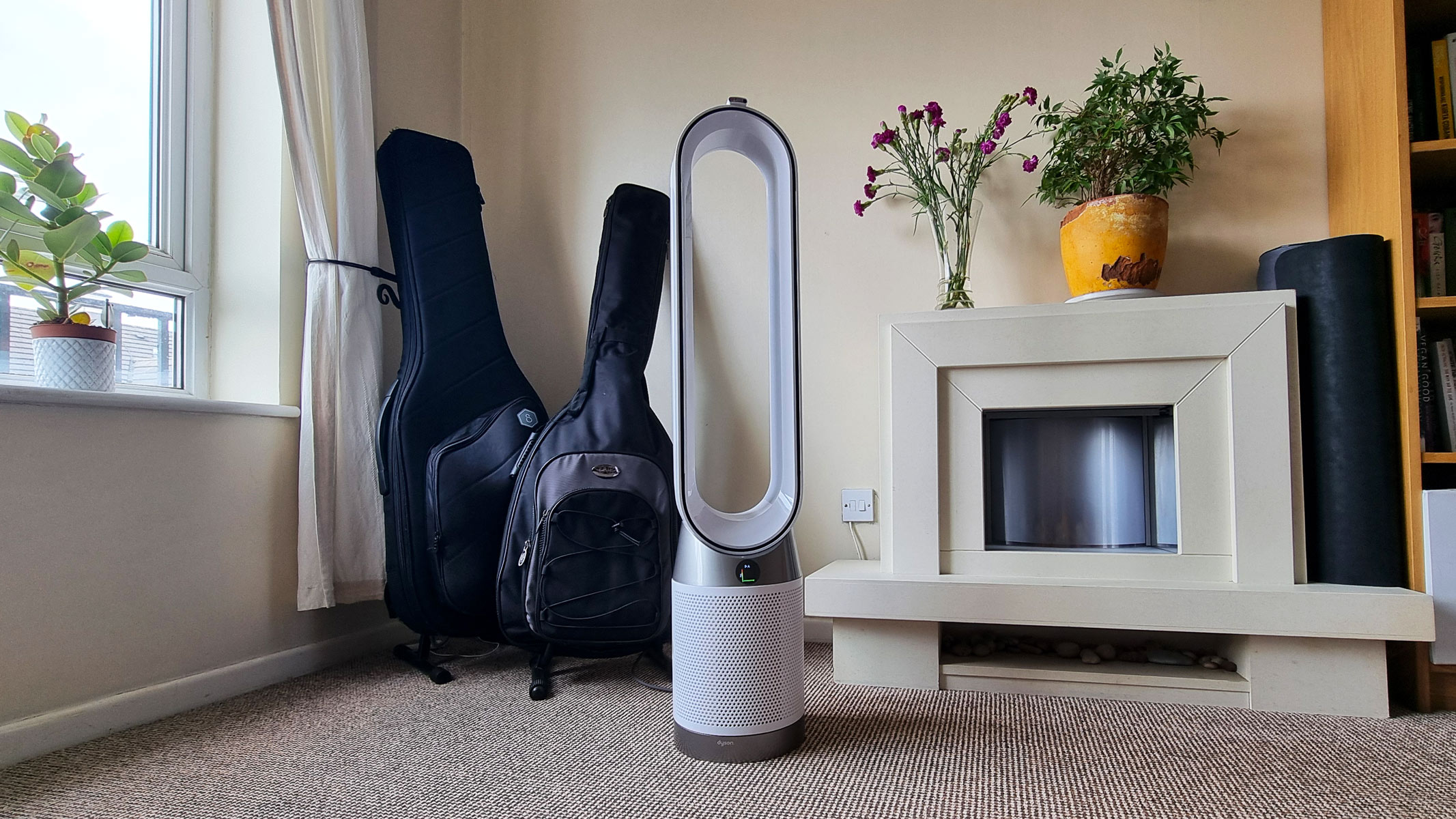
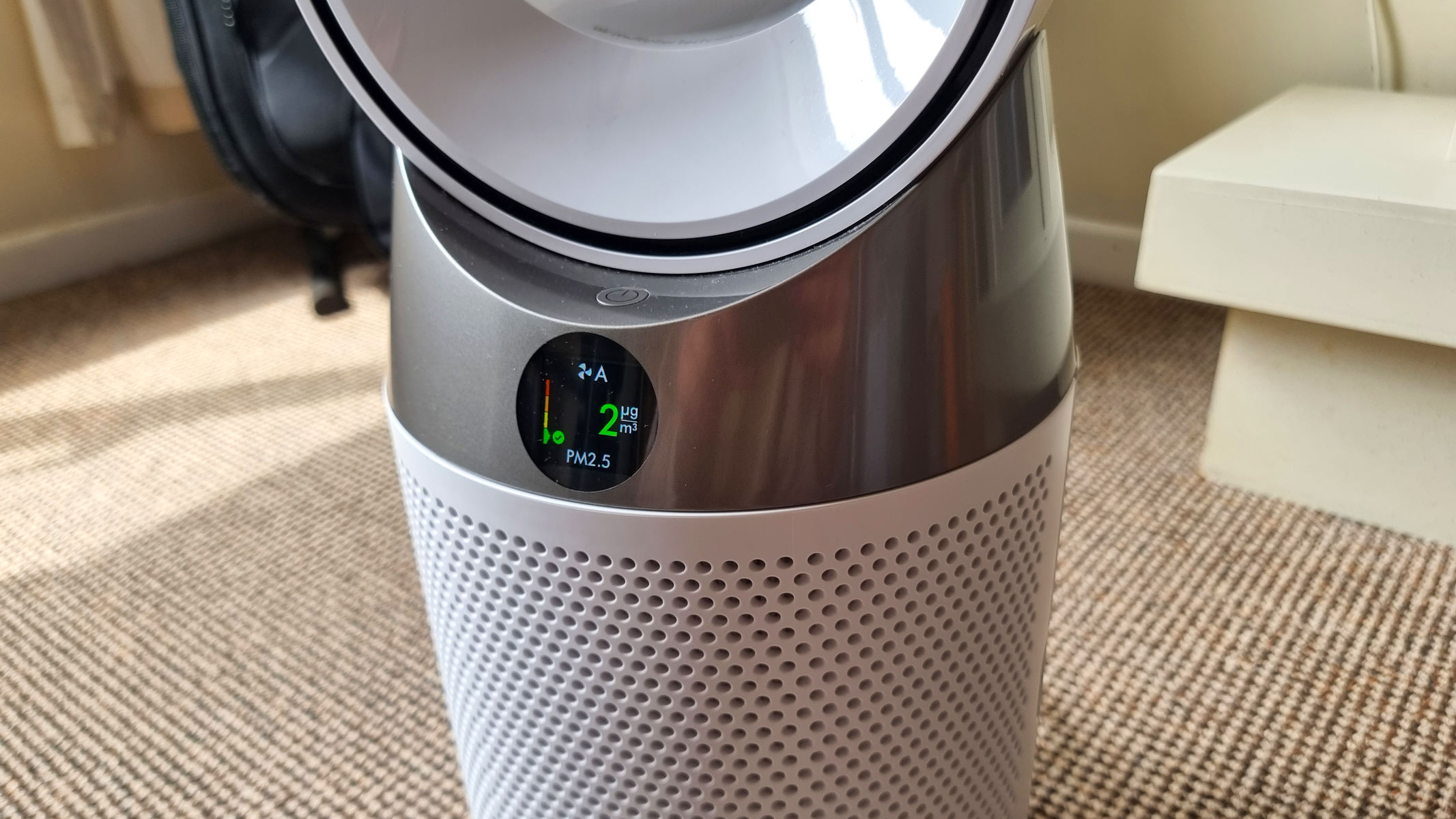
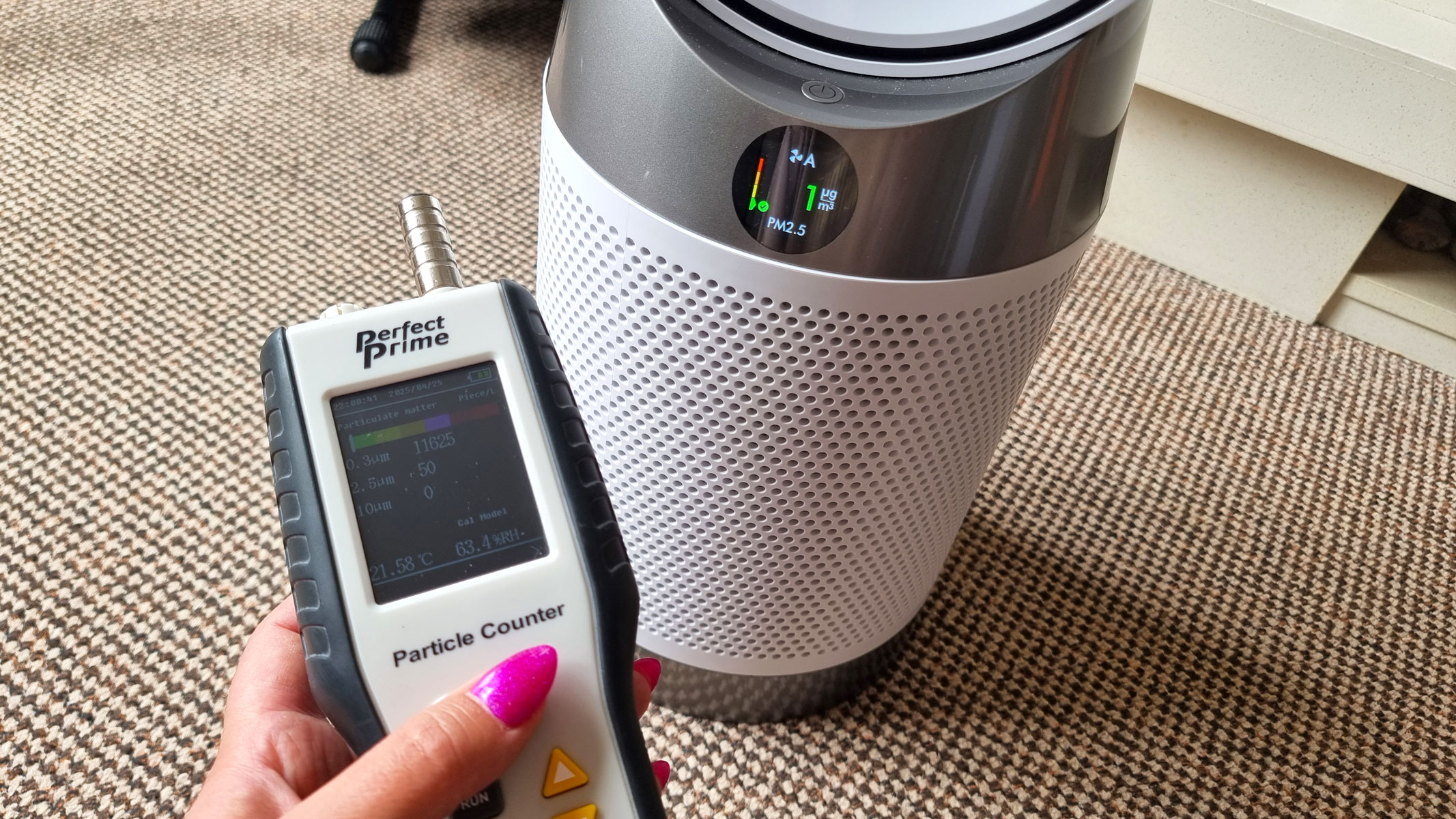
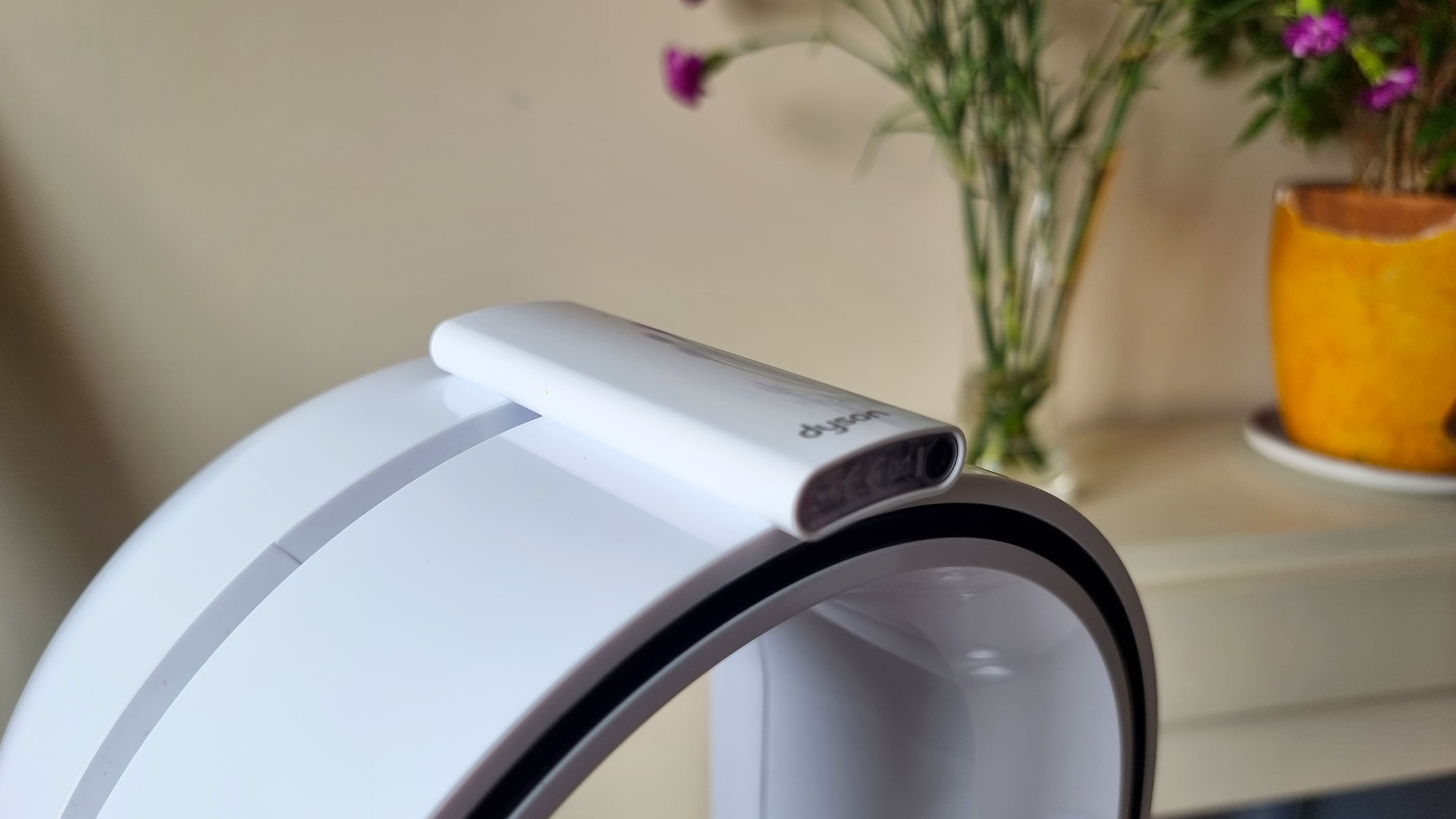
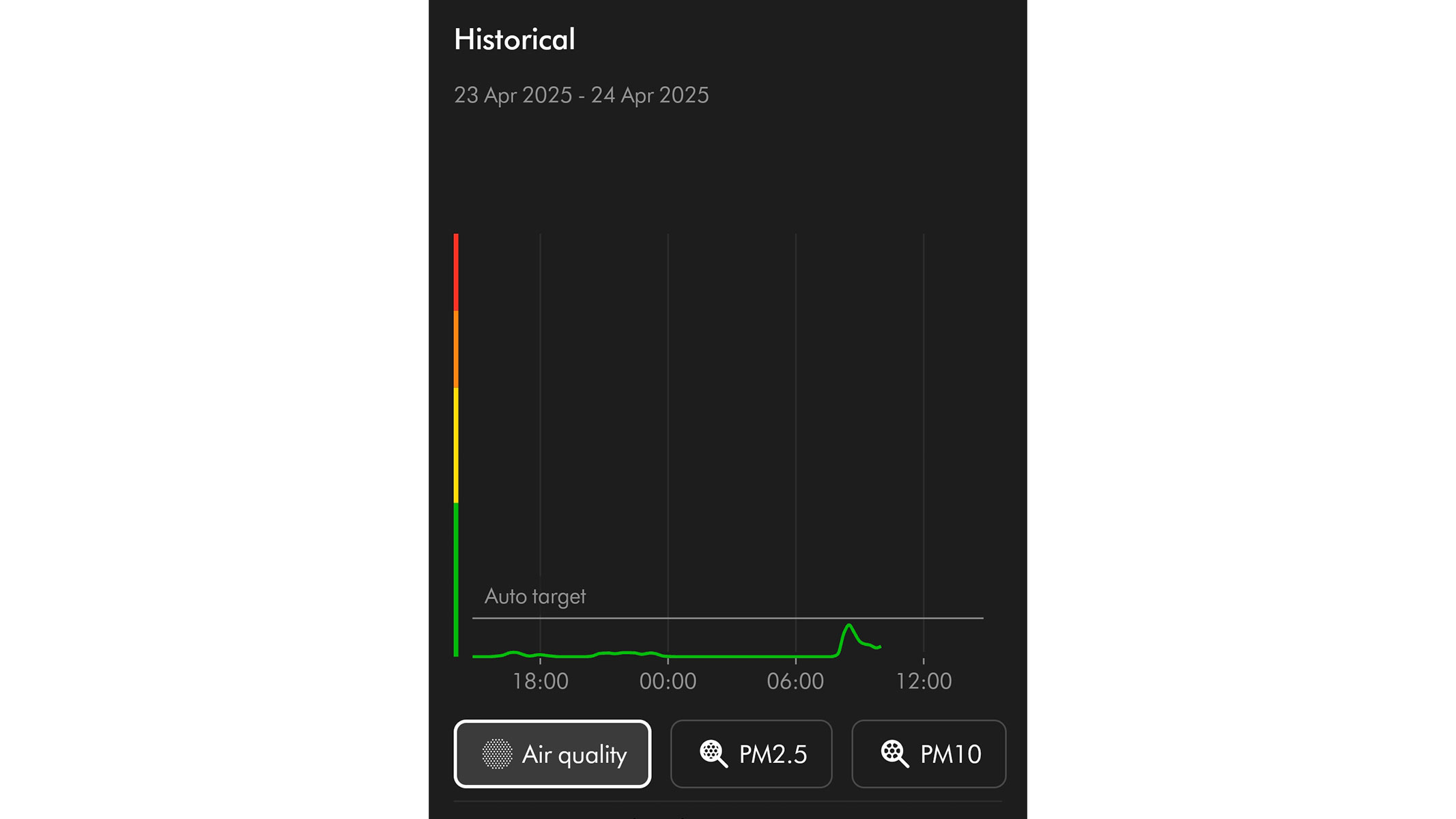
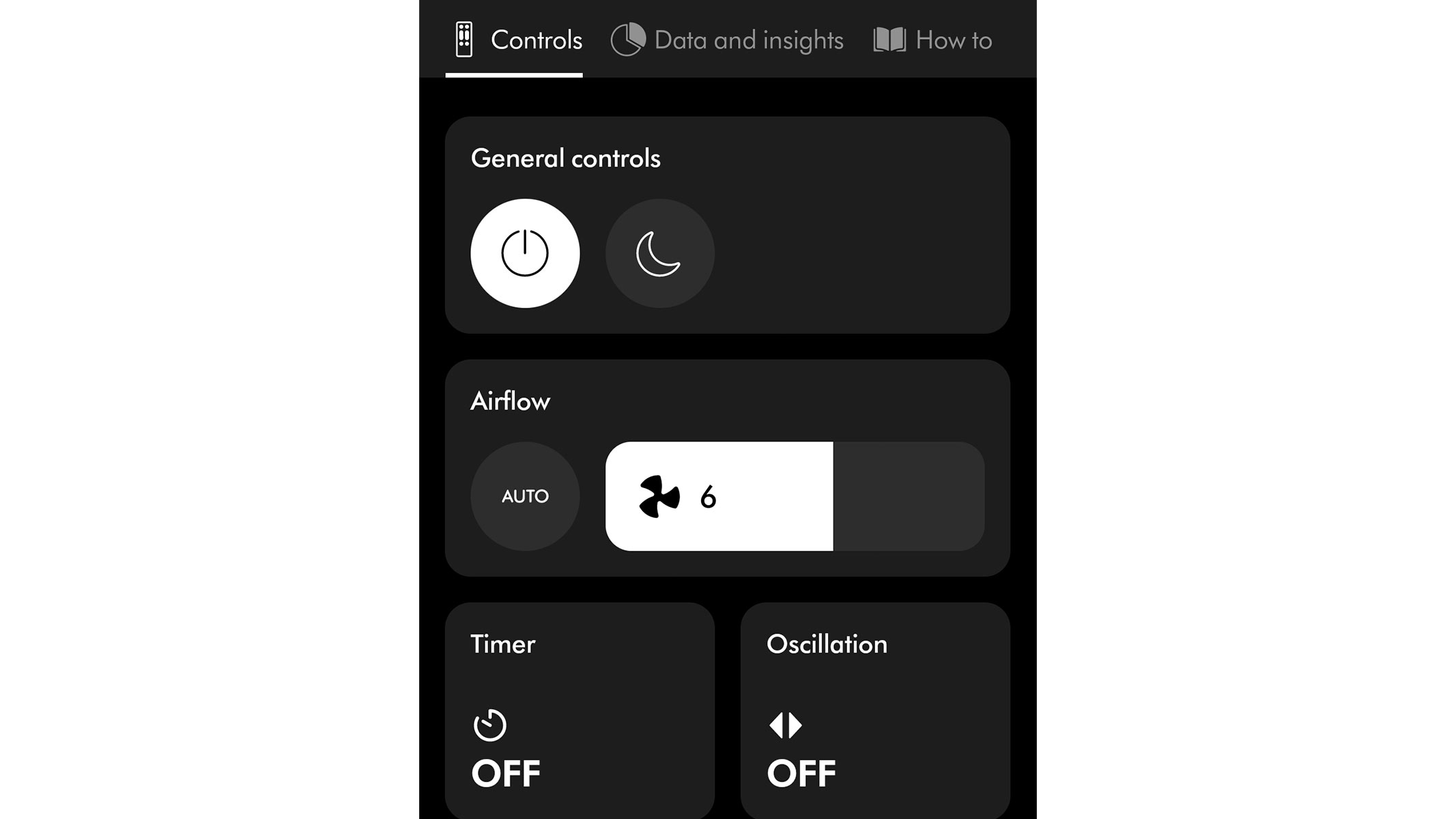
Specifications
Reasons to buy
Reasons to avoid
✅ You want something multifunctional: The Dyson Purifier Cool PC1 performs well and doubles as a cooling fan.
✅ You want smart features: You can control it with your voice or through the accompanying app.
❌ You are on a budget: It's one of the most expensive options on this list.
❌ You want something sturdy: It is feather-light and made mostly of plastic.
🔎 Dyson Purifier Cool PC1: Sleek, stylish and packed with useful features, this air purifier delivers a great air-cleaning performance. Plus, it keeps you cool during the summer months. However, it is also relatively expensive and quite flimsy in design. ★★★★
As with any Dyson product, a sleek and well-engineered design was to be expected of the Dyson Purifier Cool PC1 — we think it is one of the most stylish air purifiers on the market. This appliance definitely does not disappoint on those grounds, and has a practical edge too, doubling as a cooling fan, giving you more bang for your buck. True, it is not particularly affordable (it costs around $449, and since it was released relatively recently, it is rarely on sale), but it is still much cheaper than many other Dyson air purifiers. For example, the Dyson Purifier Hot+Cool Formaldehyde costs almost twice as much.
This sleek air purifier performed exceptionally well in our full Dyson Purifier Cool PC1 (TP11) review, with our tests concluding that it often captured more than 90% of monitored particles when used at its highest setting for at least 30 minutes. It picks up microscopic particles smaller than 2.5 microns, meaning it is capable of reducing dust, pollen and other airborne allergens.
In addition, the Dyson Purifier Cool PC1 does a great job as a bedroom fan with its quiet airflow and stylish design. At the lowest fan speed, it is no louder than whispers or leaves rustling in a gentle breeze (25 dB). This also means that this fan-air purifier is less noisy than some of the older Dyson models we have tested (the Dyson TP07, for example, can be as loud as a dishwasher).
If you want your home to be a relief from allergy symptoms, then another neat trick with the Dyson Purifier Cool PC1 is that you can set your machine to start working remotely, all from the comfort of your machine’s app. Smart features on this appliance are top-class. We were particularly impressed by its robust air quality monitoring — an important feature for anyone struggling with asthma and allergy symptoms.
Though this air purifier might not be within everyone’s price range, it has a lot to deliver, and an eye-catching design to sweeten the deal.
- Read our full Dyson Purifier Cool PC1 (TP11) review
Attributes | Notes |
|---|---|
Design | Sleek, stylish and portable. |
Performance | Doubles as a cooling fan. |
Functionality | Clever smart features and detailed air quality monitoring. |
Runner-up
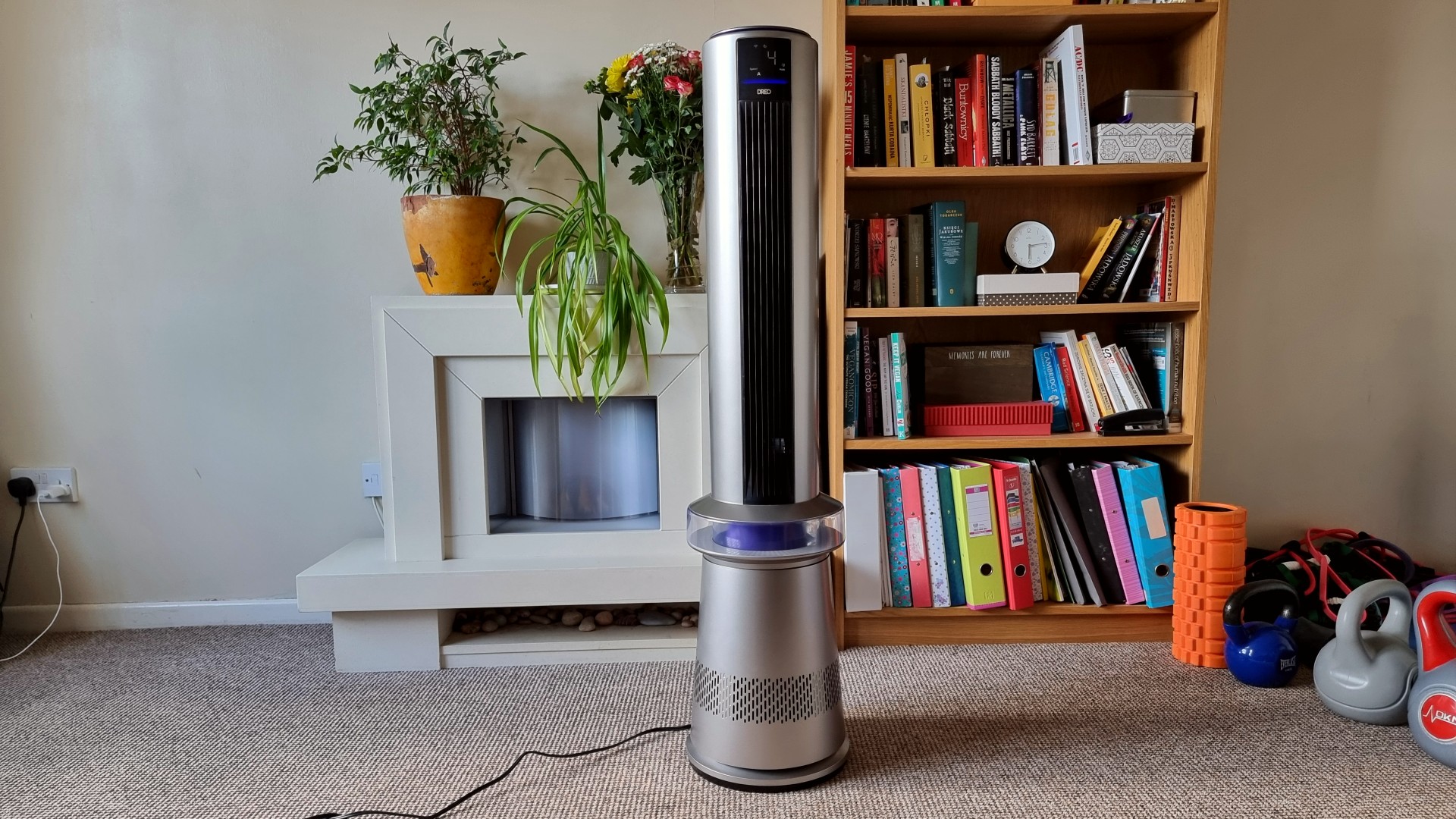
Best tower fan: Runner-up
The Dreo MC710S air purifier tower fan is cheaper than the Dyson Purifier Cool by around $300, but it does offer similar perks: powerful airflow, good air-cleaning performance and a plethora of smart features. However, it is not as stylish or durable.
Pros
- In-depth airflow customization
- Relatively quiet
- Good air cleaner
Cons
- Plastic build
- Bland design
- Difficult to pick up and move around
Best air purifier for germs
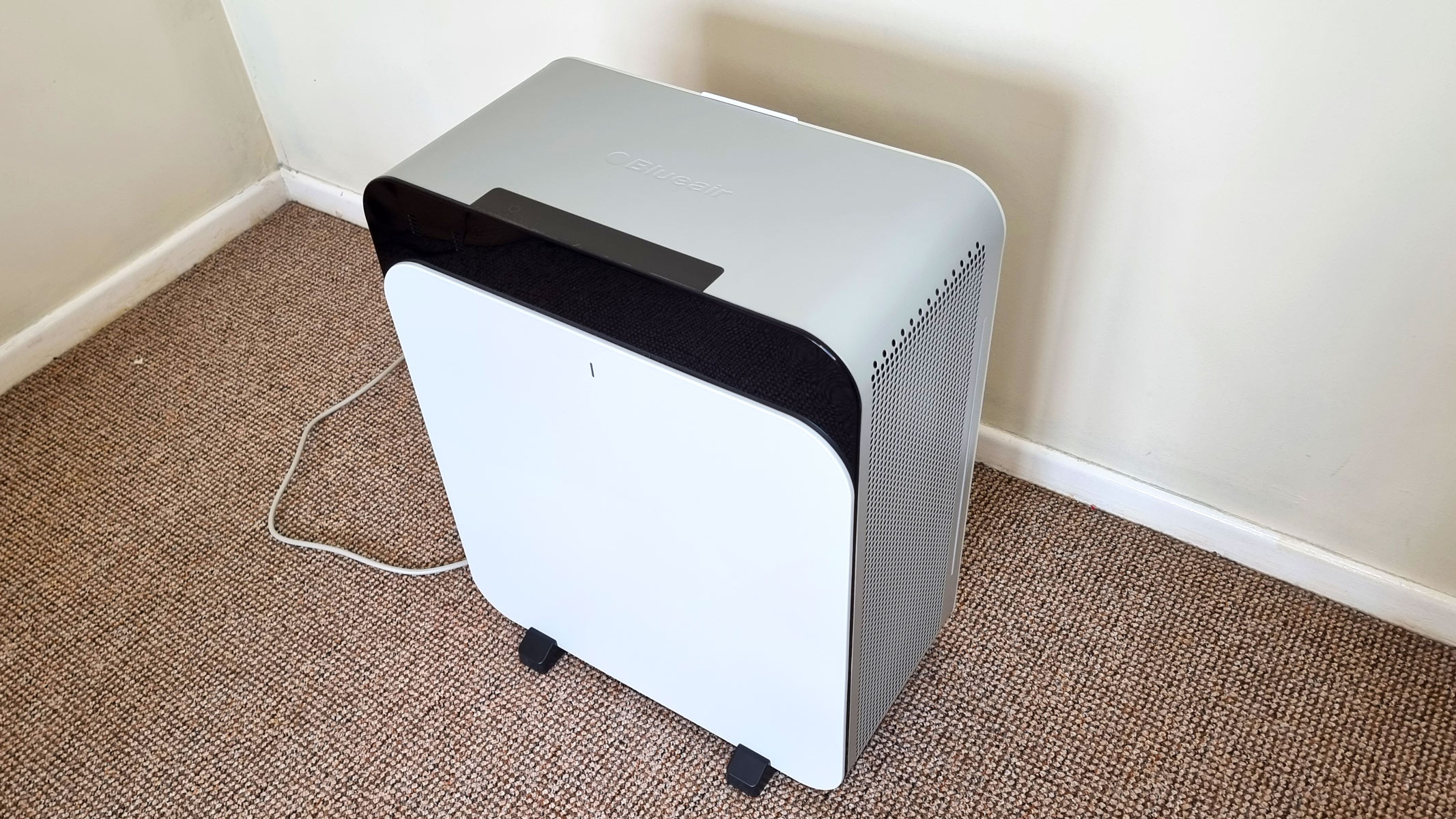
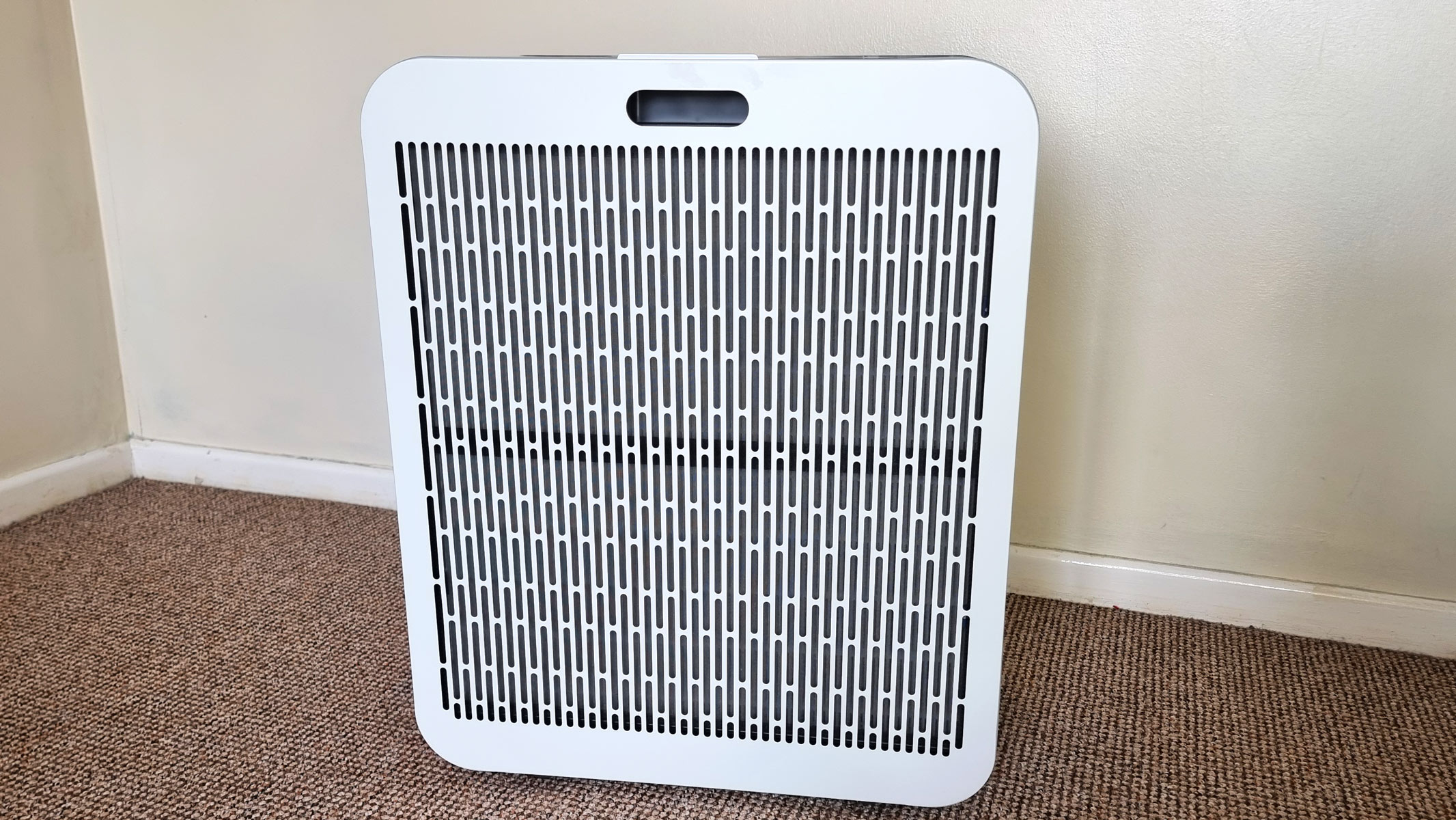
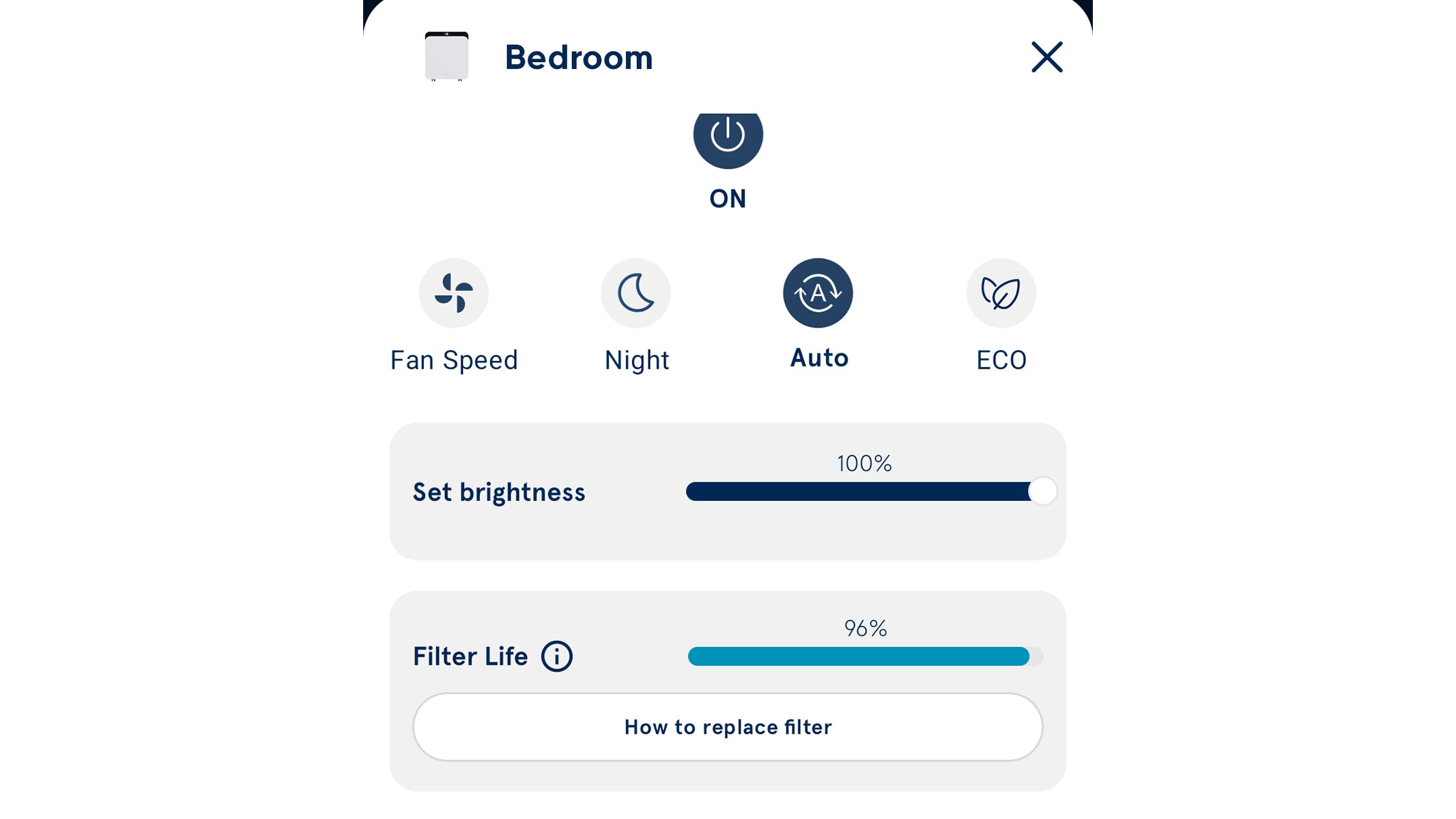
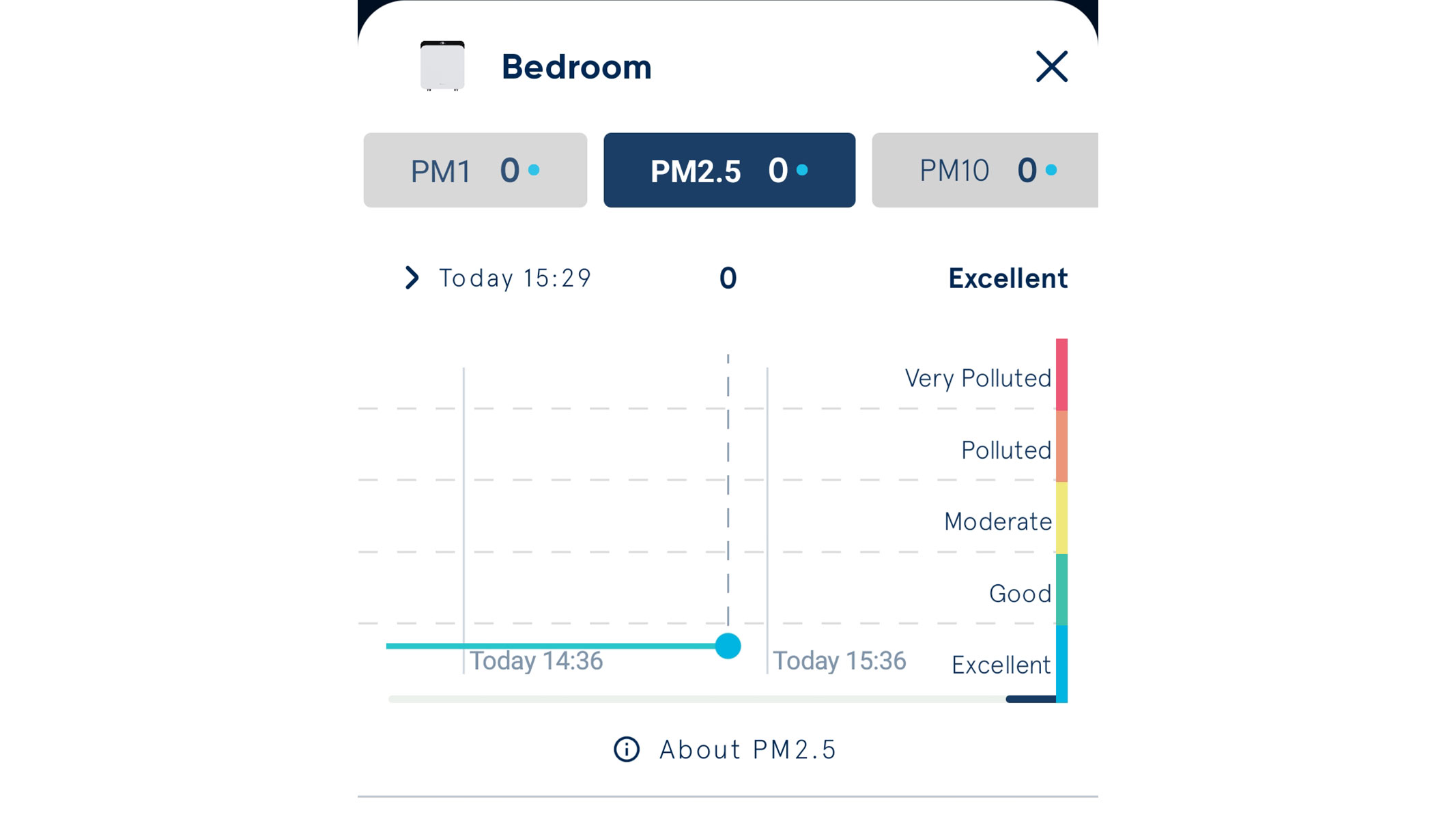
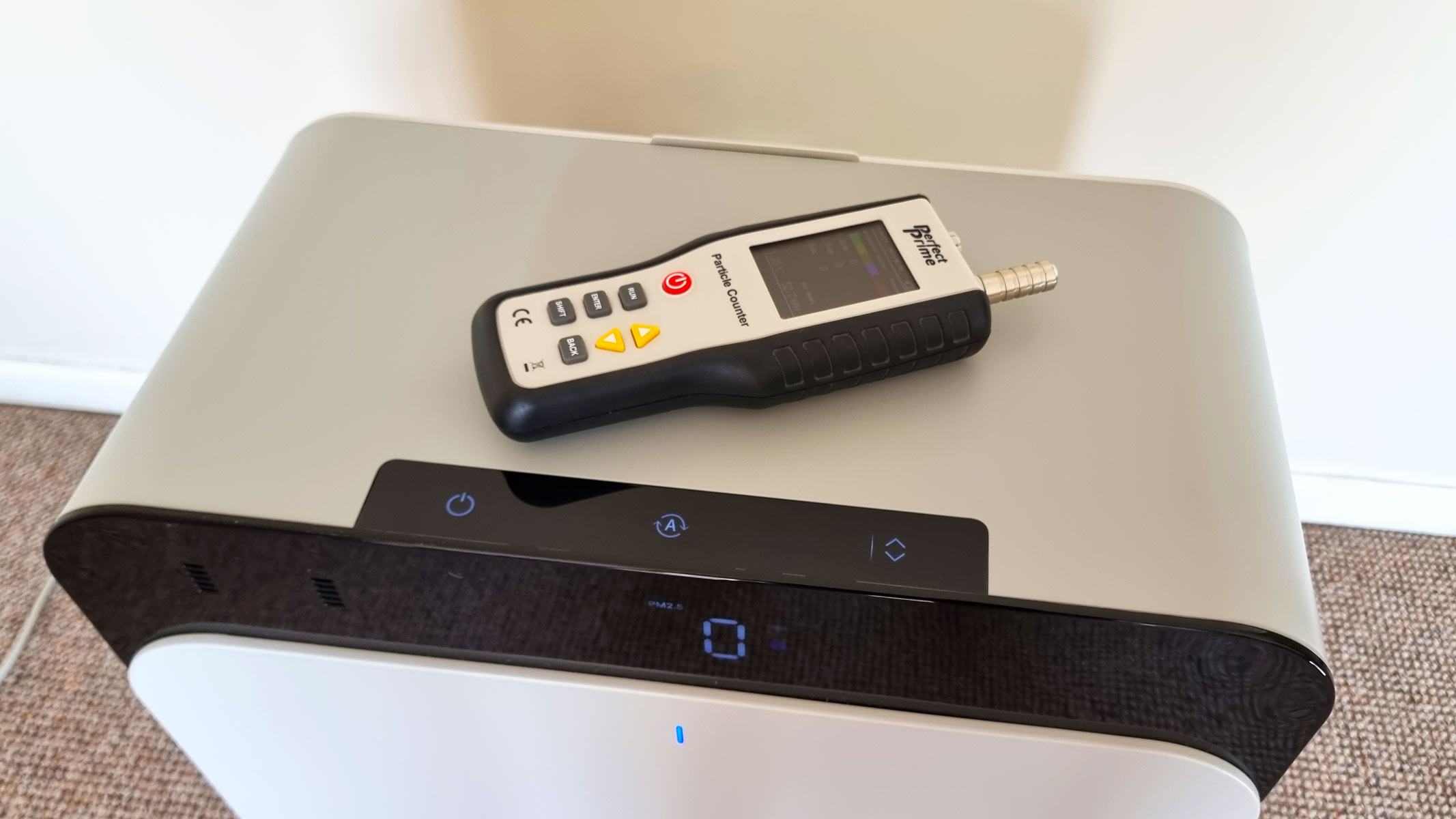
Specifications
Reasons to buy
Reasons to avoid
✅ You want something powerful: It removes a wide range of pollutants in rooms measuring up to 2,800 square feet.
✅ You want in-depth air quality measurements: It can tell you which particles linger in your indoor air.
❌ You do not want to spend a lot: This is one of the most expensive purifiers on this list.
❌ You want a stylish design: Its basic looks may not be to everyone's taste.
🔎 BlueAir Classic Pro CP7i: It may be one of the pricier air purifiers in this guide, but this powerful machine is well worth the money. The CP7i offers excellent performance, in-depth air quality measurements, a robust filtration system and a handy smart app. ★★★★½
Large spaces require powerful air purifiers, especially if allergies are your primary concern. The BlueAir Classic Pro CP7i fits the bill — it is best suited for rooms measuring 609 square feet, but it can cover up to a whopping 2,800 square feet, and it boasts one of the highest CADR ratings of all the appliances mentioned in this guide. On the flip side, it is also one of the most expensive. This air purifier costs nearly $700, and its filter replacements will set you back by around $100 at a time. That said, we still stand by our choice. The BlueAir Classic Pro CP7i may not have the awe-inspiring looks of the Rabbit Air A3 or the mind-boggling functionality of the SwitchBot Air Purifier Table, but you would be hard-pressed to find a better unit for large spaces. Here's why.
First and foremost, it is the only air purifier on the market with High-Intensity Narrow Spectrum (HINS) lighting. This technology, often used in healthcare settings like clinics and surgery wards, has been shown to safely and effectively remove viruses, bacteria and other common pathogens. Every 10 minutes, the BlueAir Classic Pro CP7i turns on the HINS lightning to reduce the germs captured on the air filters, thus removing them from circulation.
Speaking of air filters, this air purifier features a pre-filter, a HEPA filter and an activated carbon filter — and it shows. During our full BlueAir Classic Pro CP7i review, we were thoroughly impressed by its ability to remove unpleasant smells and various airborne particulates. This air purifier delivered particularly good results in our smoke tests, sucking up to 99.99% of particles after 30 minutes of running on Auto mode. The cherry on top? It was exceptionally quiet doing so.
Lastly, the BlueAir Classic Pro CP7i boasts several independent certifications, including Asthma & Allergy Friendly, Energy Star and CARB. This air purifier delivers on its claims and has the receipts to prove it.
- Read our full Blueair Classic Pro CP7i review
Attributes | Notes |
|---|---|
Design | Boxy and heavy |
Performance | Immense and quiet. |
Functionality | App and voice control. |
Best air purifier for large spaces
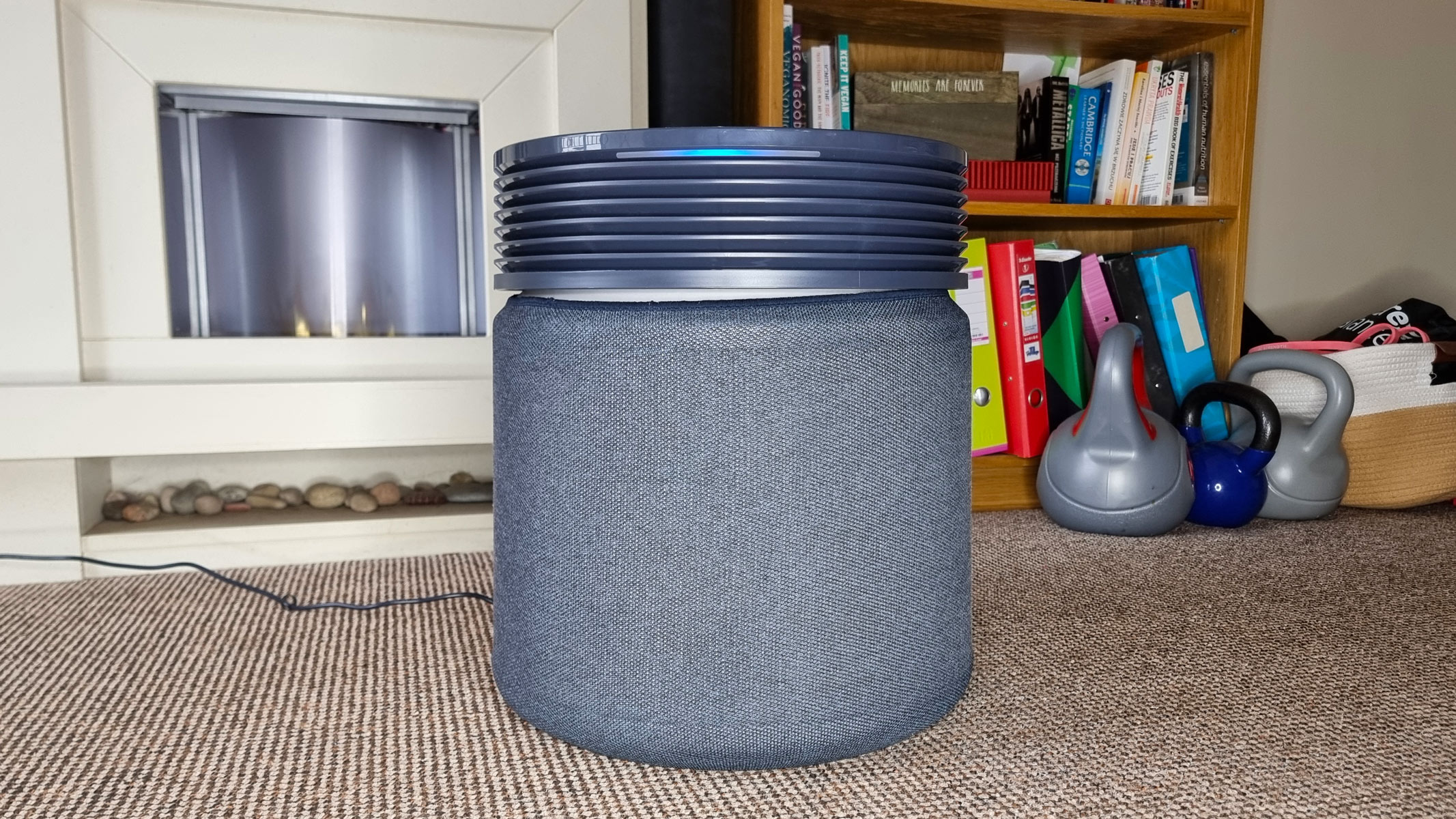
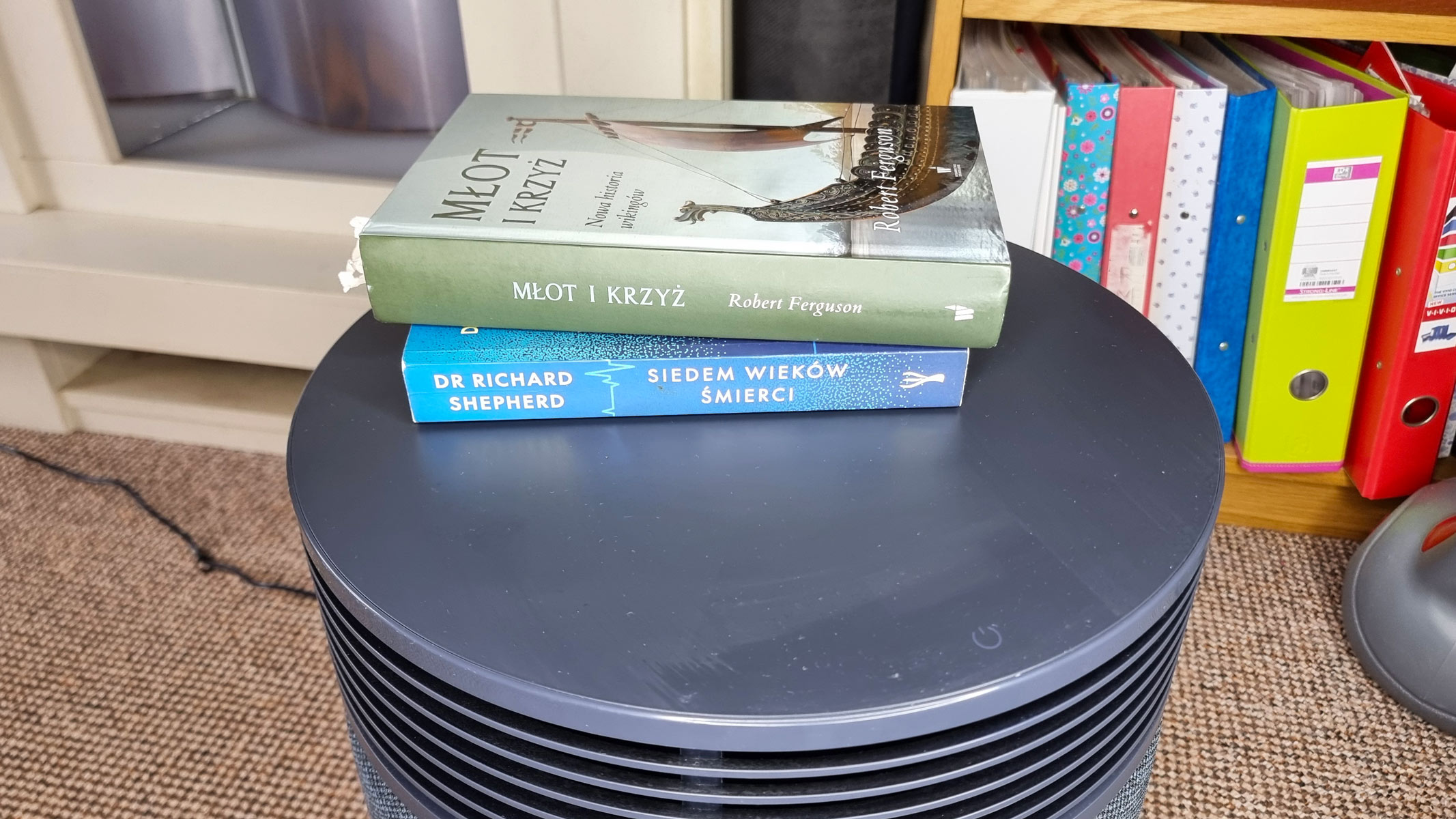
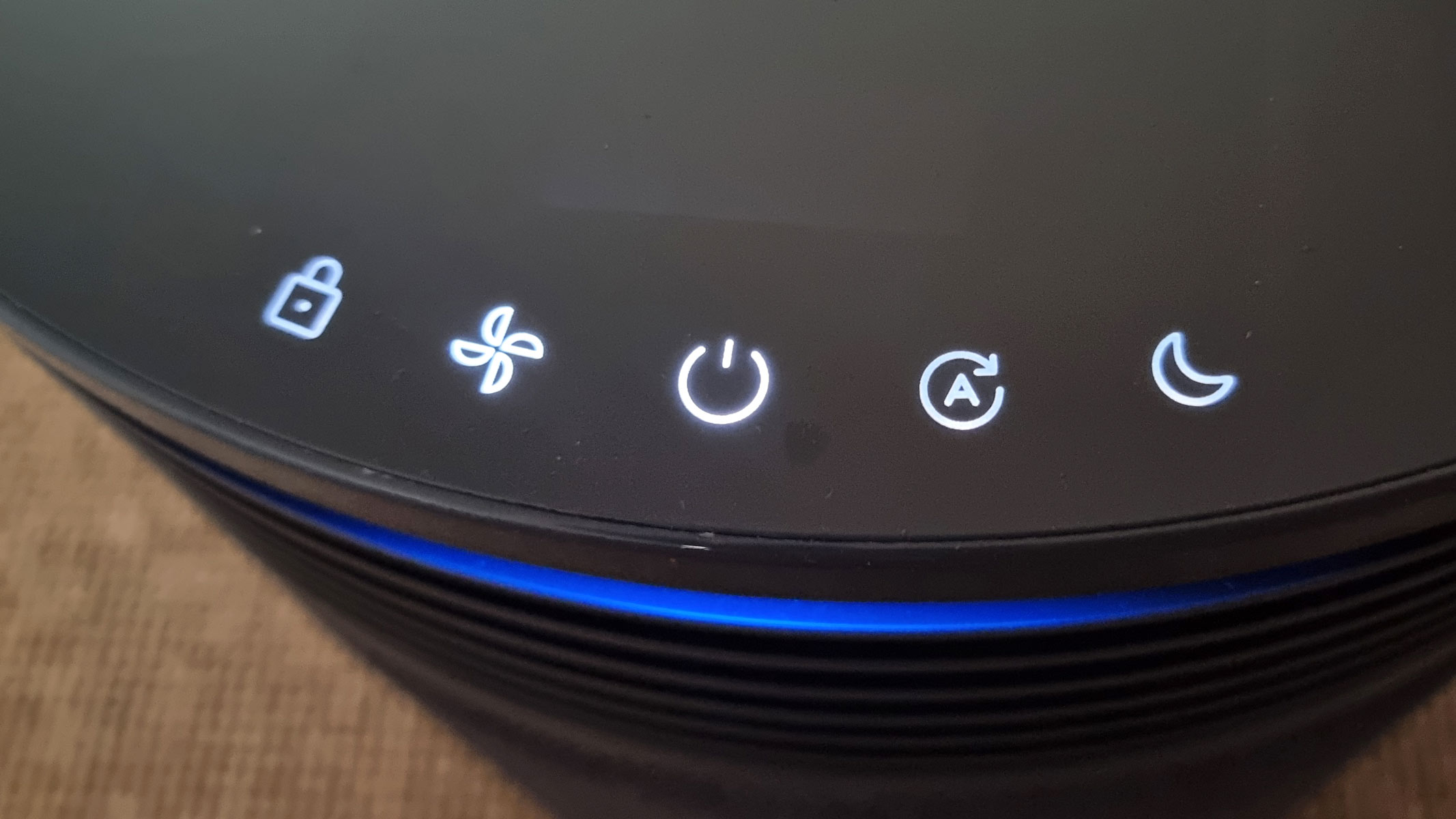
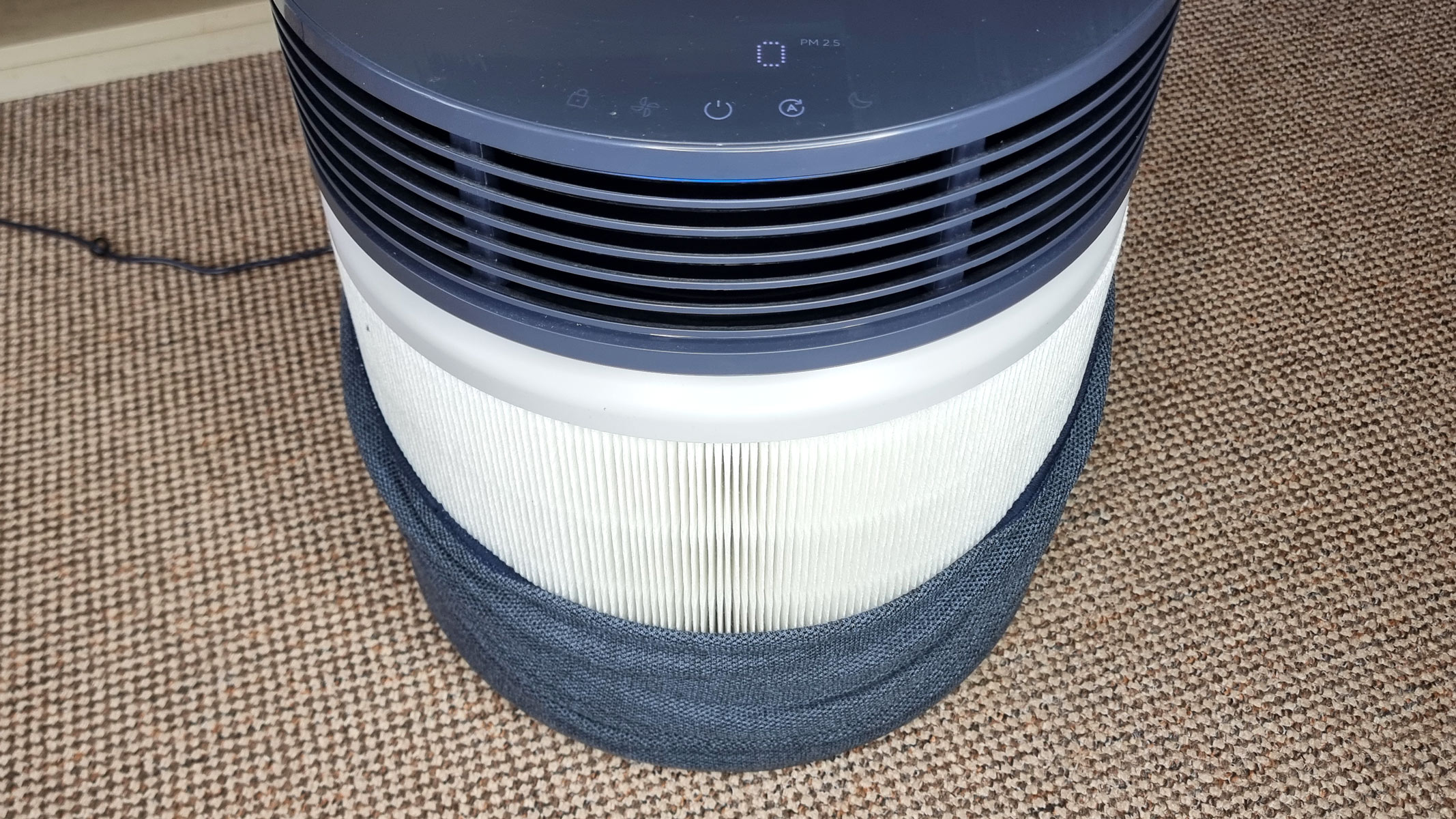
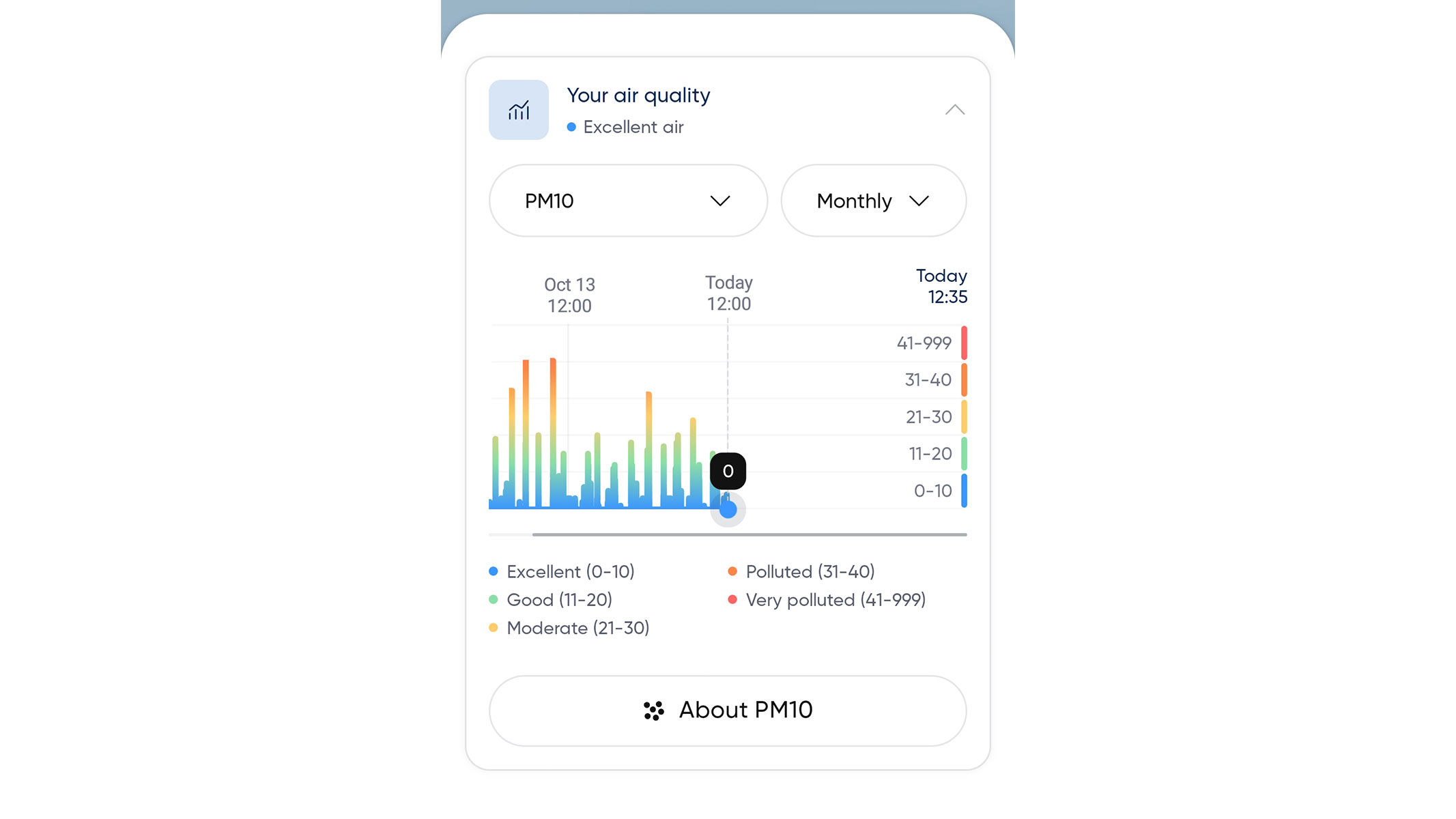
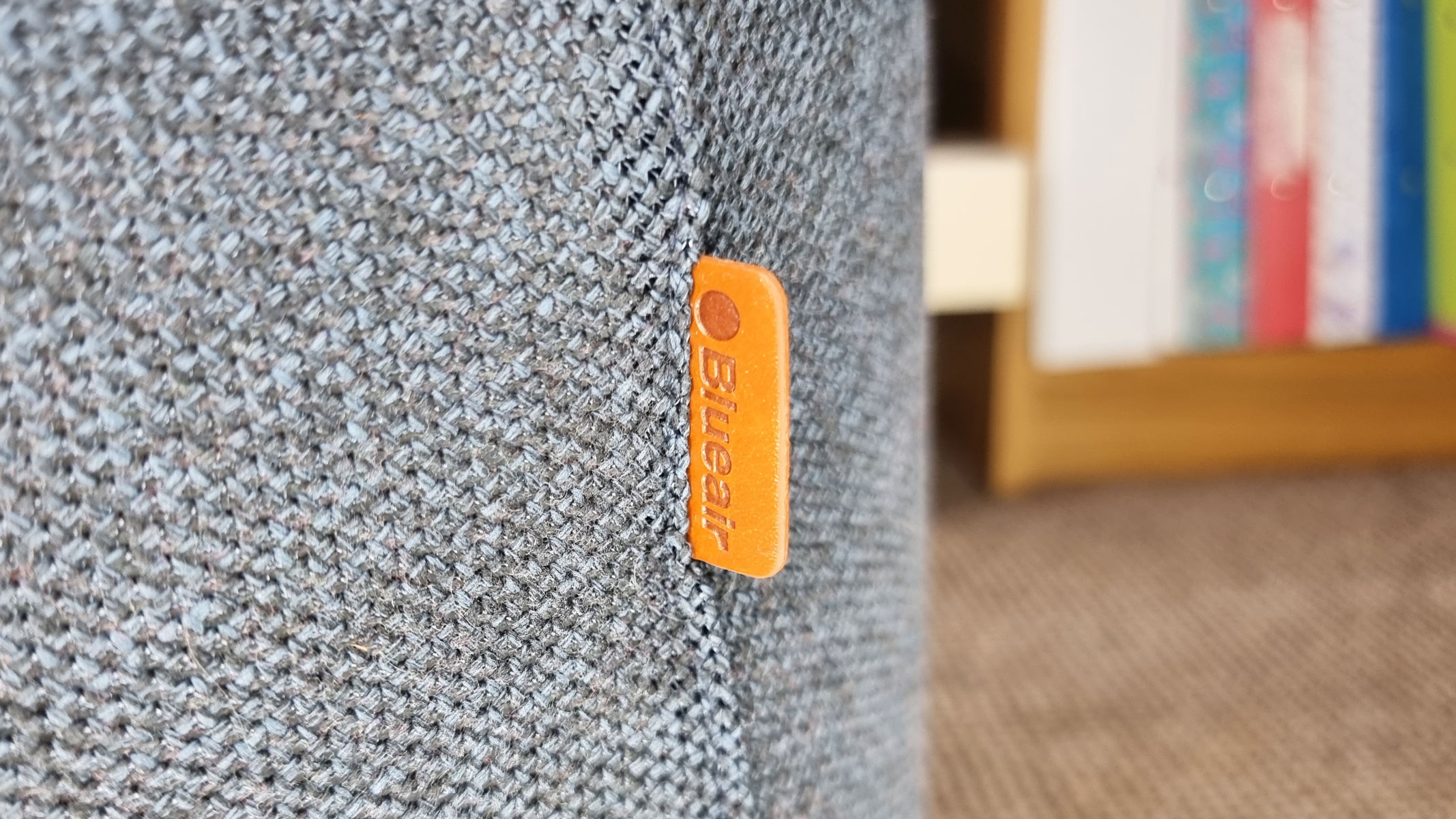
Specifications
Reasons to buy
Reasons to avoid
✅ You want a stylish, customizable design: It looks more like a piece of furniture than an air purifier.
✅ You are looking for a bedroom air purifier: It is whisper-quiet.
❌ You have cats: Their paws will tear through the fabric pre-filter.
❌ You want something easy to maintain: Pre-filters can be a hassle to keep clean.
🔎 Blueair Blue Signature: It is a near-perfect air purifier: stylish, powerful and equipped with a good range of smart features. We just wish it were slightly cheaper and more durable. ★★★★½
The Blueair Blue Signature is our favorite pick for large bedrooms and living spaces, and by a long mile. This air purifier won us over with its exceptionally stylish design, whisper-quiet fans and powerful air-cleaning performance. We also liked how functional it was — the Blue Signature comes with an impressive set of smart features and doubles as a table for books, remote controls and other small trinkets. Not to mention, it is Energy Star certified and highly customizable. We gave it a near-perfect 4.5-star rating in our Blueair Blue Signature review, and if not for its high price (the basic version of this air purifier costs $449.99) and relatively fragile build, we would have given it a full five stars.
The Blueair Blue Signature not only does a good job of trapping airborne allergens, but it also excels at removing bad smells. That is because it is equipped with a patent-pending OdorFence technology — unlike other models mentioned in this guide, it does not trap odor molecules in a carbon filter, but it actively breaks them down using enzymes. According to Blueair, this innovative method is 10 times more effective against lingering smells than carbon filtration alone. While this may sound like a bold claim, this air purifier did make a considerable difference to the air freshness in our home, effectively tackling smoke, cooking smells and cleaning chemicals.
That said, the Blueair Blue Signature may not be the best option for households with cats and/or small children. The fabric pre-filters are easy to damage, plus they have to be regularly washed and changed, and the largely plastic tabletop surface is prone to scratches. If you need something more durable, we would recommend the Levoit Core 600S instead.
- Read our full Blueair Blue Signature air purifier review
Attributes | Notes |
|---|---|
Design | Stylish and customizable. |
Performance | Powerful and quiet. |
Functionality | App control, detailed air quality readings. |
Best air purifier for monitoring air quality
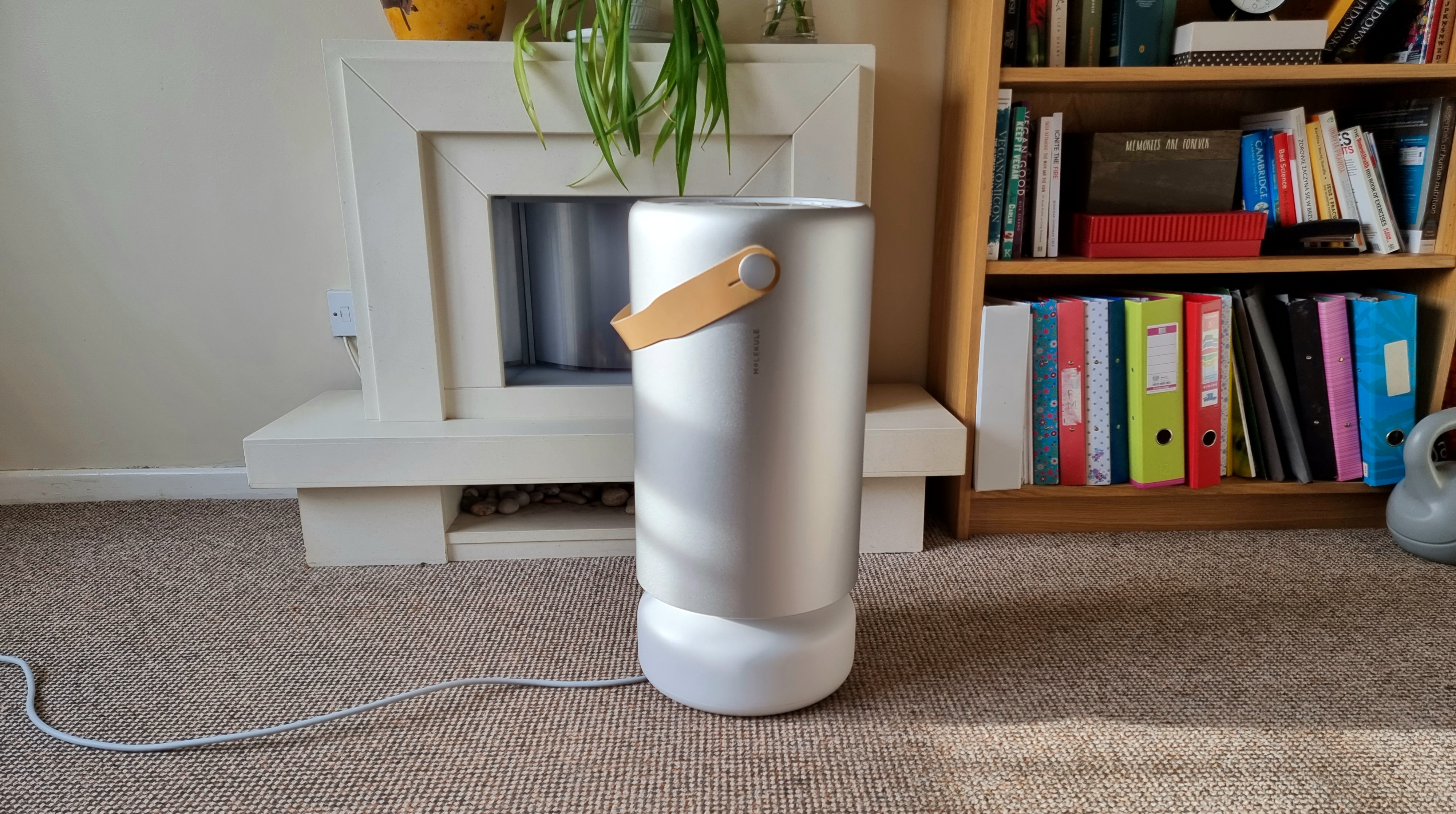
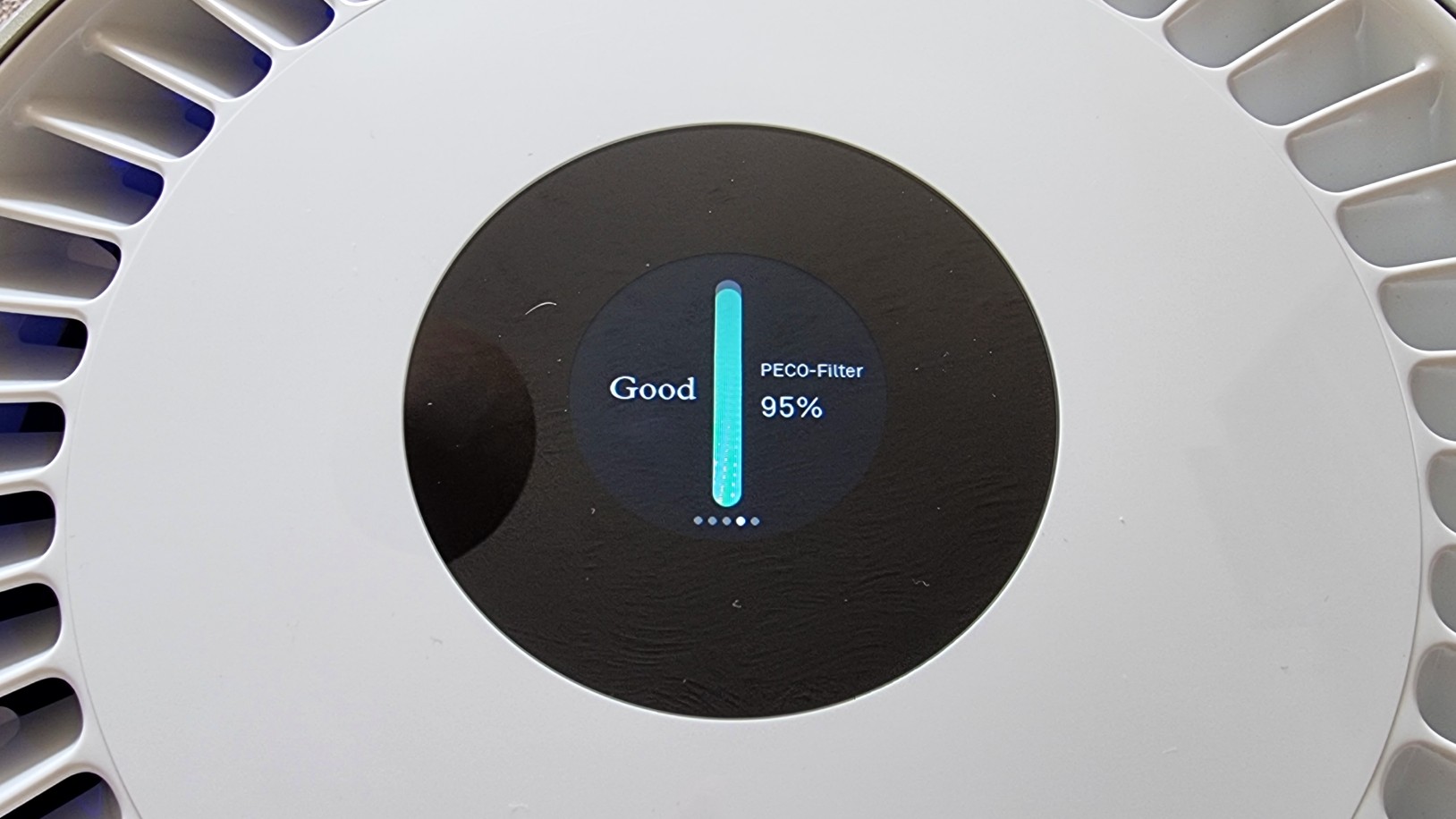
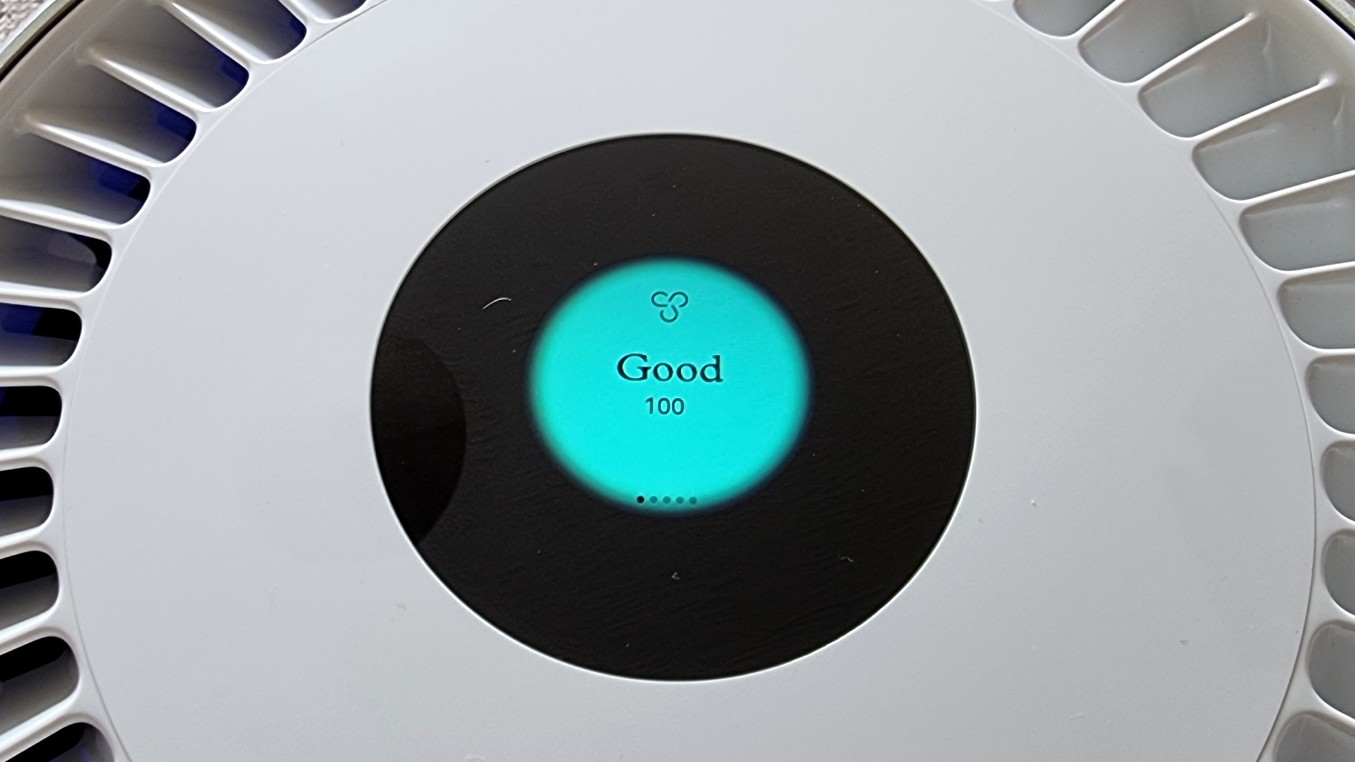
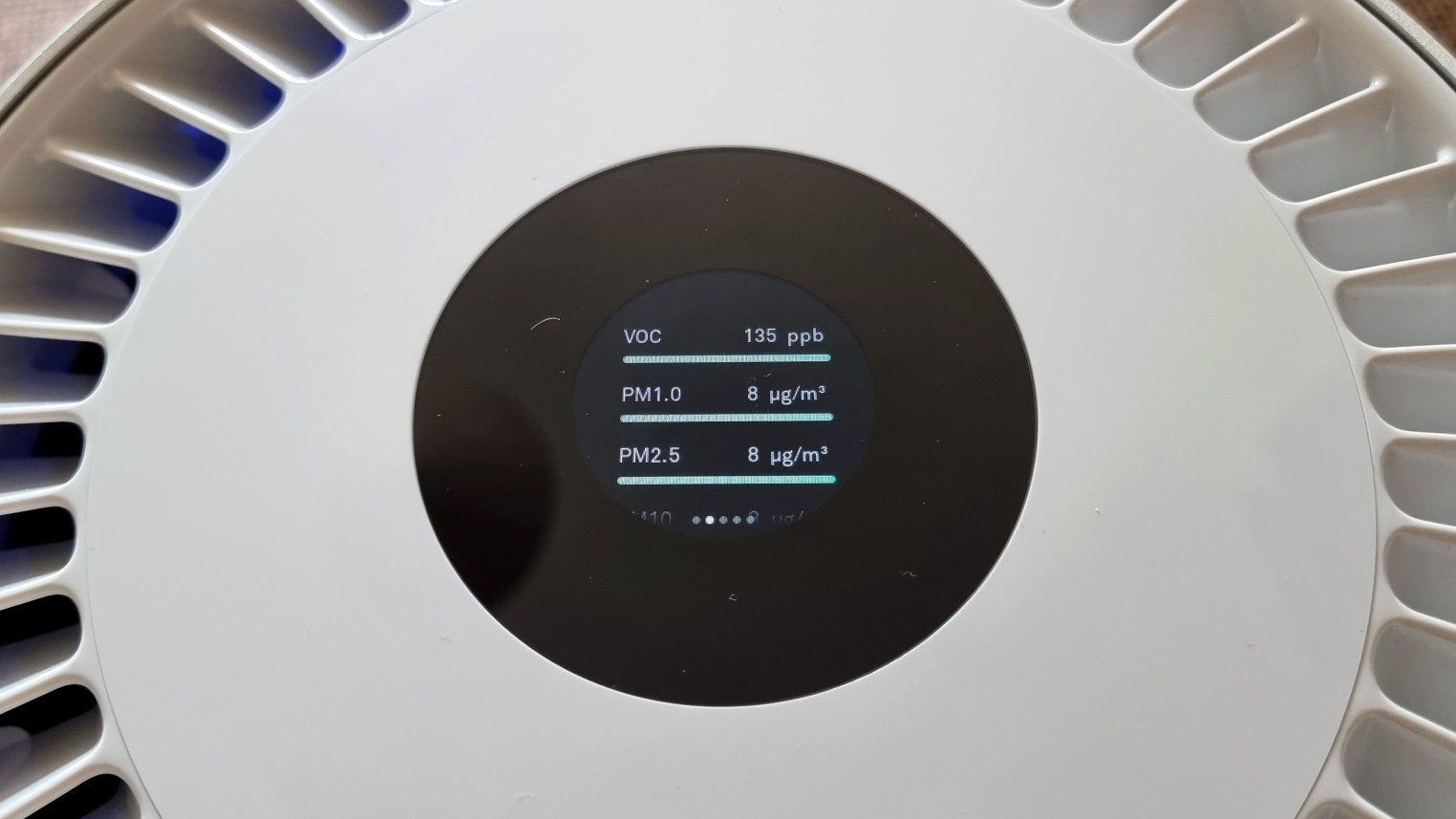
Specifications
Reasons to buy
Reasons to avoid
✅ You have a large space: It's best suited for large spaces, both in size and effective range.
✅ You want to keep a close eye on air quality: This unit will tell you exactly how much of each type of airborne pollutants lingers in the air.
❌ You are on a budget: It is an impressively powerful air purifier, but it does come at a steep cost.
❌ You want something quiet for your bedroom: We found it was quite loud on its highest fan setting.
🔎 Molekule Air Pro: This elegant air purifier boasts impressive air-cleaning performance and some of the best air quality readings out there. It is relatively big and expensive, though. ★★★★
The Molekule Air Pro provides some of the most comprehensive air quality readings we have seen in a commercial air purifier. Unlike most appliances on the market, it tells you exactly how much particulate matter is lingering in the air at any given time, breaking it down into 1-micron, 2.5-micron, and 10-micron particles, volatile organic compounds (VOCs), carbon dioxide and relative humidity. All of the data collected by the Molekule Air Pro can then be viewed in the Molekule app, so you can have a detailed overview of air pollution changes over time. If you like your numbers or are concerned about a specific type of airborne allergens, this air purifier will thoroughly impress you.
It is not just the air quality readings that make the Molekule Air Pro stand out among its competitors. This air purifier is one of the handful of models cleared by the FDA as a Class II medical device under the 510(k) program. That is because it is equipped with a patented pollutant-destroying PECO technology that can turn pollen, dust mites and other organic airborne allergens into water vapor and harmless gases — and it showed in our tests.
During our Molekule Air Pro review, we were impressed by its powerful air-cleaning performance. This appliance did a particularly good job at removing smoke, trapping 99.6% of particles measuring 0.3 microns and 99.9% of 2.5-micron particles after just 15 minutes on Auto mode. The Molekule Air Pro delivered even better results when we repeated this test at its highest fan setting. The problem is, this air purifier was relatively loud when put through its paces, reaching up to a whopping 66dB — as loud as a regular conversation. It can, however, be put in a Quiet Mode.
High cost is another downside. Priced at roughly $1000, the Molekule Air Pro is one of the most expensive models in this guide, and its filter replacements are pricey, too. If you want to monitor air quality at a smaller cost, consider the Levoit Core 600S-P instead.
- Read our full Molekule Air Pro review
Attributes | Notes |
|---|---|
Design | Sleek and intuitive to use. |
Performance | Powerful, but loud. |
Functionality | App control, voice assistant, detailed air quality readings. |
Second-best
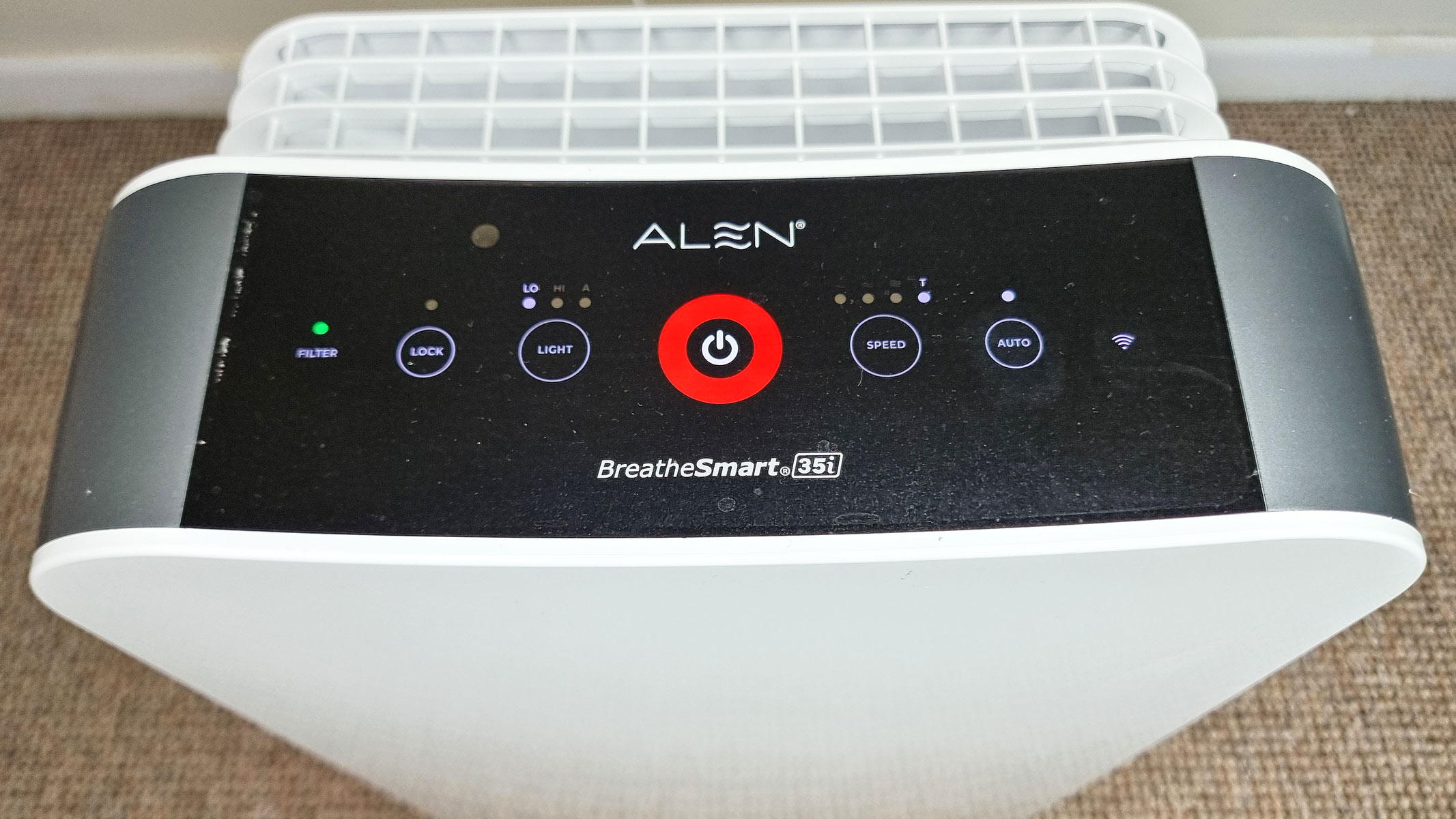
Second-best air purifier for air quality monitoring
If the Molekule Air Pro is way above your budget, consider the Alen BreatheSmart 35i instead. While still relatively expensive ($269, or $284 with customizable filters), this air purifier is nearly four times cheaper, and it comes with a similarly impressive range of smart features. Most importantly, it boasts detailed real-time and historical air quality monitoring, including VOCs and humidity levels.
Pros
- Superb air-cleaning performance
- Quiet and unobtrusive
- Robust air quality monitoring
Cons
- On the expensive side
- Plastic build
Best air purifier with humidifier
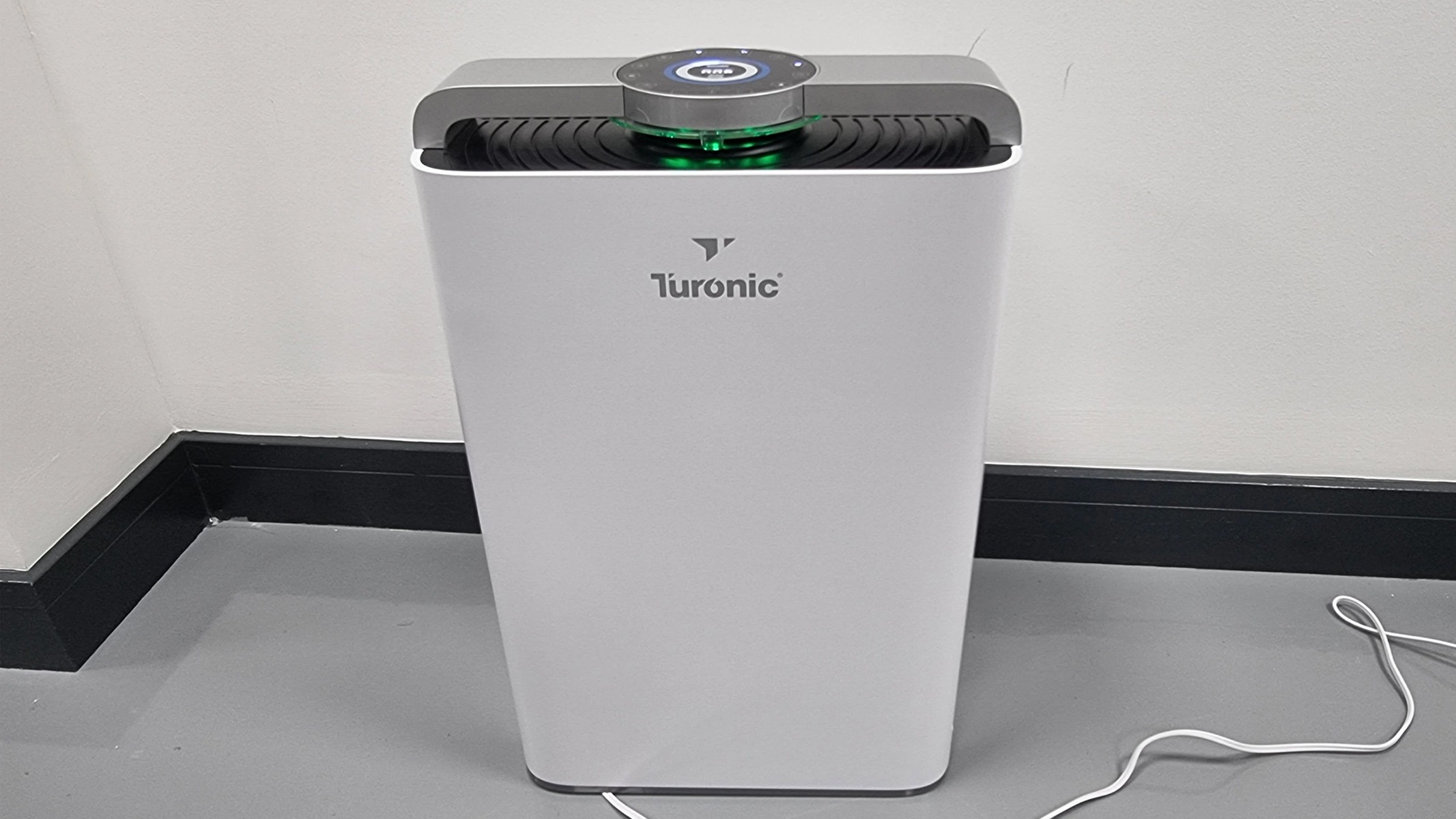
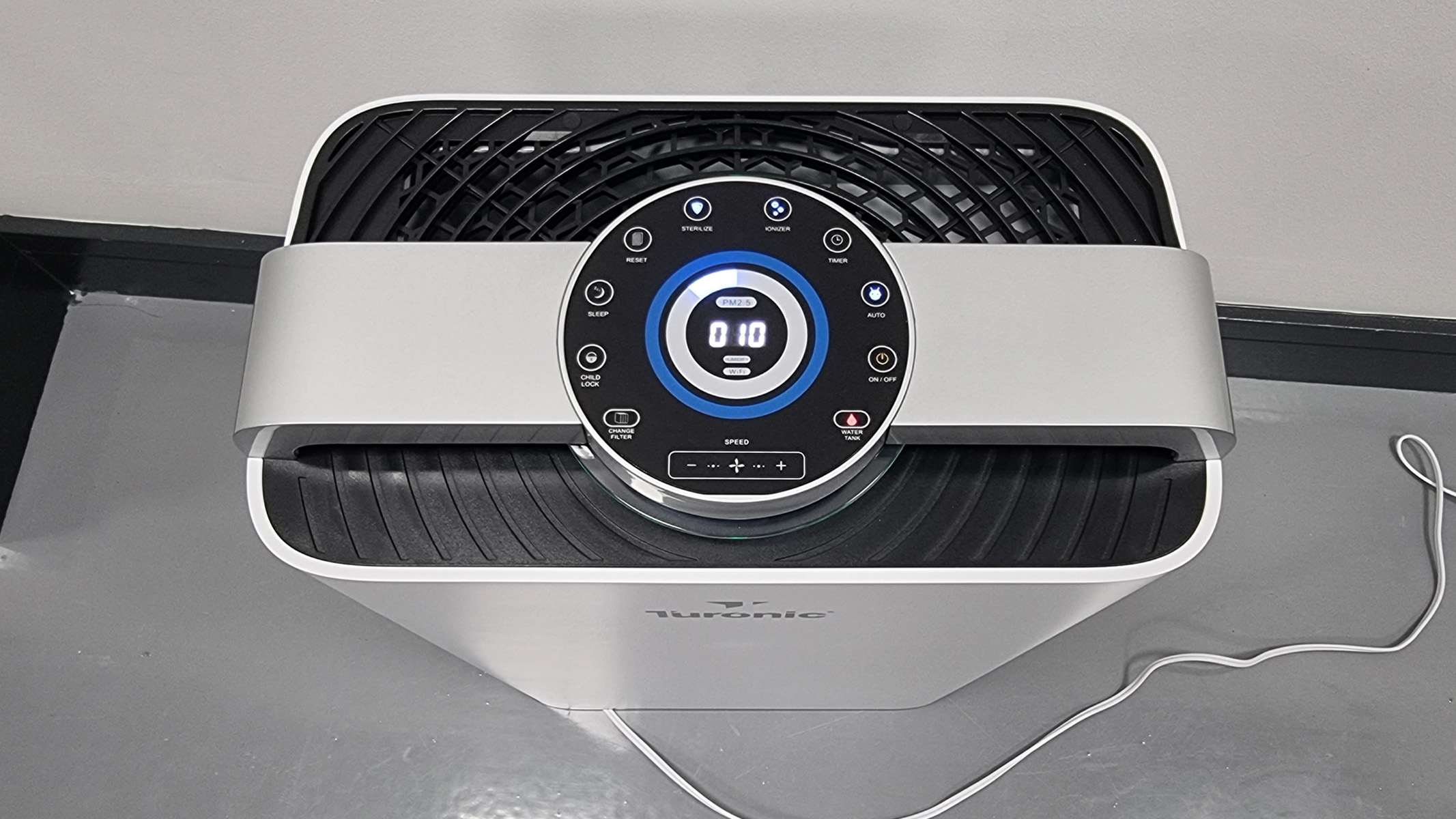
Specifications
Reasons to buy
Reasons to avoid
✅ You want versatility: This air purifier also doubles as a humidifier.
✅ You want smart features: It comes with a remote control and can be controlled via the Smart Life app.
❌ You do not want to spend loads: It is on the pricier side, so those with a smaller budget will want to look at other options.
❌ You do not have a lot of space: It is a fairly bulky unit, so it would not be suitable for smaller spaces.
🔎 Turonic PH950 2-in-1: This stylish purifier-humidifier combo impresses with its user-friendly design, powerful air filtration system and efficient performance — but it is also quite bulky and pricey. ★★★★½
When it comes to air purifiers, Turonic may be a new kid on the block — but do not let that put you off. The Turonic PH950 2-in-1 model may be a strong contender for the title of best mid-range air purifier.
Weighing in at almost 24 lbs, it is definitely not the lightest piece of equipment on the market. It is also bigger and wider than most competitors, so you may need to sacrifice some floor space. But taking into account what the Turonic PH950 can offer, this is not necessarily a deal breaker.
Indeed, the Turonic PH950 is a powerful 2-in-1 machine combining an air purifier and a humidifier. This complex piece of equipment is equipped with an ionizer, UV-C technology and several different filters designed to neutralize up to 99.98% of unwanted particles as small as 0.1 microns. It also comes with 10 different operating modes, a handy remote control, a designated app, a timer, PM2.5 laser air quality sensor, and a child lock — all for approximately $400 per unit. It may sound like a hefty price tag, but we found the Turonic PH950’s performance to be superb in our tests. And since this piece of equipment is highly energy efficient, it will not rack up your energy bills.
During our Turonic PH950 air purifier review, we found it easy to assemble and use. It is equipped with a stylish circular display and easy-to-understand color-coded indicators. The display is also suitable to use in a bedroom at night, as the icons are bright, but not flashy. More importantly, in most of our tests, it reduced as much as 85% of harmful particles within 30 minutes of being put at the highest fan speed.
The downsides? For a relative beginner, the Turonic PH950 may seem like an overly complicated piece of machinery. Changing a filter in this piece of equipment can also prove quite costly — the price for a single filter pad tends to fall between $45 and $60.
- Read our full Turonic PH950 air purifier review
Attributes | Notes |
|---|---|
Design | Bulky design. |
Performance | Works very efficiently and quickly. |
Functionality | Doubles as a humidifier. |
Best air purifier for homes with pets
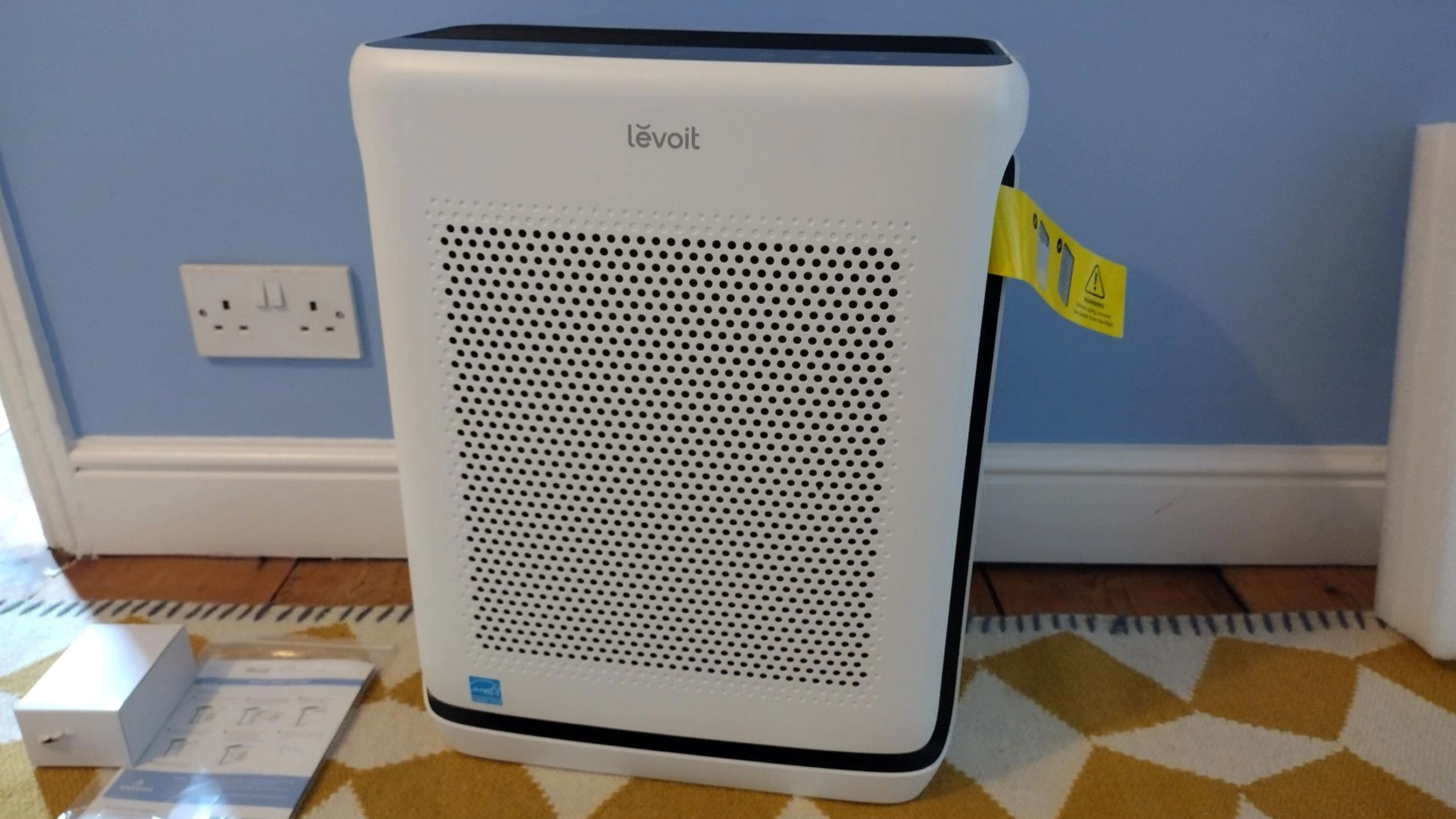
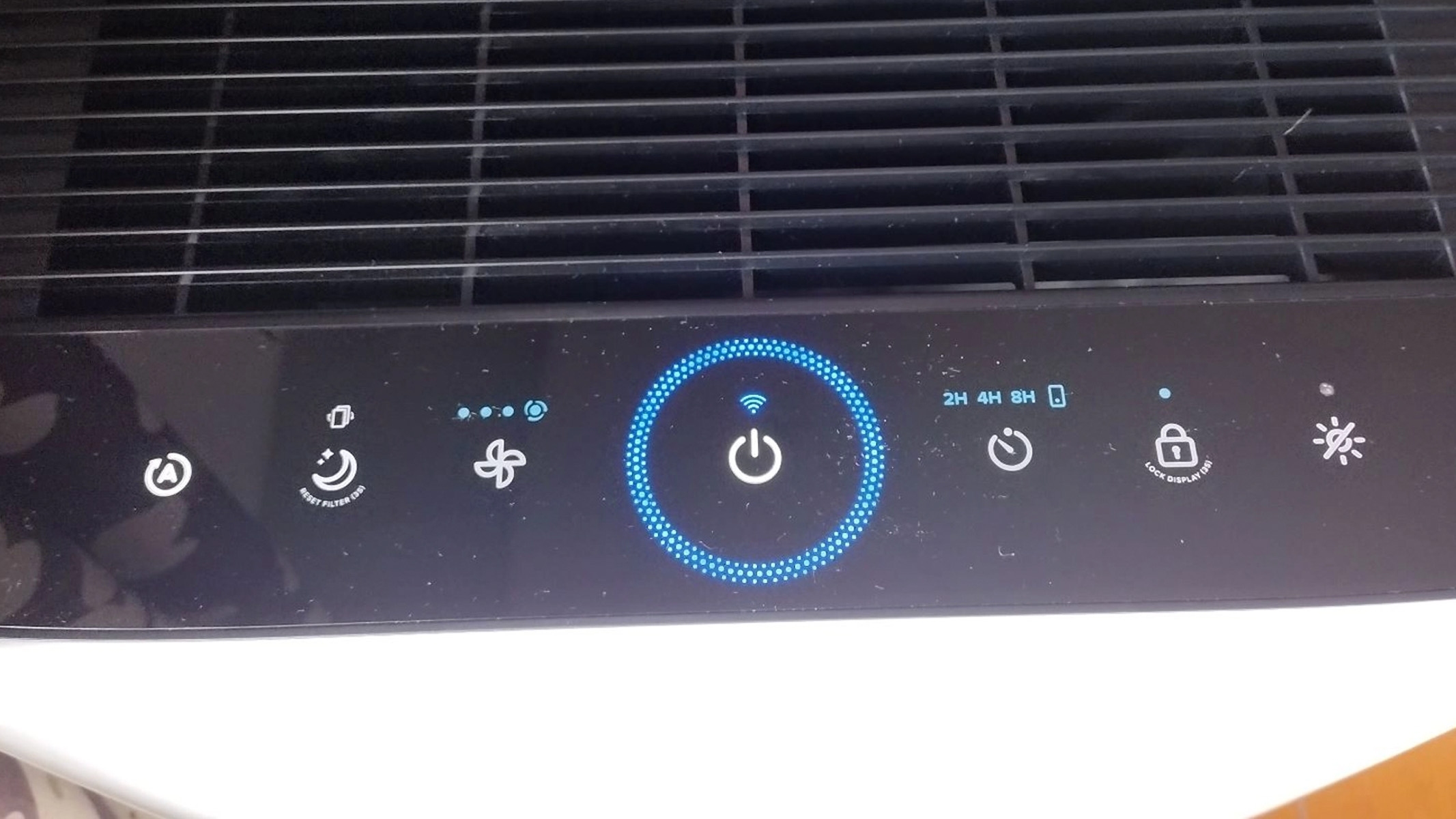
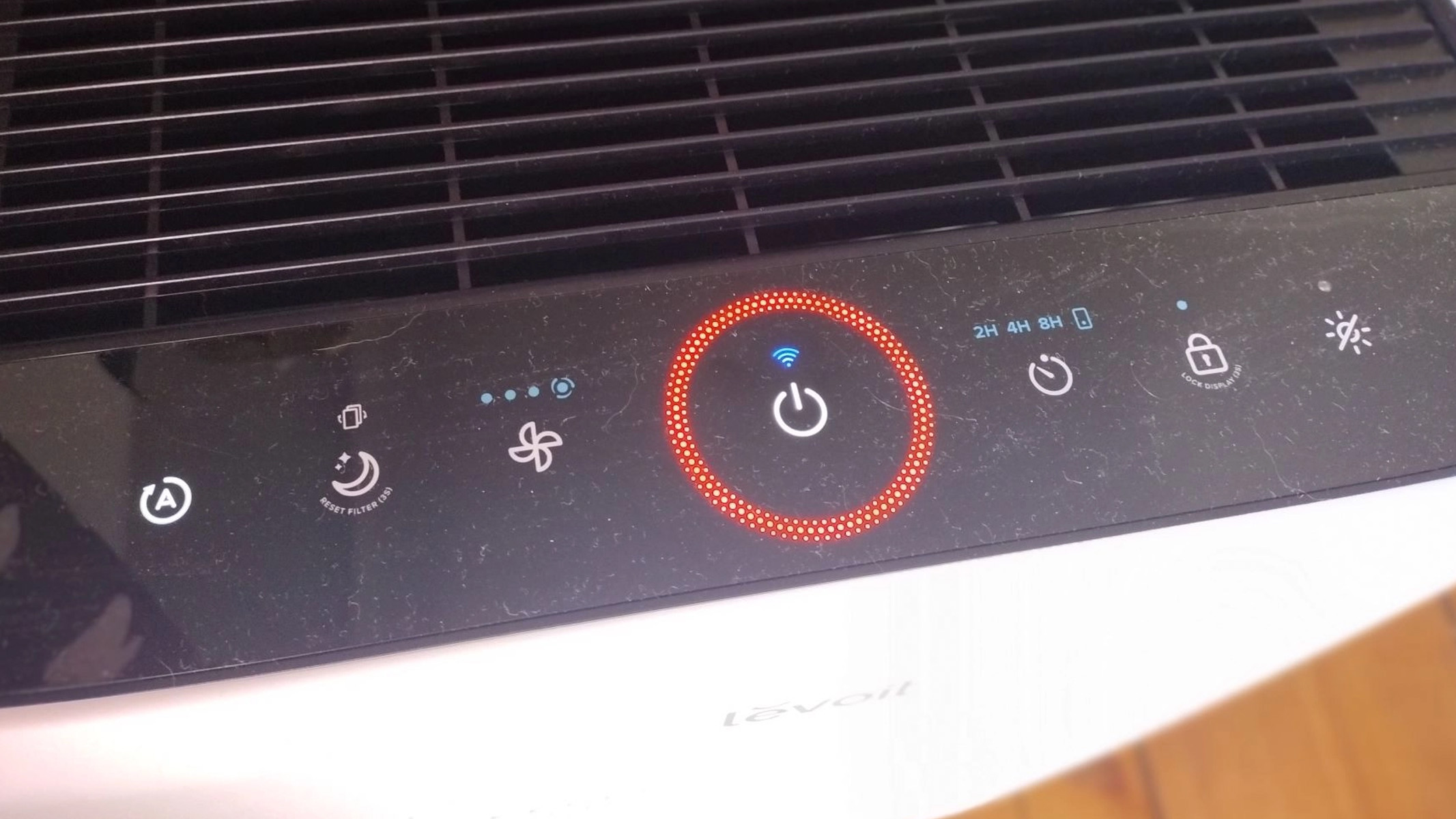
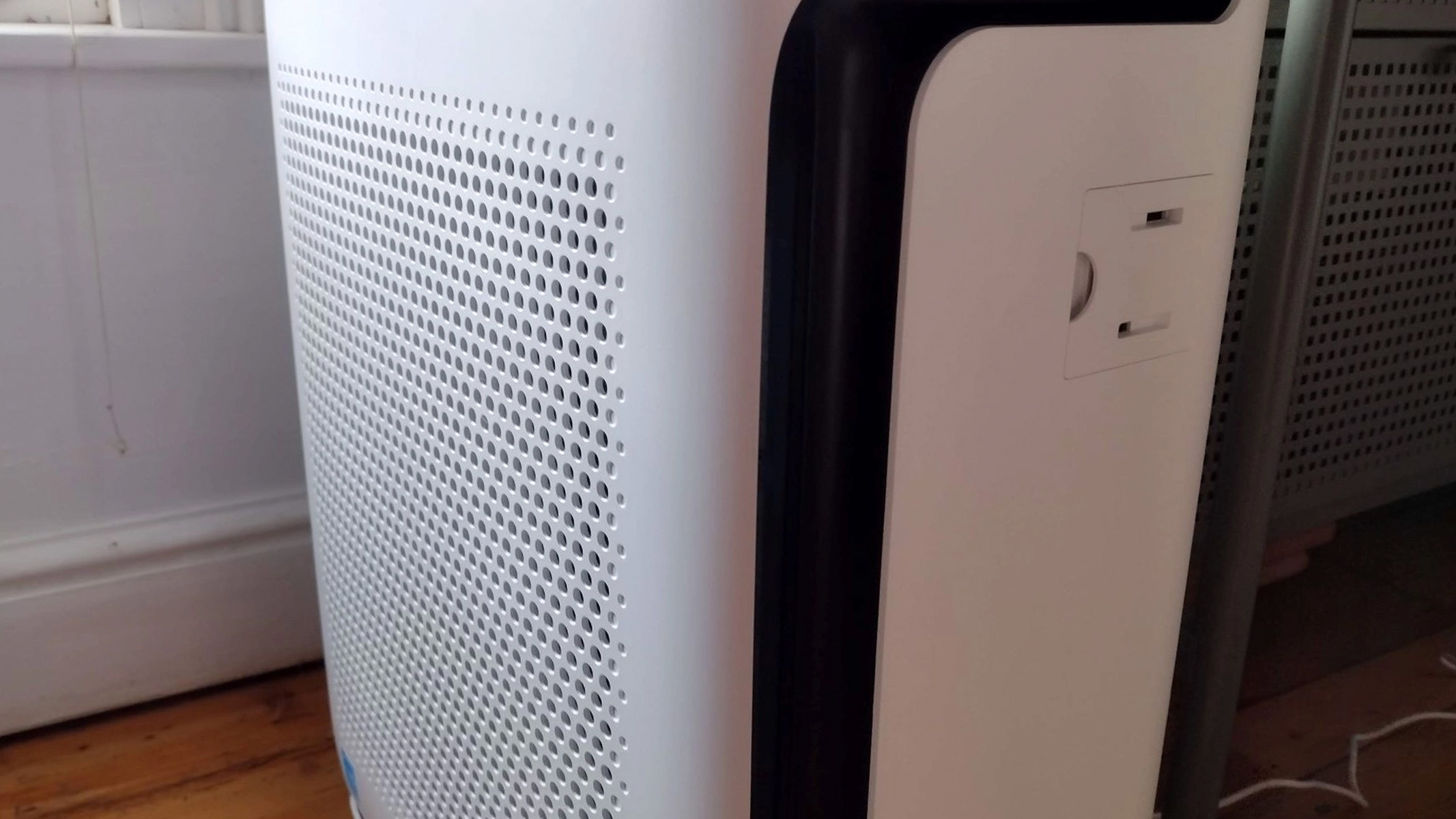
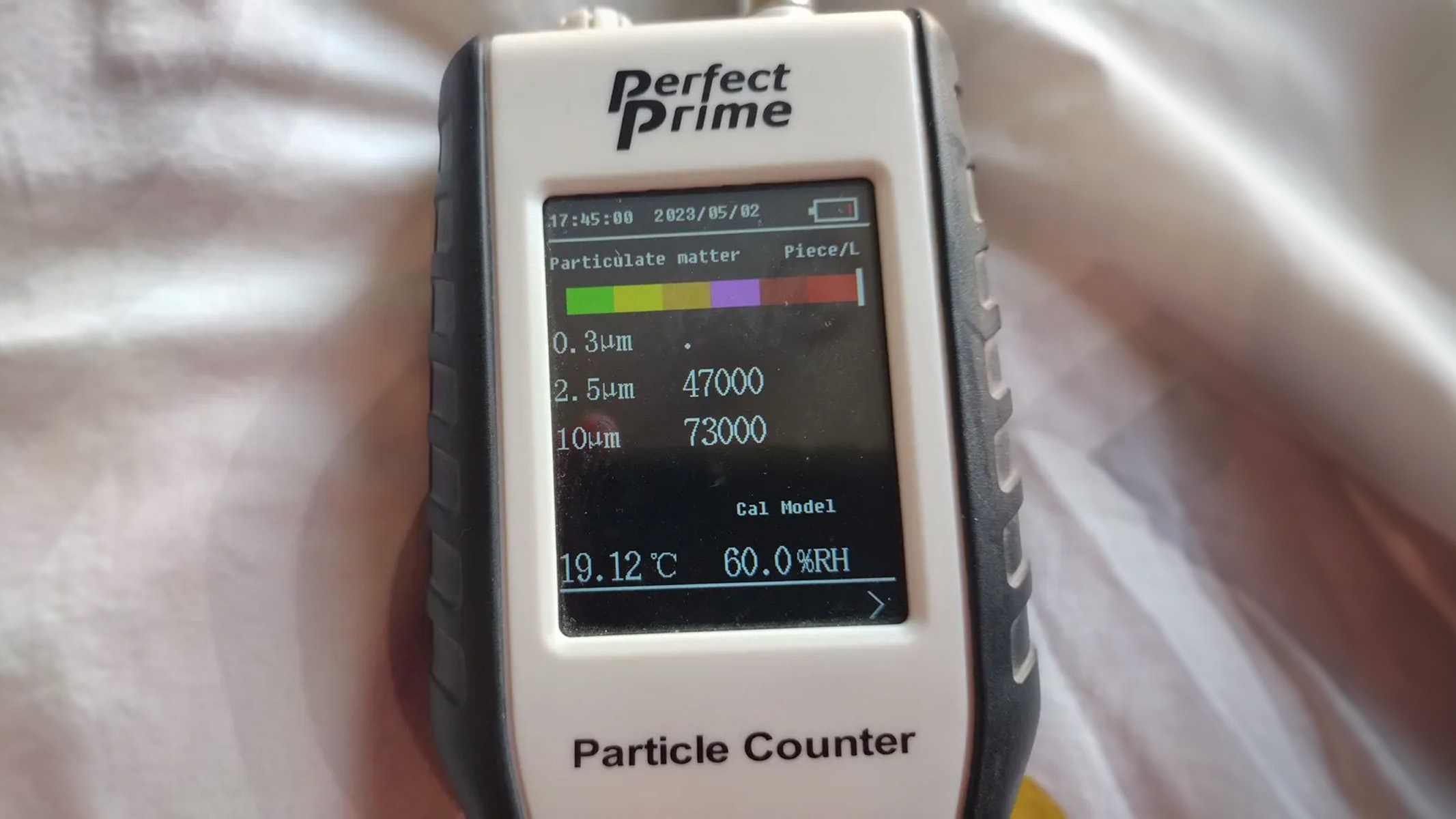
Specifications
Reasons to buy
Reasons to avoid
✅ You want smart features: It is easy to control with your voice or through the app.
✅ You have pets: It is designed specifically for removing hair, odors and pet dander.
❌ You have a small space: It's not a small unit, so there are better options for those who are tight on space.
❌ You want to save money: There are cheaper Levoit models available.
🔎 Levoit Vital 200S: This smart air purifier harbors a real beast of performance — it is whisper-quiet, easy to use and efficient at removing airborne allergens. It comes with an app and dedicated pet mode, too. ★★★★½
A good air purifier for pet owners should be able to do three things: keep hair at bay, remove pet dander and reduce unpleasant smells. The Levoit Vital 200S not only does all of these things, but it does them well. Plus, it comes with useful smart features.
Putting the Vital 200S through its paces during our Levoit Vital 200s review, we found it impressive and efficient at removing particles measuring as small as 0.3 microns. Pet dander, mold, dust and smoke were absorbed while chemicals and odors from everyday household cleaning and cooking were neutralized by the three-stage filtration system. This includes a washable pre-filter, an H13 True HEPA filter and a high-efficiency activated carbon filter.
The Levoit Vital 200S offers four fan speeds, three separate modes including pet, auto and sleep mode, and a connected app that allows you to control your air purifier remotely, wherever you are. It also works with Google Assistant and Alexa voice control devices.
The Vesync app is easy to use and allows users to track their real-time air quality data and historical data, revealing peaks in poor air quality over the day and taking the guesswork out of what is causing bad air quality in your home.
While the boxy design may not be suited to users who want a sleek and stylish air purifier, or those with small rooms, the no-frills aesthetic makes the Levoit Vital 200S a good choice for most users. However, it is not the most affordable option in this guide. If you are a pet owner on a tight budget, consider the GermGuardian AC4825E instead. Or, if you have a curious cat, consider the SwitchBot Air Purifier Table — it is similarly priced, but your furry friend will love it.
- Read our full Levoit Vital 200S review
Attributes | Notes |
|---|---|
Design | A bit large for small spaces. |
Performance | Designed specifically for homes with pets. |
Functionality | App and voice control. |
Best air purifier for cat owners
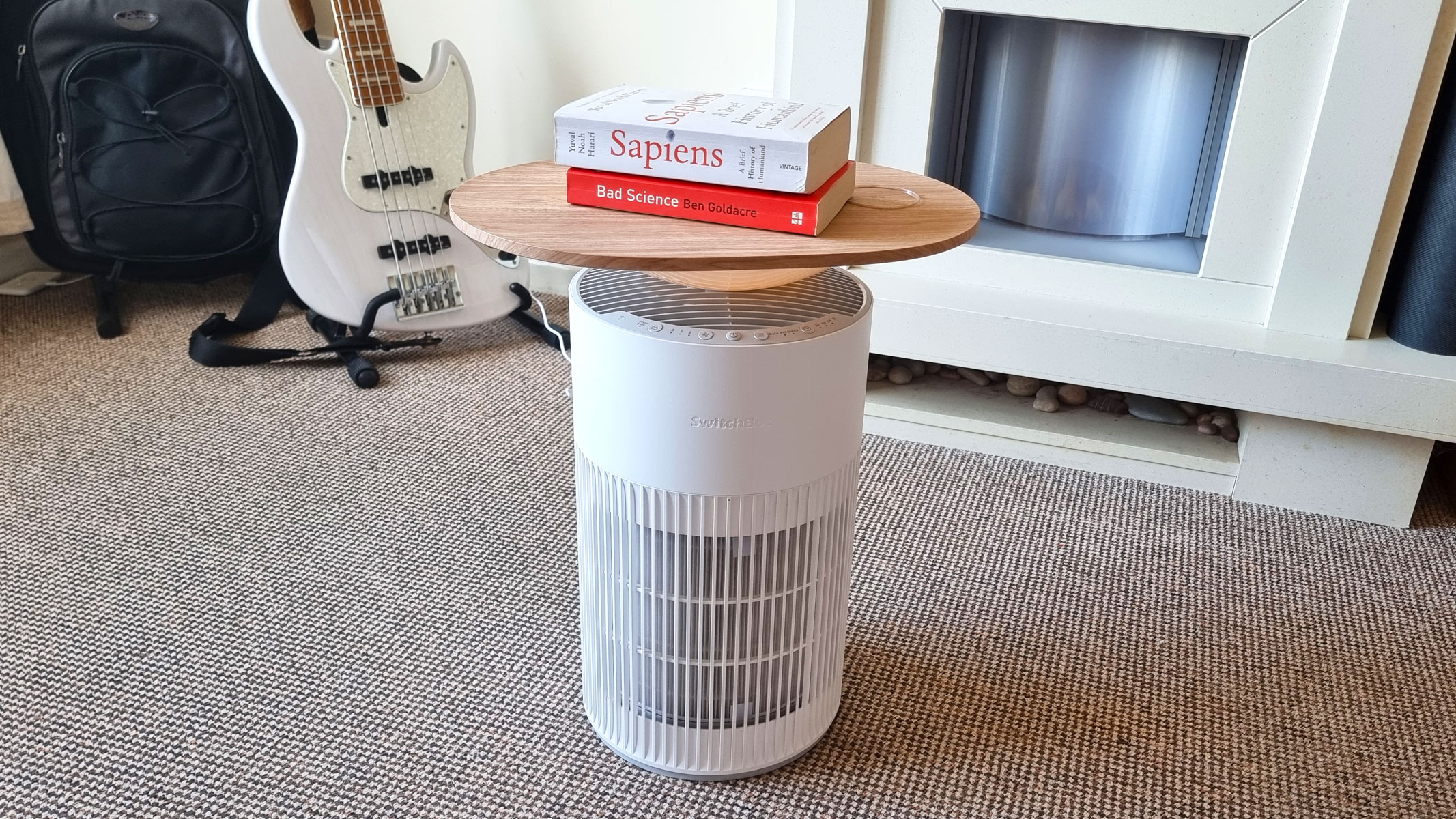
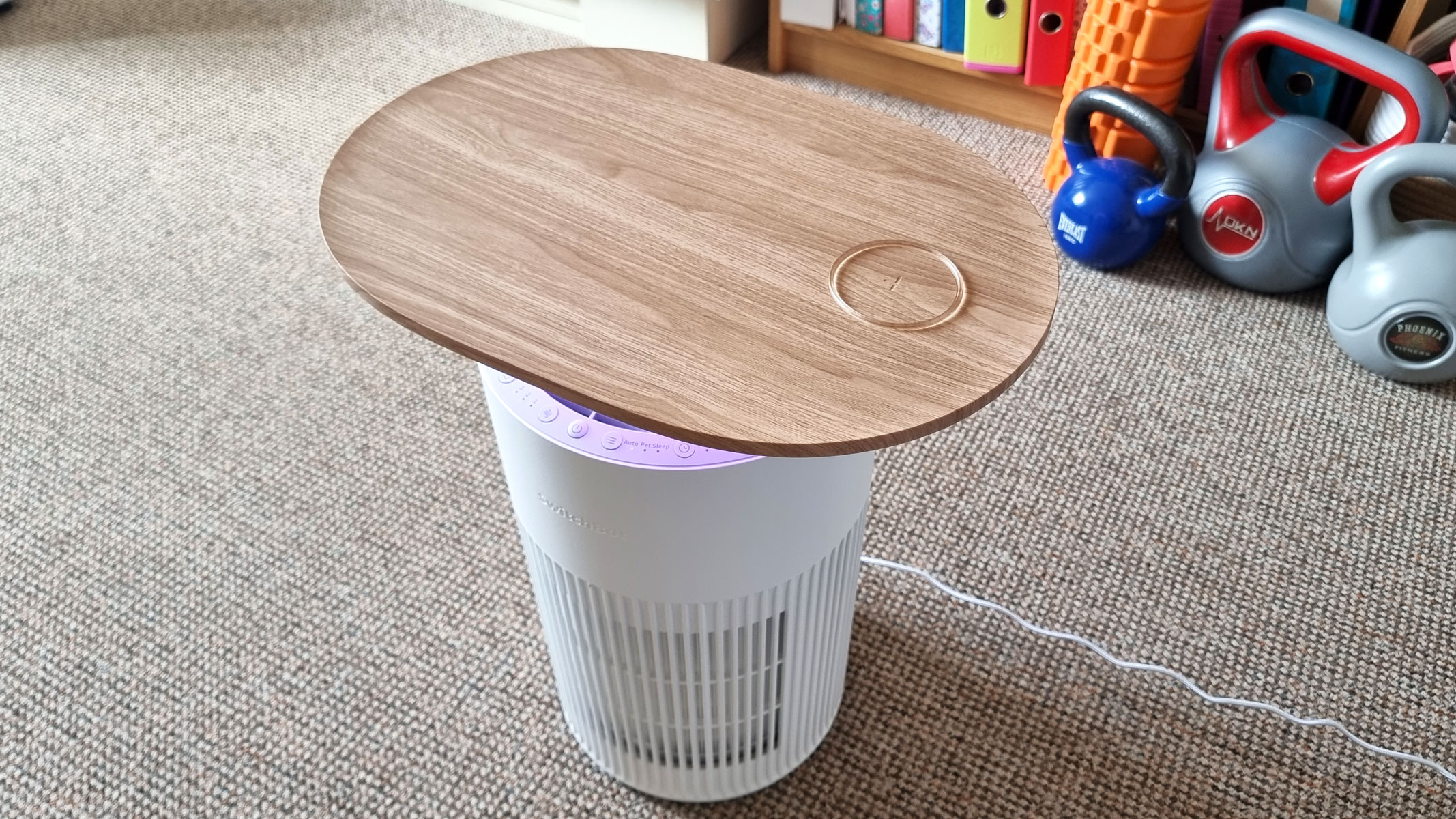
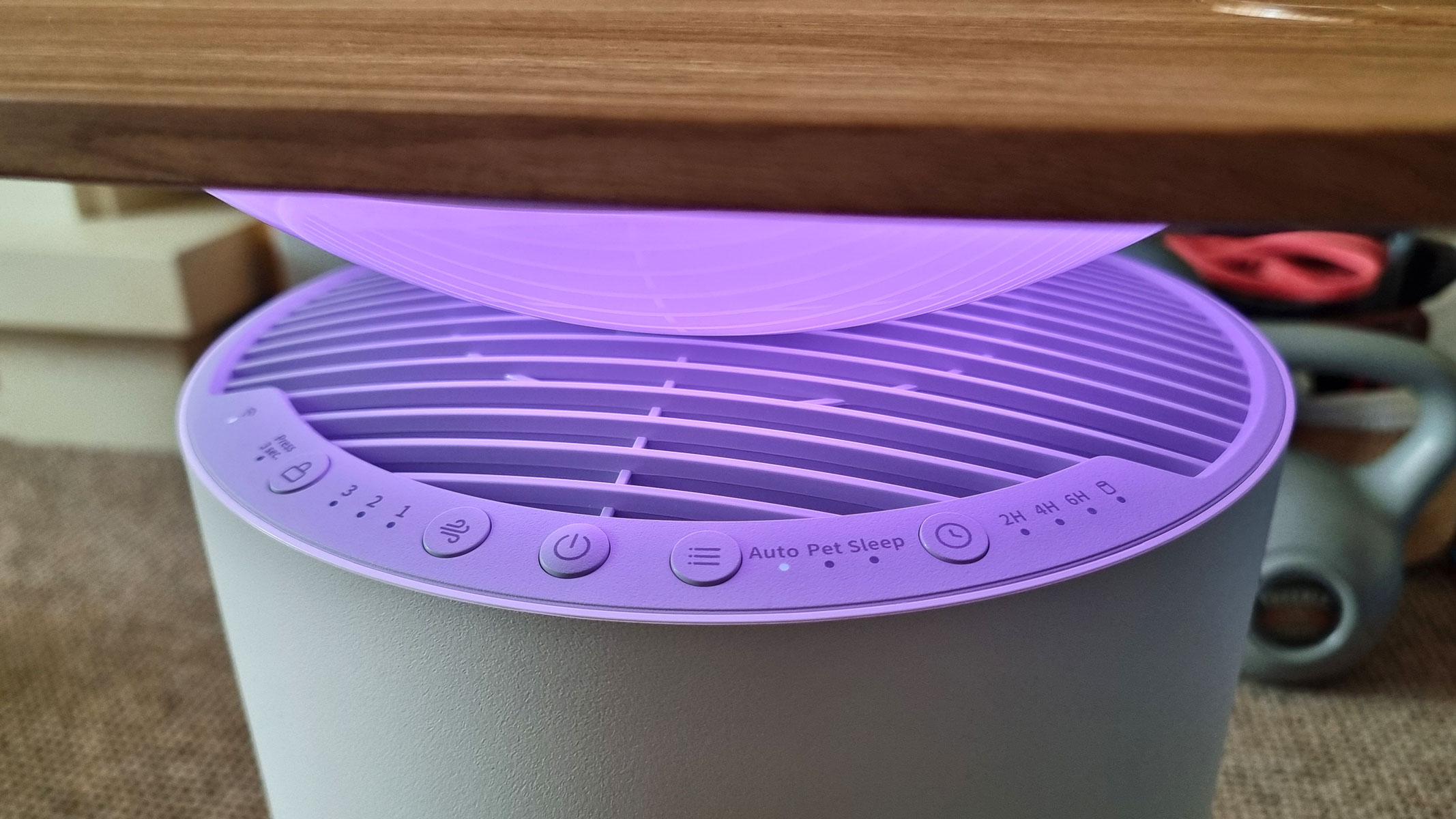
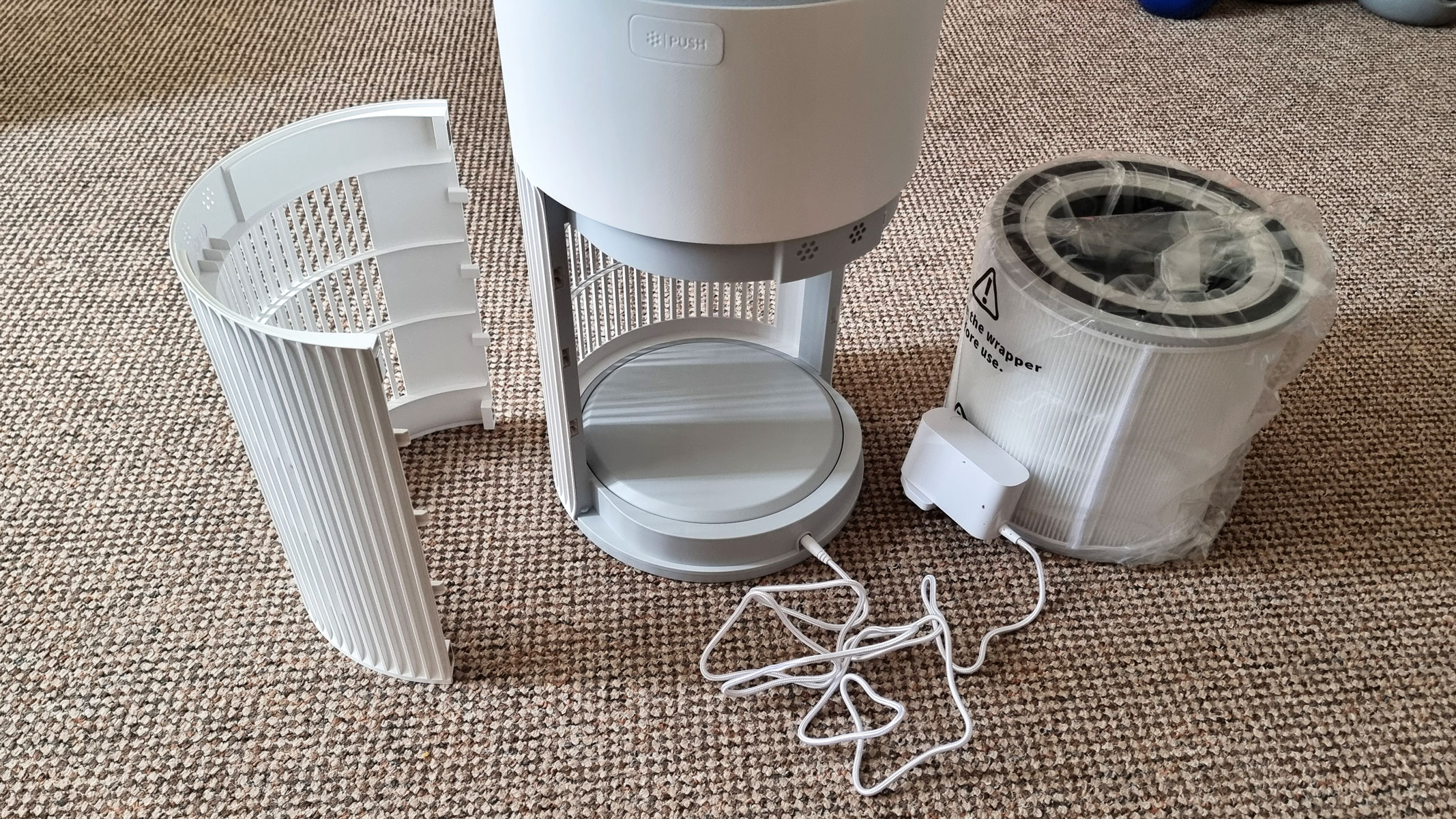
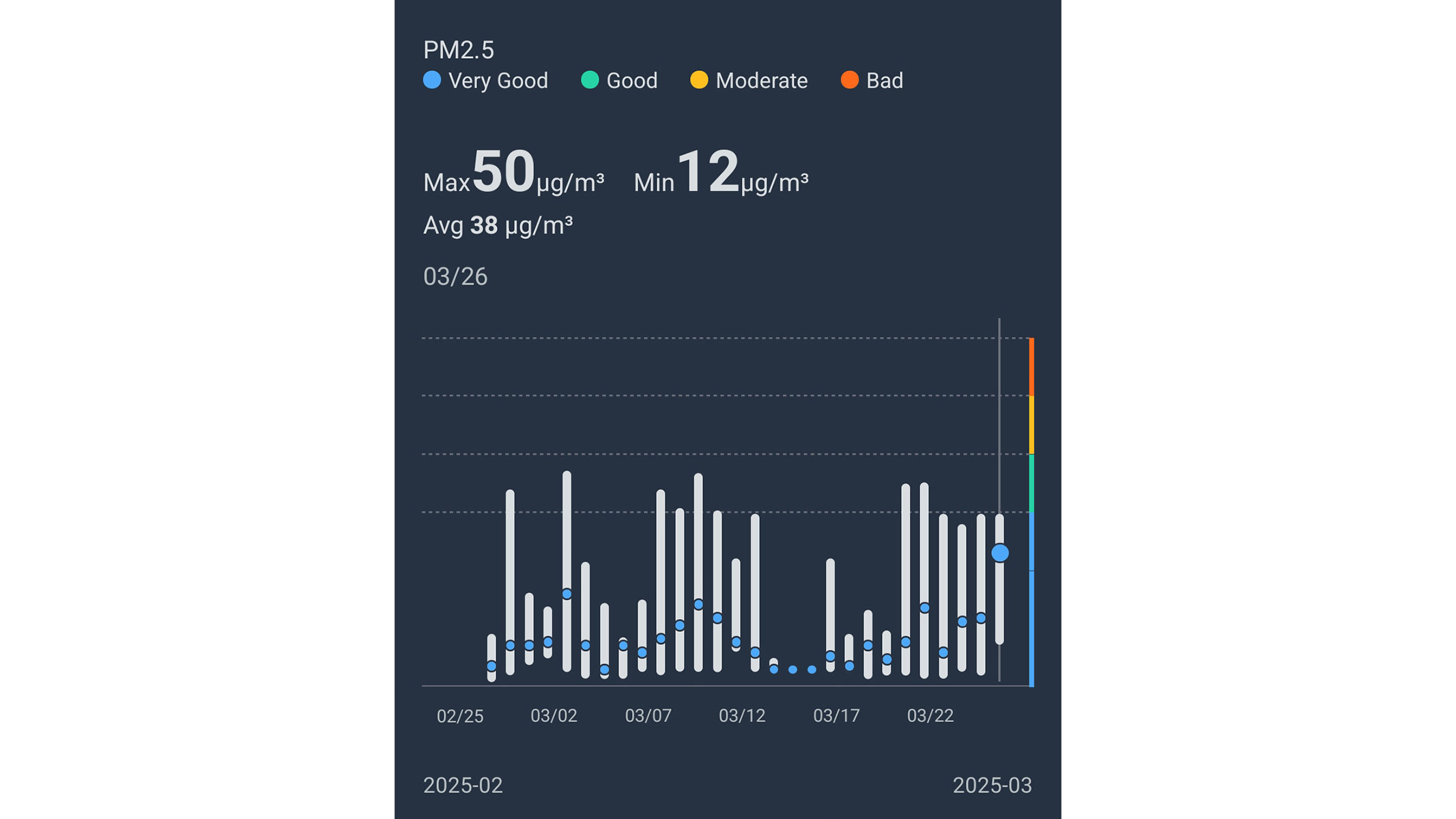
Specifications
Reasons to buy
Reasons to avoid
✅ You want to get rid of odors and pet hair: It features a washable pre-filter and activated carbon filter.
✅ You like multi-purpose appliances: It doubles as a bedside table, wireless phone charger, fragrance diffuser and ambient light.
✅ You are looking for a bedroom air purifier: It operates near-silently at low fan speeds.
❌ You want high-octane air purification: It is not the most powerful air purifier in this guide.
❌ You are on a budget: It is relatively expensive given its size and purification power.
🔎 SwitchBot Air Purifier Table: This quirky appliance is a pet owner's dream: quiet, stylish and effective at reducing odors, pet hair and other airborne pollutants. Plus, it offers a myriad of unique features and can be controlled remotely. However, it is also relatively expensive and unsuitable for large spaces. ★★★★½
Cats are marvellous creatures: beautiful, intelligent and full of personality. Also, exceptionally curious. No household appliance is safe from their paws — and that includes air purifiers. If you are worried that the aforementioned Levoit Vital 200S may spell disaster for your furry friend, consider the SwitchBot Air Purifier Table instead. With its bite-resistant cord, paw-proof grilles and waterproof tabletop, this quirky appliance was designed with pet owners in mind. Not to mention, it can serve as a convenient vantage point and napping station for your cat.
Indeed, the SwitchBot Air Purifier Table is more of a multi-purpose appliance than a typical air purifier. Unlike the vast majority of air-cleaning appliances on the market, it features a wireless phone charging station, an essential oil diffuser and a skilfully designed ambient light. Its features are nothing short of impressive.
During our full SwitchBot Air Purifier Table review, we were also impressed with its exceptional portability. It weighs only 10.68 lbs (4.85 kg) and is easy to grab hold of. We also liked how quiet it was. When we measured its noise levels with a Sound Meter decibel counting app, we recorded just 21 dB at the lowest fan speed. That is equivalent to leaves rustling in the wind or a quiet whisper. It is a great choice for bedrooms and studies.
However, the SwitchBot Air Purifier Table is not without its flaws. For example, it is not powerful enough to suit large spaces and its air-cleaning performance differs depending on the mode used. Moreover, it is relatively expensive. That said, we still think this unique air purifier is well worth the investment.
- Read our full SwitchBot Air Purifier Table review
Attributes | Notes |
|---|---|
Design | Small, stylish and portable. |
Performance | Whisper-quiet in Auto mode. |
Functionality | Doubles as a coffee table and can be controlled remotely. |
Best air purifier for commercial spaces
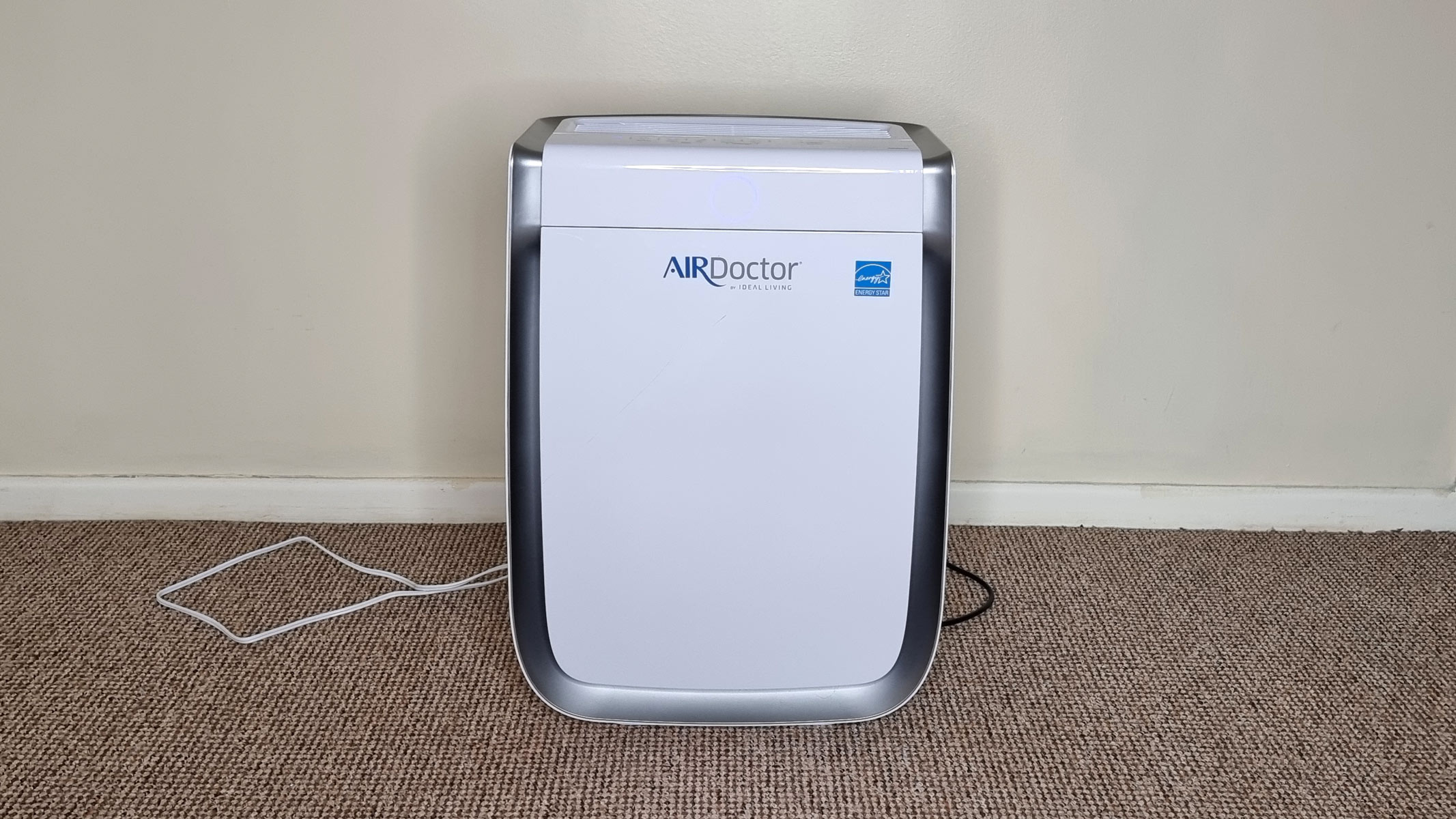
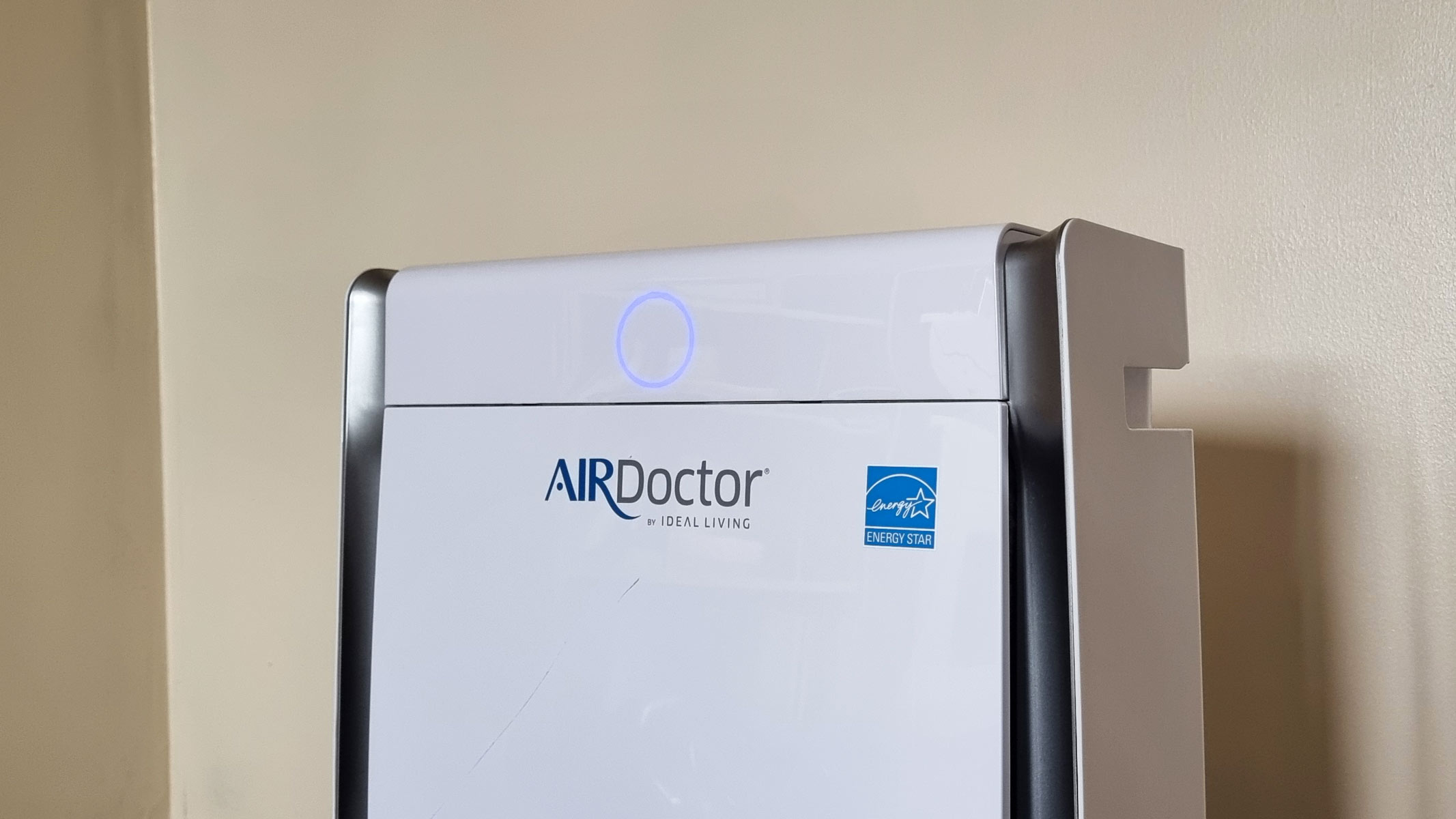
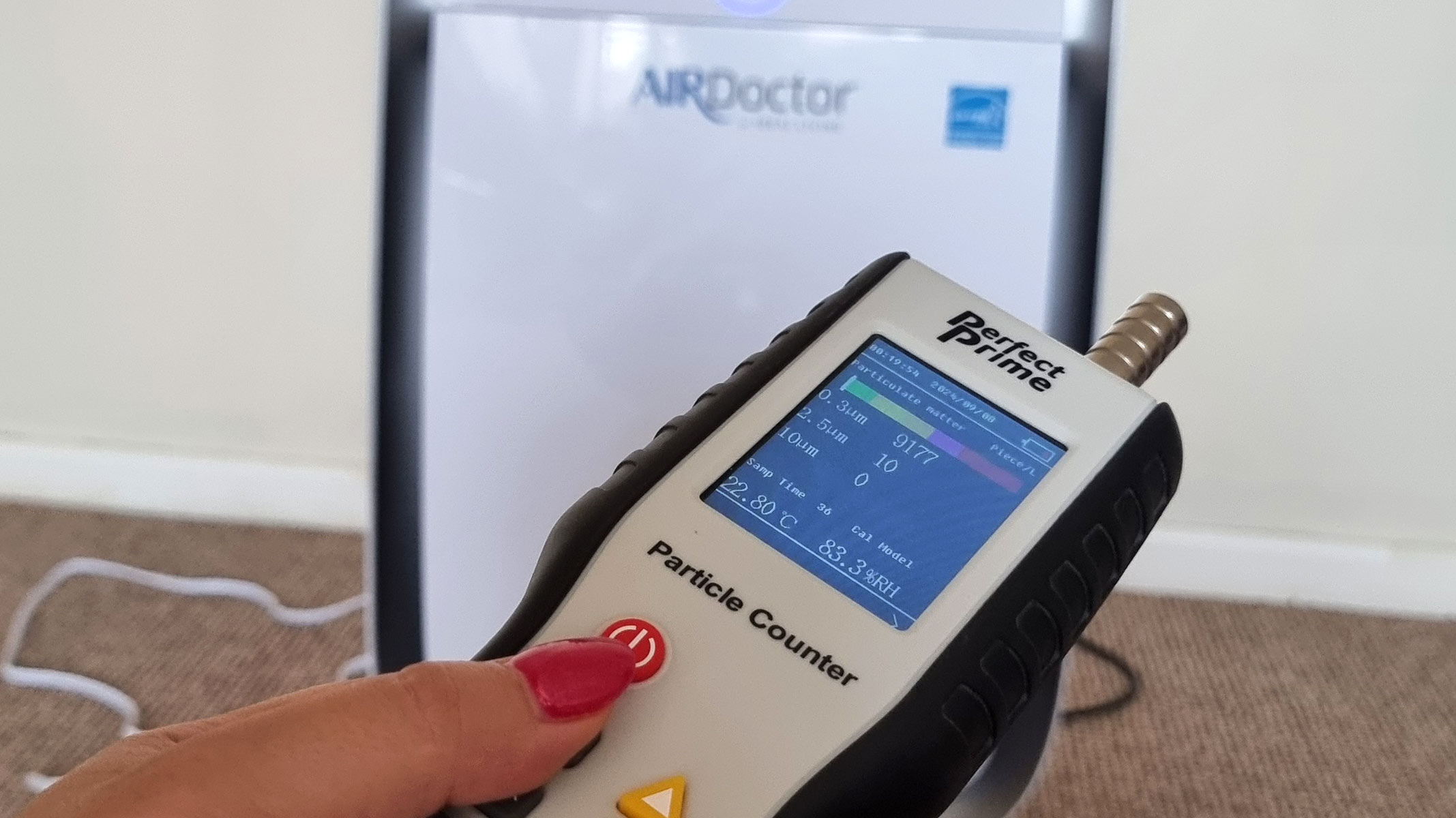
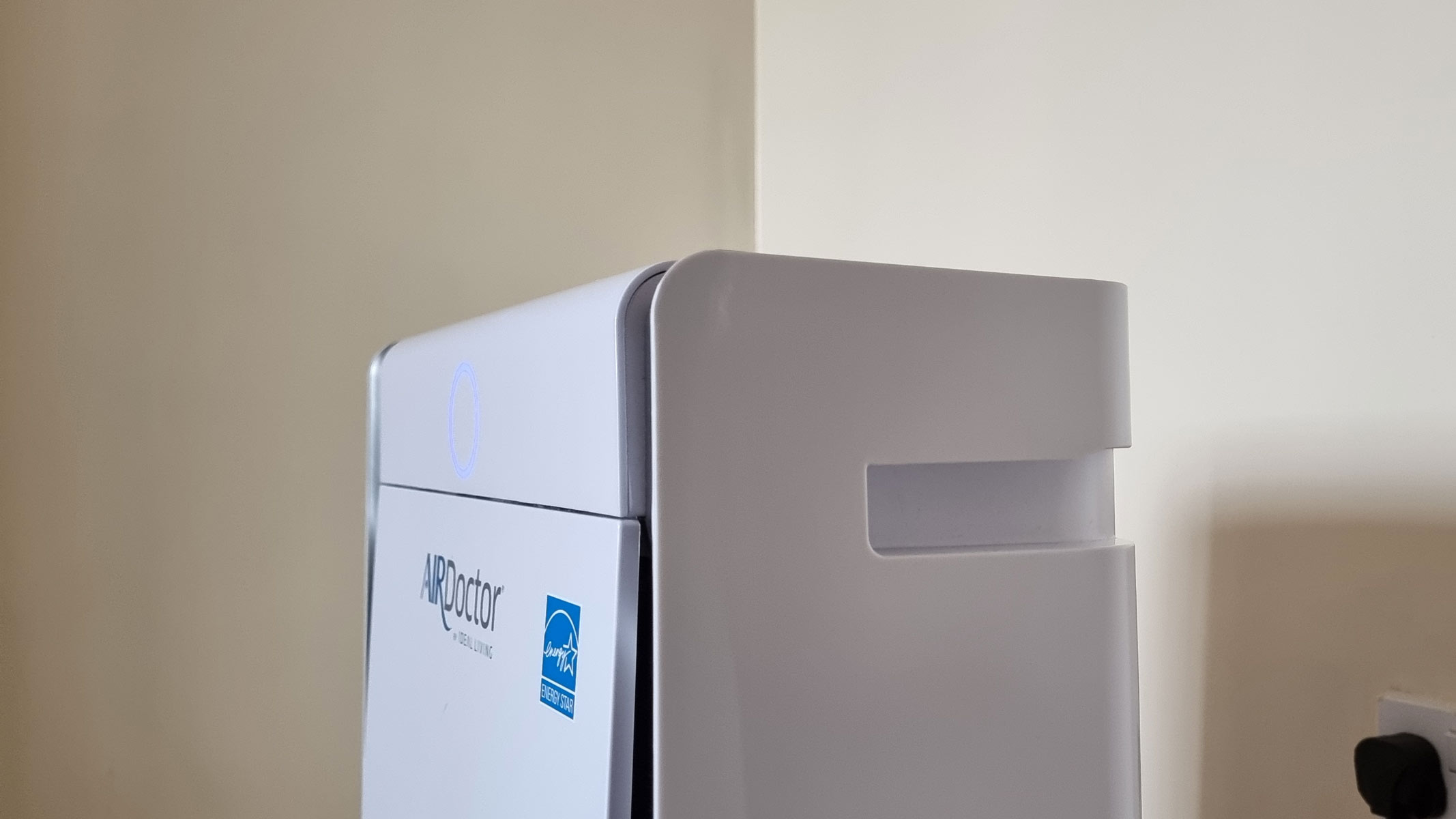
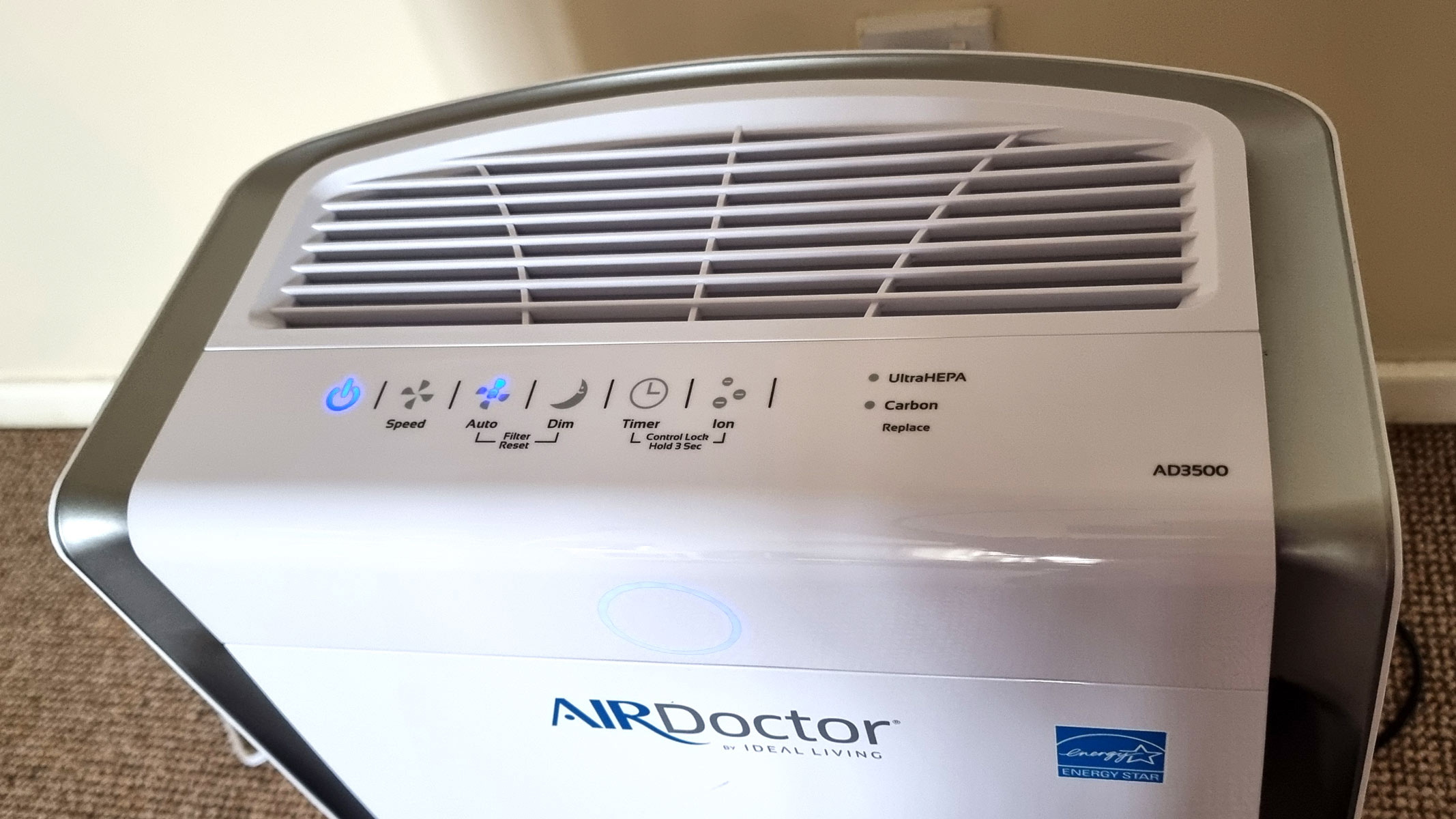
Specifications
Reasons to buy
Reasons to avoid
✅ You have a large space: This air purifier can cover up to a whopping 1,260 square feet (117 square meters).
✅ You do not want to take any chances against allergens: It features a pre-filter, UltraHEPA filter and dual-action carbon/VOC filter.
✅ You want something portable: You can move it around with ease given its size.
❌ You are on a budget: It is not a cheap unit, so anyone on a budget might want to consider more affordable options.
❌ You want something stylish: There are better looking models in this guide.
🔎 AirDoctor AD3500: This Energy Star certified air purifier delivers a powerful air-cleaning performance without making much noise or requiring extensive maintenance. It is on the expensive side, though. ★★★★½
The AirDoctor AD3500 is our top pick for extra-large rooms and commercial premises. This humble-looking air purifier delivers an immensely powerful air-cleaning performance, covering up to an impressive 1,260 square feet (117 square meters). At the same time, it is exceptionally portable and easy on the energy bill. Interestingly, this air purifier comes in two options — with or without smart features — giving you a choice as to whether you want all the high-tech frills or not.
More importantly, the AirDoctor AD3500 has everything you may need to combat airborne allergens: a pre-filter that traps large particles like dust and hair, a dual-action carbon/VOC filter that absorbs odors and harmful gaseous compounds, and an UltraHEPA filter capable of trapping 99.99% of particles as small as 0.003 microns. For comparison, most air purifiers feature just a standard HEPA filter that can "only" remove particles with a size of 0.3 microns. This appliance is a powerhouse — and it shows.
During our AirDoctor AD3500 air purifier review, we were blown away by its air-cleaning capabilities. This air purifier got rid of nearly all airborne particles in our ambient tests. It did an even more impressive job removing heavy smoke pollution. It only took 15 minutes for the AirDoctor AD3500 to hoover up a staggering 98.9% of 0.3-micron particles and 99.95% of particles larger than 2.5 microns. We also liked how quiet it was. When we measured its noise levels with a decibel-counting app, we did not get a reading higher than 57 dB (equivalent to the sound levels generated by a vacuum cleaner).
However, there are a few drawbacks to the AirDoctor AD3500. It is not particularly good-looking (it looks more like a mini-fridge, as our reviewer noted), and it comes with a relatively high price tag. It can also be expensive to maintain. A one-year supply of filter replacements costs $152.99, which is far more than what most other brands charge.
- Read our full AirDoctor AD3500 air purifier review
Attributes | Notes |
|---|---|
Design | Big, but light and easy to move around. |
Performance | Quiet and powerful. |
Functionality | Optional smart features. |
Best air purifiers for allergies: Comparison
Product | Rating | Pros ✅ | Cons ❌ | Filters | CADR |
|---|---|---|---|---|---|
Levoit Core 600S | ★★★★½ | Air-cleaning performance, smart features, ease of use. | Bulky design. | Pre-filter, HEPA, Activated carbon | 410 CFM |
GermGuardian AC4825E | ★★★★ | Compact design, ease of use, value for money. | Limited features. | HEPA, Activated carbon | 125 CFM |
RabbitAir A3 | ★★★★ | Air-cleaning performance, quiet fans, smart features, unique design. | Chunky and relatively expensive. | Pre-filter, Medium, HEPA, Activated carbon, Customizable | 315 CFM |
Dyson Purifier Cool PC1 | ★★★★ | Fan functionality, smart features, sleek design. | Plastic build and relatively high price. | HEPA, Activated carbon | up to 89 CFM |
Rabbit Air MinusA2 Spa-780N | ★★★★½ | Air-quality performance, smart features, sleek design. | Relatively expensive. | Pre-filter, Medium, HEPA, Activated carbon, Customizable | 200 CFM |
Molekule Air Pro | ★★★★ | Air-cleaning performance, smart features, air quality readings. | Noisy and expensive. | HEPA, PECO technology | Unstated |
Turonic PH950 2-in-1 | ★★★★½ | Humidifier functionality, design, low energy use. | Bulky and relatively expensive. | Pre-filter, HEPA, activated carbon, cold catalyst, cotton filter | 488 CFM |
Levoit Vital 200S | ★★★★½ | Air-cleaning performance, pet mode, smart features. | Boxy and bulky. | Washable pre-filter, HEPA, Activated carbon | 245 CFM |
AirDoctor AD3500 | ★★★★½ | Large coverage, optional smart features, portability. | Uninspiring design and high cost. | Pre-filter, HEPA, Activated carbon | 340 CFM |
Blueair Blue Signature | ★★★★½ | Large coverage, smart features, stylish design. | Price and durability. | Pre-filter, HEPA, Activated carbon | 445 CFM |
Our expert consultants

Dr. John McKeon, MD, is the CEO of Allergy Standards, an international certification body for domestic appliances and household products. He is a principal at the Indoor Air Innovation & Research (iAIR) Institute, a trade association aiming to enhance indoor air quality in homes, commercial buildings and schools. Dr. McKeon also works as an adjunct professor in the Centre for Practice and Healthcare Innovation, a research center based at Trinity College Dublin in Ireland. He advised Live Science on where to put an air purifier and how to choose the best appliance for your needs.

Kathy Przywara is the Vice President of Community at the Asthma and Allergy Foundation of America (AAFA). She oversees AAFA’s Support Center, a community dedicated to providing patients with direct support and educational resources on asthma and allergy management. Kathy Przywara also directs digital outreach for this not-for-profit organization. For this piece, she commented on whether air purifiers can help with mold and pet allergies, and discussed the potential effects of ionizers.

Dr. Sameer Nakedar is a medical doctor and the chief medical officer at Welzo, a personalized healthcare service based in London, England. He is a portfolio general practitioner with a particular interest in promoting digital technology solutions in medical settings. Sameer has built several cross-platform applications used by primary and secondary healthcare providers worldwide. He told Live Science about the potential benefits of air purifiers for managing asthma and allergies.

Abbas Kanani is a qualified independent prescriber and a superintendent pharmacist at Chemist Click, an online pharmacy based in England. He is a member of Royal Pharmaceutical Society, National Pharmacy Association and General Pharmaceutical Council. As a consultant for the National Health Service, Abbas also provides advisory services on cost savings and clinical efficiencies. For this piece, he compared the potential benefits of air purifiers and humidifiers on managing asthma and allergies.
Best air purifiers for allergies: Frequently Asked Questions
How can you maintain your air purifier for allergies?
Remember to keep your air purifier clean, and change your HEPA filter as recommended to ensure that it keeps running correctly. You can buy reusable filters that only require cleaning, but these do have a limited life expectancy and will still need to be completely replaced eventually.
Try to adhere to the room-size specifications that come with your air purifier for the most effective air cleaning possible. If placed in rooms with high foot traffic or rooms too large for their capacity, air purifiers will not clear the air of irritants as well as if they are used correctly. Don't forget to wipe down the outside of your machine with a dry or slightly damp cleaning cloth.
Where is the best place to put an air purifier?
“The best placement for an air purifier depends on your specific needs and the type of allergens in your home,” John McKeon, the CEO of Allergy Standards and a principal at the Indoor Air Innovation & Research Institute, told Live Science. Bedrooms are often viewed as good places to put an air purifier, since we spend so much time there and that air pollution has an impact on our sleep quality. But if you or members of your household are allergic to pet dander or pollen, it may be better to keep an air purifier in a living room or other areas that are frequently visited and close to the source of those allergens, he explained.
What size air purifier do I need?
Make sure your air purifier can accommodate the size of the room it is being placed in, Kathy Przywara, the Vice President of Community at the Asthma and Allergy Foundation of America, told Live Science. If placed in areas with high foot traffic or rooms too large for their capacity, air purifiers will not clear the air of irritants as well as if they are used correctly. Air-cleaning appliances have ratings that indicate the volume of air they can clean in a fixed amount of time and space — the Clean Air Delivery Rate (CADR), for example. "If you purchase an air cleaner with a CADR rating too low for your room, it will be ineffective," Przywara said.
What is CADR?
Clean Air Delivery Rate, or CADR for short, is a metric that indicates the effectiveness of a given air purifier in removing specific pollutants from the air. It is measured in the amount of clean air that an air purifier can deliver per unit of time (typically cubic feet per minute). Put simply, a higher CADR rating means the appliance can remove more pollutants from the air in a shorter amount of time. CADR ratings are consistent across air purifiers of different makes and models as they are determined through standardized tests conducted by the Association of Home Appliance Manufacturers (AHAM).
Will an ionizer help with allergies?
Ionizers are devices that release negative ions — electrically charged molecules that pass their extra electrons onto other airborne particles, causing them to clump together and fall to the ground. "Ionizers can help remove tiny airborne pollutants, such as bacteria and viruses, but they are relatively ineffective at removing larger particles like pollen and house dust allergens," Przywara said.
Can air purifiers help with mold allergy?
Do air purifiers help with mold? Yes, but only to a certain extent. Mold allergy is caused by mold spores, tiny cells that mold release into the air to find a moist ground and reproduce. Air purifiers with HEPA filters may prevent mold spores from spreading, but they will not stop the infestation. "For effective mold allergy management, it's crucial to locate and eliminate any mold growth sources in the home, such as damp areas, leaks, or water damage," McKeon said. Combining an air purifier with a dehumidifier could be more effective than using an air purifier alone, he noted.
Can air purifiers help with pet allergies?
Pet allergies are caused by proteins in the animal’s dander (dead skin cells), saliva, and urine. When those proteins get into your airways, eyes, or on your skin, they trigger an allergic reaction. "Using an air purifier with a HEPA filter at least four hours per day can help reduce these allergens in the air," Przywara said. However, pet allergens can collect on furniture and other surfaces, and they can be stirred into the air again by dusting, vacuuming, and other household activities, she said.
Do air purifiers help with dust allergy?
Do air purifiers help with dust? Yes they do, but only slightly. While air purifiers are quite effective at removing the majority of dust mite allergens from the air, they do not take away any of the particles stuck in dusty furnishings and beddings (and these are often the main culprits behind the symptoms). Regular vacuuming and cleaning are more effective in that regard. However, there is some evidence that air purifiers may still markedly reduce some of the symptoms of dust mite allergies, including sneezing and runny nose.
Can air purifiers help with asthma?
Can air purifiers help with asthma? While they are not a complete solution to treating this chronic condition, air purifiers can help reduce your exposure to airborne particles that trigger and aggravate asthma attacks in the first place. This in turn can decrease airway inflammation and improve lung function.
Everything you need to know about air purifiers for allergies
Do air purifiers help with allergies?
Do air purifiers help with allergies? In short, yes they can. These appliances can be effective at trapping the small particles that trigger allergies, preventing them from circulating in the air and then being inhaled. However, air purifiers are not a complete solution, and there are several reasons why.
Hay fever can be triggered by a wide range of airborne substances, but it’s predominantly caused by pollen, Dr. Sameer Nakedar, a medical doctor and chief medical officer at Welzo, a personalized healthcare provider based in London, England, told Live Science. ”The most common allergens that cause hay fever include tree, grass and weed pollen. Grass pollen is by far the most common, it affects up to 95% of sufferers,” he said. Mold spores and animal dander can also contribute to hay fever symptoms. “However, these allergens are not specific to hay fever, and they can trigger allergic reactions in some people all year round,” Nakedar said. Pollen, animal dander and other common indoor allergens are relatively large particles. According to the U.S. Environment Protection Agency (EPA), “some controversy exists about whether air cleaners can reduce the allergic reactions” produced by such sizable allergens. They don’t tend to linger in the air, but rather end up settling on surfaces in the home, such as cushions or carpets. Air purifiers may not be able to remove these allergens unless they are “disturbed and re-suspended in the air,” EPA said.
Complicating the situation, two individuals with the same allergy may have vastly different reactions to the same amount of allergens present in the air. Some people may experience mild symptoms, while others may have more severe or persistent issues, Nakedar said. As a result, it is likely that the same air purifier may have a different impact on hay fever symptoms, depending on one’s sensitivity to allergens.
Moreover, air purifiers are not created equal. They come in many shapes and sizes and with many different technological solutions. Therefore, some air purifier models may be better at easing allergic reactions than others. For example, machines equipped with HEPA filters may be more effective at reducing airborne allergens than air purifiers which use different filters. According to the EPA, High Efficiency Particulate Air Filters, commonly known as HEPA, have been shown to reduce at least 99.97% of dust, pollen, mold, and any other airborne allergens with a size of 0.3 microns (µm). At the same time, some HEPA filters are more complex than others, and it is likely that such differences in the design have an impact on their overall effectiveness.
Are air purifiers or humidifiers better for allergies?
Air purifiers vs humidifiers: what is best for airborne allergies? Both appliances can ease some of the symptoms associated with these conditions.
Abbas Kanani, a superintendent pharmacist at Chemist Click, an online pharmacy, told Live Science: “Dry air can exacerbate respiratory conditions and allergy symptoms, as it can irritate the nasal passages and throat,” he said. “Humidifiers work by adding moisture to the air to combat dryness. By increasing humidity levels, they can help alleviate dryness, soothe irritated airways, and provide relief for nasal congestion and dry coughs. A combination of both a humidifier and an air purifier may be beneficial in some cases, particularly during the winter months when indoor air tends to become dry due to heating,” Kanani said.
However, humidifiers may not be suitable for people with dust mites and mold allergies, according to the AAAAI. Mold spores tend to grow rapidly in places with excessive moisture, such as bathrooms, roofs or windows. Dust mites - microscopic, insect-like pests that feed off dead human skin cells - also thrive in humid environments. According to the EPA, humidity levels above 60 percent may vastly increase the number of these allergens in the environment, while levels between 30 and 50 appear to keep dust mites and mold spores at bay. Unfortunately, many humidifiers do not come with humidity meters and extensive moisture control settings, which makes it more difficult to adjust their output.
In addition, humidifiers themselves may add to the mold problem, AAAAI said. If the filters are not cleaned or changed on a regular basis, it can create a perfect environment for mold spores to grow within the unit. This in turn can lead to humidifiers blowing a vapor containing a high number of allergens. To prevent that from happening, the AAAAI recommends using distilled or demineralized water. Minerals found in tap water may increase the growth of pathogens and spores, as well as create white dust that can irritate the sinuses and contribute to allergy symptoms.
How to choose the best air purifier for you
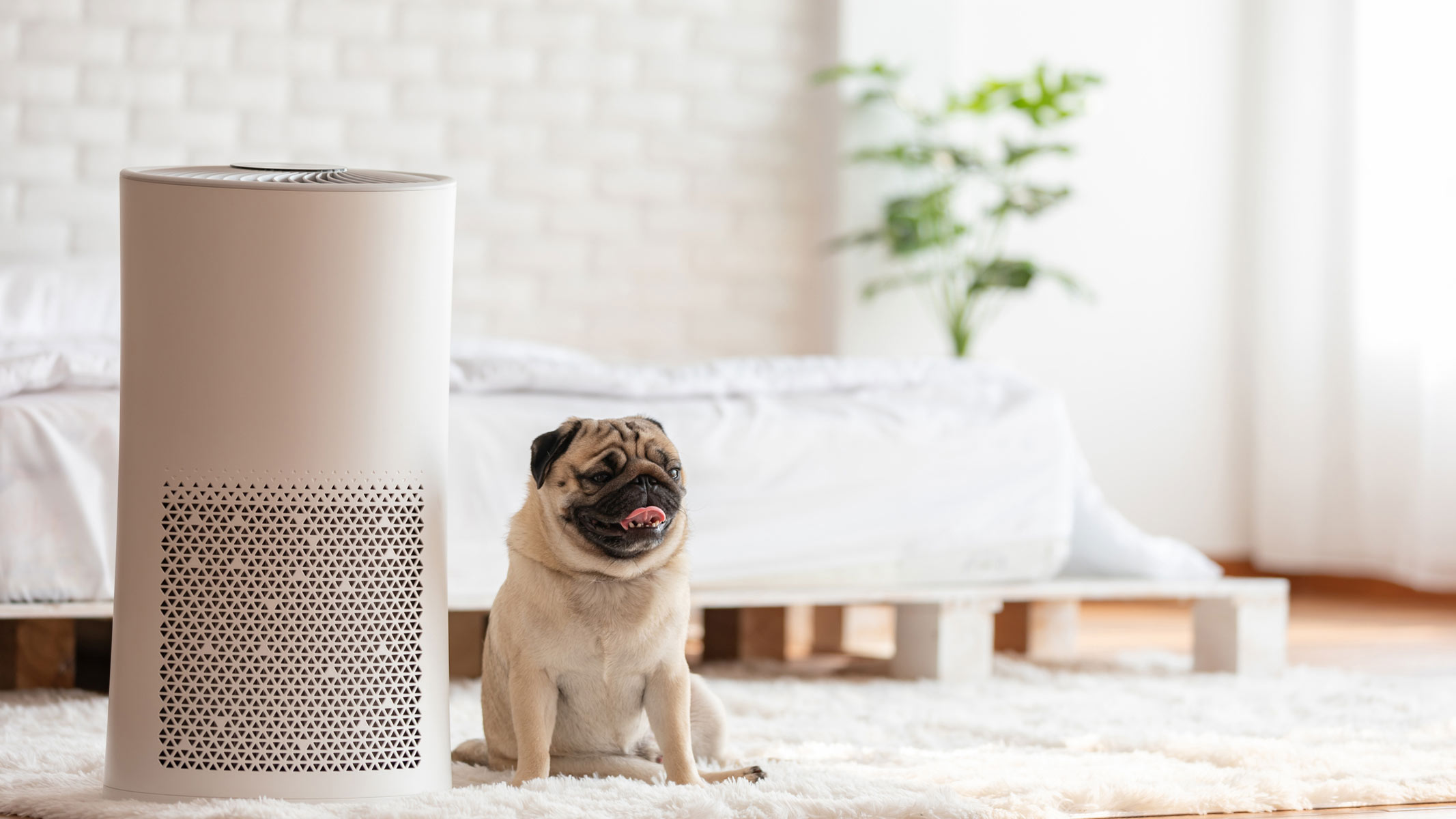
How to choose an air purifier? There is no single answer to this question. That said, certain features may be more important than others if allergies are your main concern.
While all air purifiers are designed to remove harmful particles from the air, not all models can ease your allergy symptoms. Seemingly similar models may use different filters and offer vastly different technological solutions. This can make some air purifiers way more effective at removing specific airborne allergens than others. When choosing a model, look out for certain features. If your aim is to reduce allergens in your home, your best call is to pick an air purifier equipped with a HEPA filter, Nakedar told Live Science.
HEPA filters, short for "High Efficiency Particulate Air [Filter]", are mechanical air filters composed of a mesh of randomly placed fibers. According to the U.S. Environmental Protection Agency (EPA), HEPA filters have been shown to remove at least 99.97% of airborne allergens with a size of 0.3 microns (µm), including pollen and mold spores. It needs to be stressed, however, that most studies into HEPA filters were conducted in highly regulated laboratory conditions, and there are only a handful of studies that investigated the effectiveness of HEPA filters in reducing allergy symptoms in human subjects. Nevertheless, the results are promising. For example, a 2020 clinical trial published in the Yonsei Medical Journal found that patients with dust mite allergy may need fewer allergy medications following six weeks of exposure to air purifiers equipped with HEPA filters.
Moreover, certain air purifier models may actually exacerbate your allergy symptoms, rather than alleviate them, ACAAI said. For example, ionic electrostatic air purifiers work by releasing ions - molecules with an electric charge due to the loss or gain of one or more electrons - which then force harmful airborne particles to stick to walls and other household surfaces. Although this helps to clean the air from allergens, it does not remove them permanently. Moreover, ionic air purifiers are known to produce ozone, a gas molecule composed of three oxygen atoms, ACAAI warned. And according to the American Lung Association (ALA), ozone can irritate the airways and nasal passages, increasing the risk of respiratory problems and potentially aggravating hay fever symptoms. In addition, some ionic air purifiers come with additional UV light, which aims to kill bacteria and other harmful pathogens. However, there is no scientific evidence that this feature can be effective for alleviating allergic reactions, ACAAI said.
If you are unsure whether an air purifier is suitable for people with allergies, check whether it has been independently tested. "For example, CERTIFIED Asthma and Allergy Friendly air cleaners have been tested to show they remove more than 90% of airborne allergens like cat dander and dust mite allergens," McKeon said. "This certification mark also ensures the product meets AAFA’s high standards," Przywara noted.
Another feature to look out for is the Clean Air Delivery Rate, or CADR, according to The American College of Allergy, Asthma & Immunology (ACAAI). The CADR value measures how fast a certain number of airborne particles can be trapped by an air purifier. Even the most technologically advanced air purifier may struggle with removing allergens if it’s not big or powerful enough to cover enough space. When picking your model, make sure its CADR matches the size of the room where you intend to use it, ACAAI recommends.
Lastly, choose an air purifier that comes with affordable replacement filters, Kanani told Live Science. Filters need regular changing to maintain the device's efficiency, which is particularly important during heavy pollen season, he said.
How we tested these air purifiers
How we test the best air purifiers for allergies
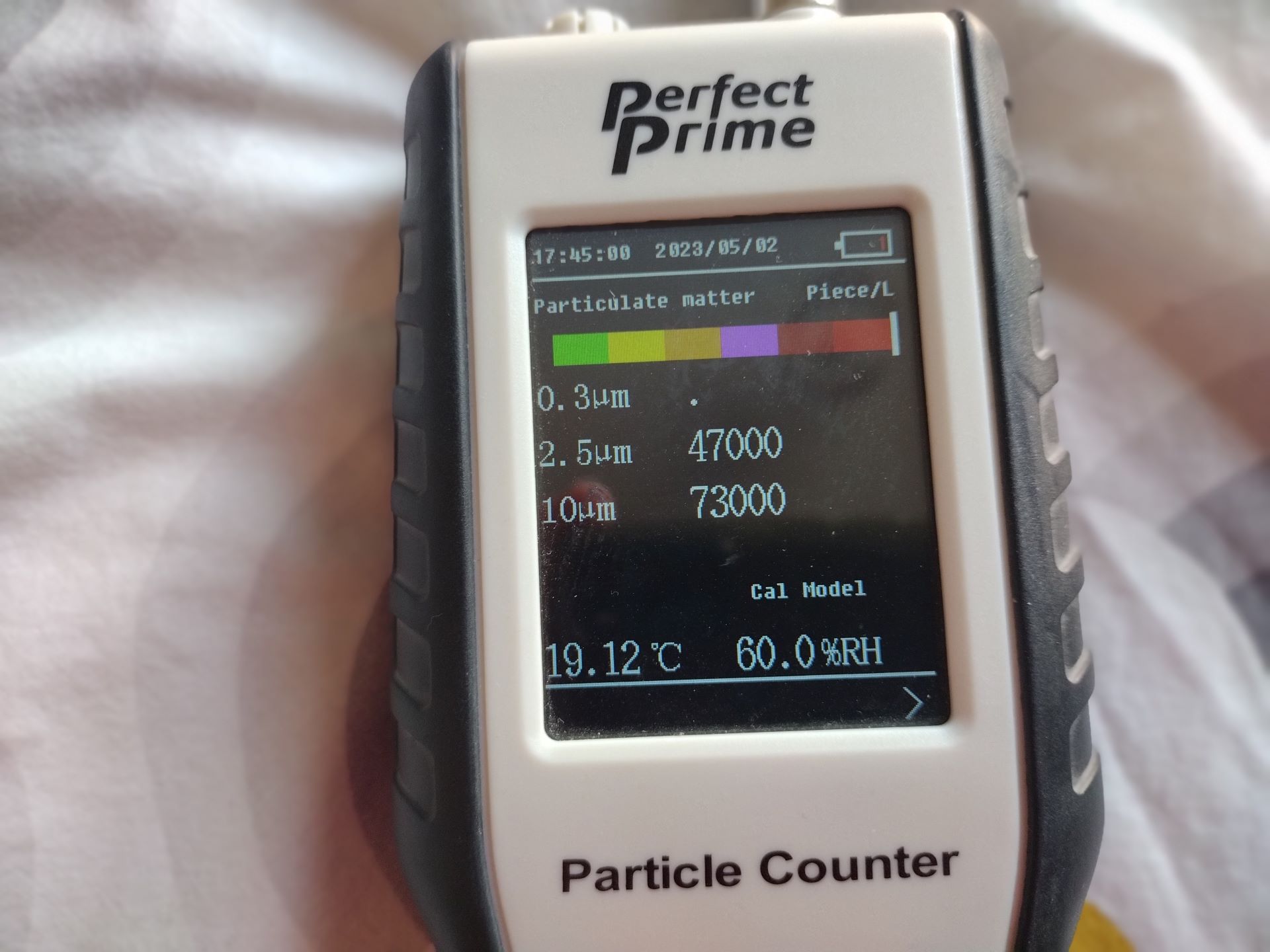

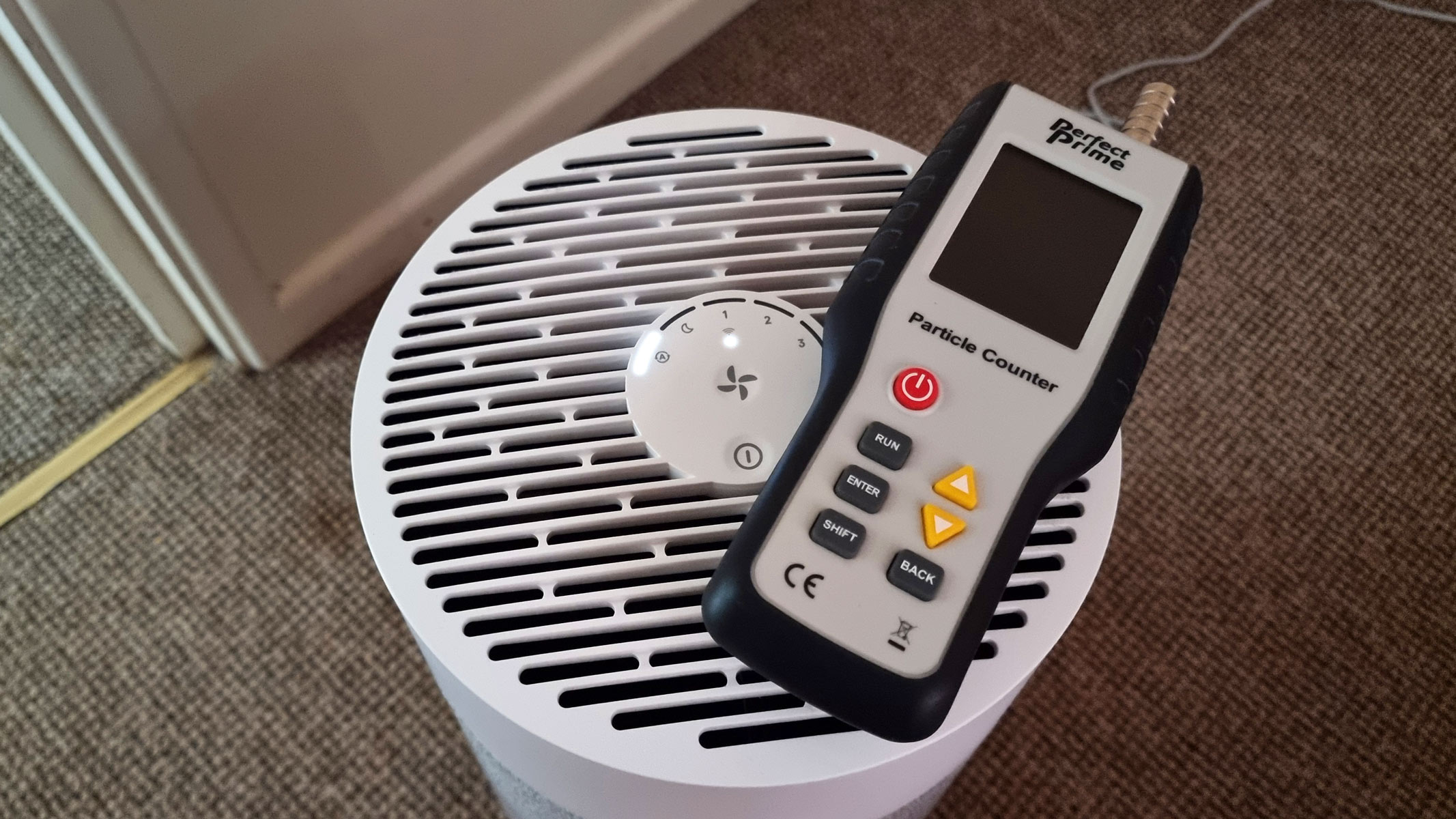
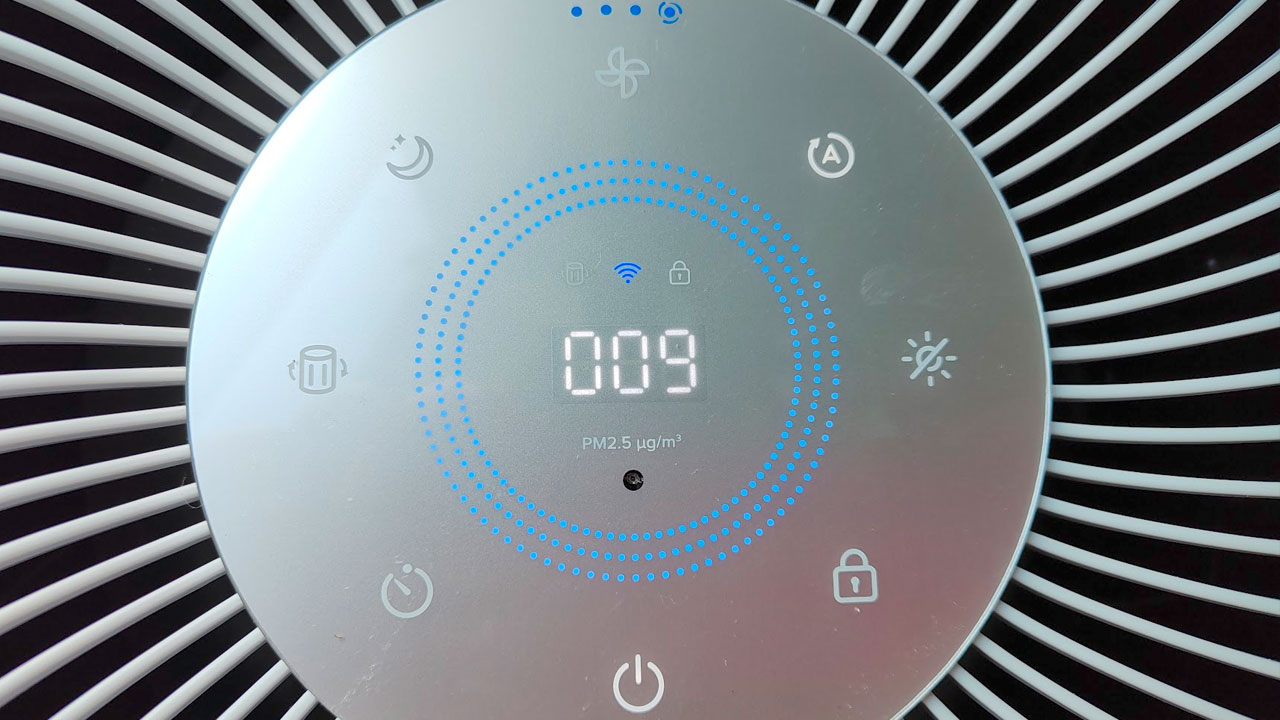

Our reviewers. We know a great deal about the best air purifiers for allergies — many of our expert reviewers know firsthand what it is like to struggle with adverse reactions to pollen, pet dander, mold spores and other airborne allergens. We have spent years trying and testing different appliances, in the everlasting pursuit of an air purifier that can truly help us keep our allergies at bay. You can put trust in our verdicts, because we use these appliances ourselves and we can personally vouch for their reliability.
However, we know that our word may not be enough. Not to mention, everyone has their own unique set of allergic triggers — what works wonders for one person may not work for someone else. So to be as objective as possible, we tested each air purifier in this guide to the exact same standards, using the same procedures and review protocols.
Design. When assessing the design of an air purifier for allergies, we take into account multiple different factors. First and foremost, we make sure that the unit is equipped with a HEPA-style filter capable of trapping miniscule airborne pollutants. Once this condition is met, we look into the size, looks and ease of use of the air purifier in question. Then, we check whether it comes with any additional allergy-busting measures, such as pre-filters and pollutant-destroying technologies. We also look into the energy consumption of the unit, the cost of replacement filters and the terms of the warranty.
Features. We take a good look at the features of an air purifier to fully understand what this appliance has to offer. Does it come with an ionizer, UV sanitizer and other potentially helpful add-ons? How many modes and fan speeds does it have? Can it be operated remotely? Does it come with an air quality monitor, and if so, how detailed are the readings? Also, does it have any smart features or connected apps? Then, we give our verdict on the functionality of the air purifier in question.
Performance. This is the most in-depth part of our testing process. We conduct multiple performance tests using an industry-grade Perfect Prime AQ9600 air particle monitor, a device capable of detecting airborne pollutants as small as 0.3 microns — which is the size of many allergens and tobacco smoke particles. We want to know exactly how much of particulate matter the air purifier can remove, and whether there are any circumstances that can impede or speed up the purification process.
We start by running an ambient air quality test. We put the air purifier in an enclosed, medium-sized room in a home, take baseline air quality measurements, and then run it for half an hour on different settings (including an auto mode when applicable). We make note of air quality readings after 15 and 30 minutes, then calculate the percentage of particulate matter removed by the air purifier. We also measure the noise levels generated by the fan, to comment on how noticeable the purifier will be in an average home.
Next, we conduct smoke tests. We burn a bunch of matches and incense sticks to generate heavy pollution, then run the air purifier for half an hour on the highest fan settings (and auto mode, if applicable). We make note of changes to air quality readings after 15 and 30 minutes, then calculate the percentage of particulate matter removed by the machine. Lastly, we repeat the tests in different rooms to fully assess the appliance's capabilities.
What the users say. Finally, we check online user reviews to see what people think about their air purifier, and we test for any persistent problems or defects that we read about.
As per our testing policy, we fully disclose all our findings in our reviews.
Latest updates
February 5, 2026: We added the Oneisall Pet Air Purifier as the second-best budget option.
November 21, 2025: We added the Blueair Blue Signature as the best option for large spaces.
October 2, 2025: We added the Alen BreatheSmart 35i as the second-best option for air quality monitoring.
June 13, 2025: We added the Dyson Purifier Cool PC1 as the best tower fan for allergies.
May 14, 2025: We added the BlueAir Classic Pro CP7i as the best option for large rooms.
April 4, 2025: We added the SwitchBot Air Purifier Table as the best option for cat owners.
Get the world’s most fascinating discoveries delivered straight to your inbox.
Molly Cleary is an ecommerce editor at Livingetc and Homes and Gardens, and was previously a writer at Top Ten Reviews. For Live Science, she covers a range of subjects including fitness, health and homes. Molly graduated from the University of Exeter in the UK. with a degree in English Literature, and previously undertook internships at The Economist.
 Live Science Plus
Live Science Plus











